The Art of Karina Mendreczky and Katalin Kortmann Járay: Animism, Memory, and Feminine Spaces
Karina Mendreczky and Katalin Kortmann Járay are an artist duo whose work transcends traditional boundaries, creating immersive environments that explore the intricate relationships between nature, memory, and cultural narratives.
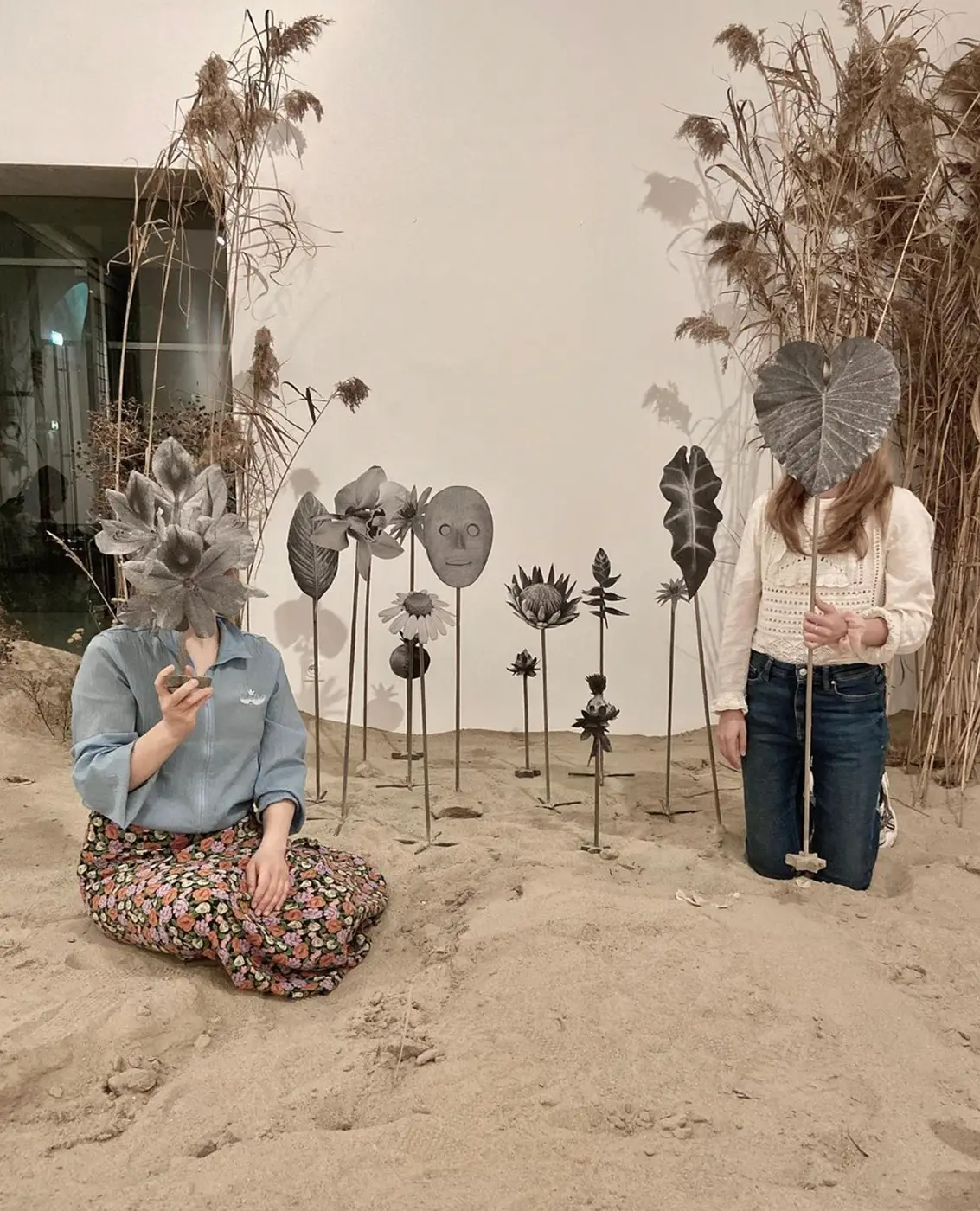
Their art is a seamless blend of the mystical and the tangible, drawing on animistic perspectives that propose all elements of nature—whether living beings or inanimate objects—possess a spiritual essence.
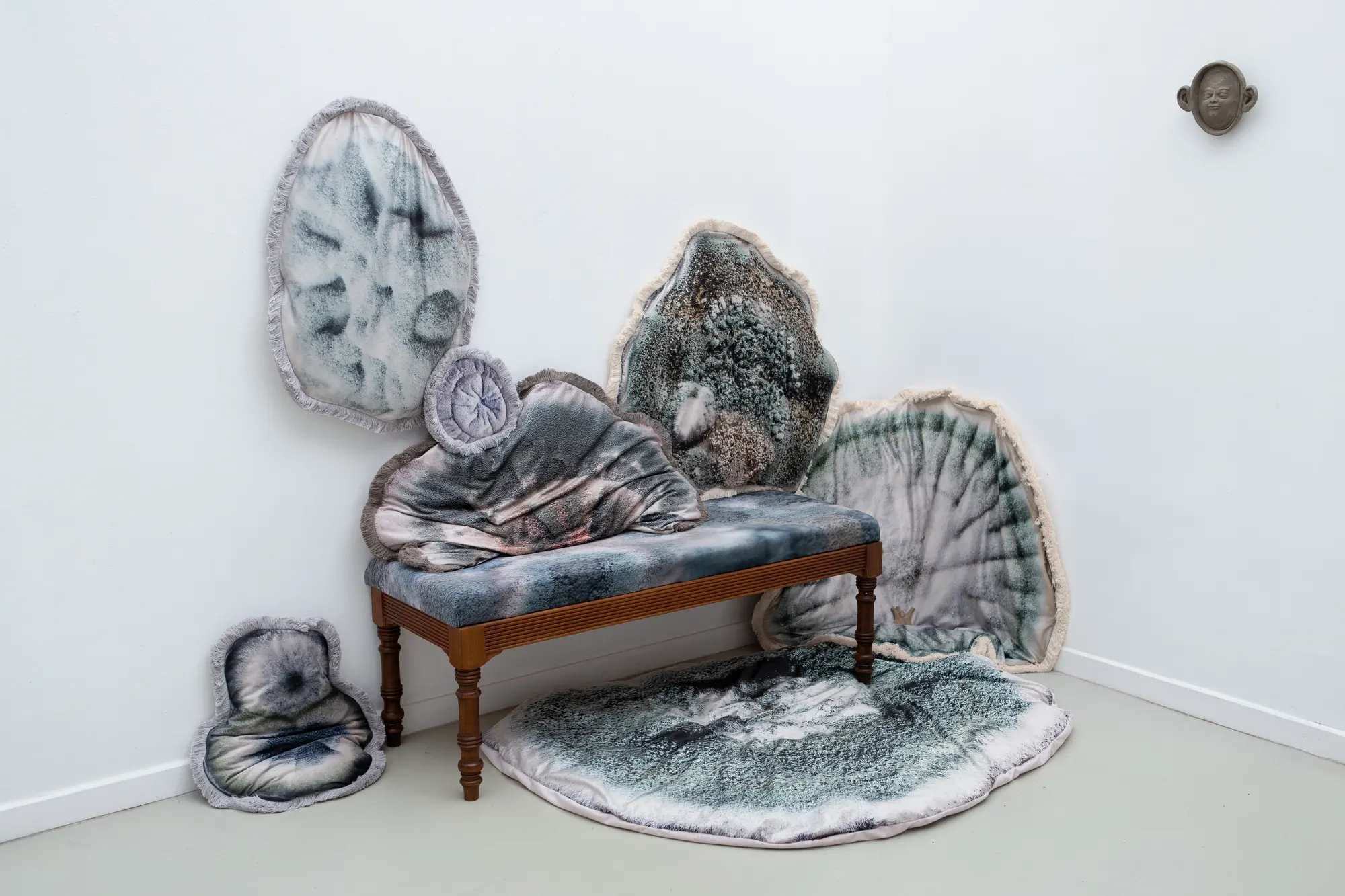
This worldview, deeply embedded in their work, challenges modern dichotomies and encourages a re-examination of how contemporary society might reconnect with these ancient beliefs to address current environmental and social crises.
Karina Mendreczky and Katalin Kortmann Járay: A Collaborative Journey
Karina Mendreczky and Katalin Kortmann Járay, both hailing from Budapest, Hungary, have established themselves as a dynamic artist duo since they began collaborating in 2019.
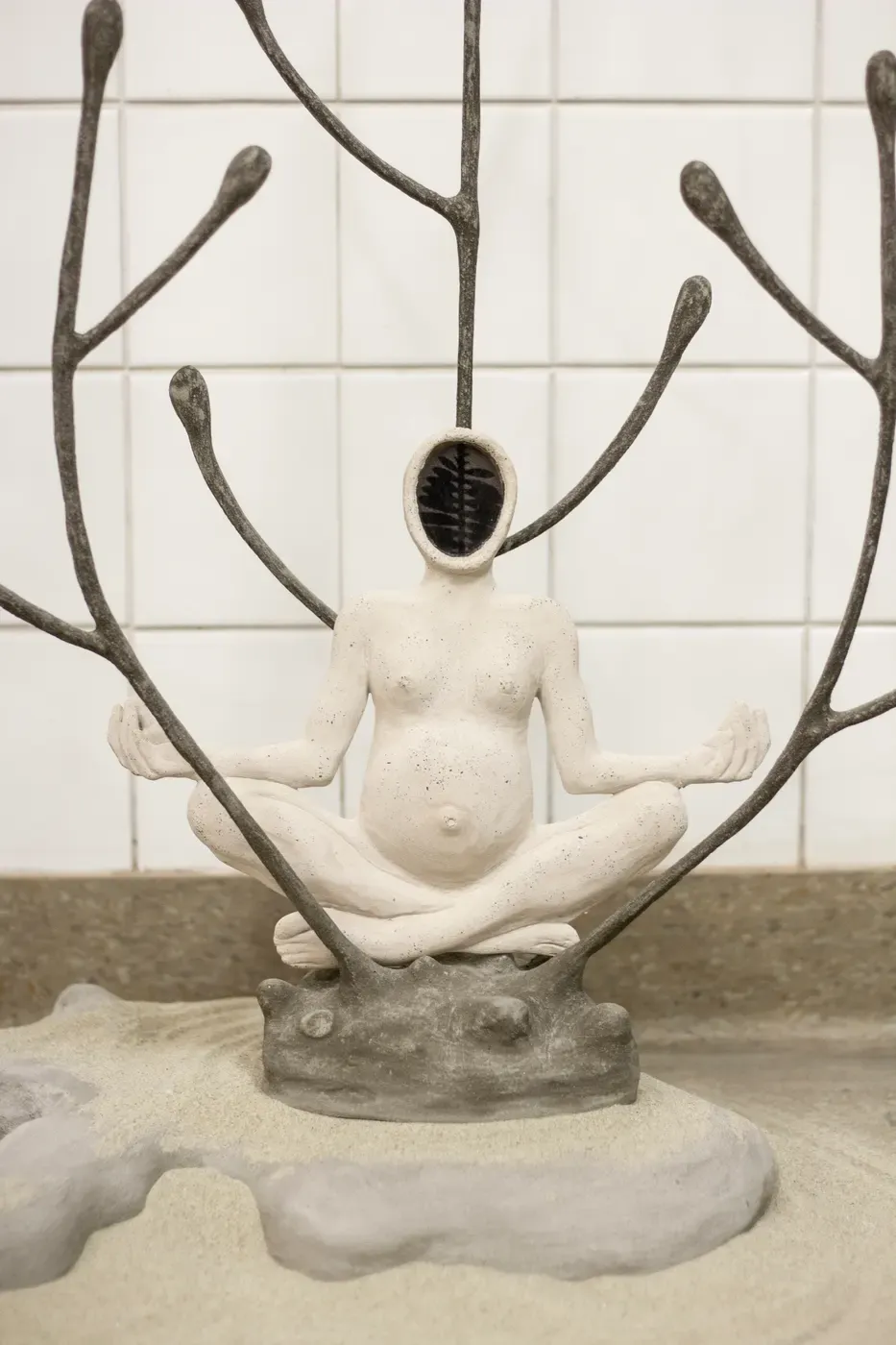
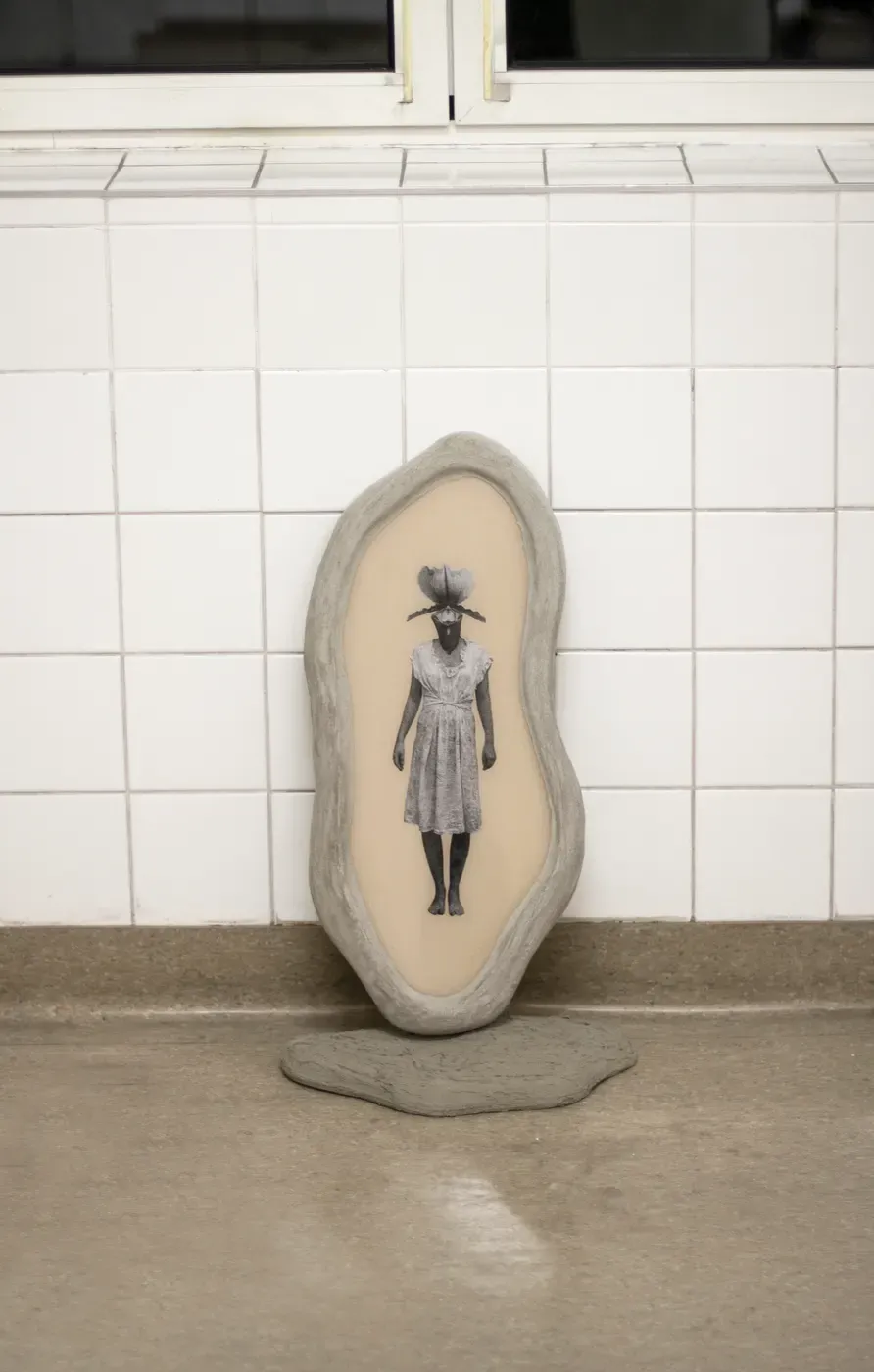
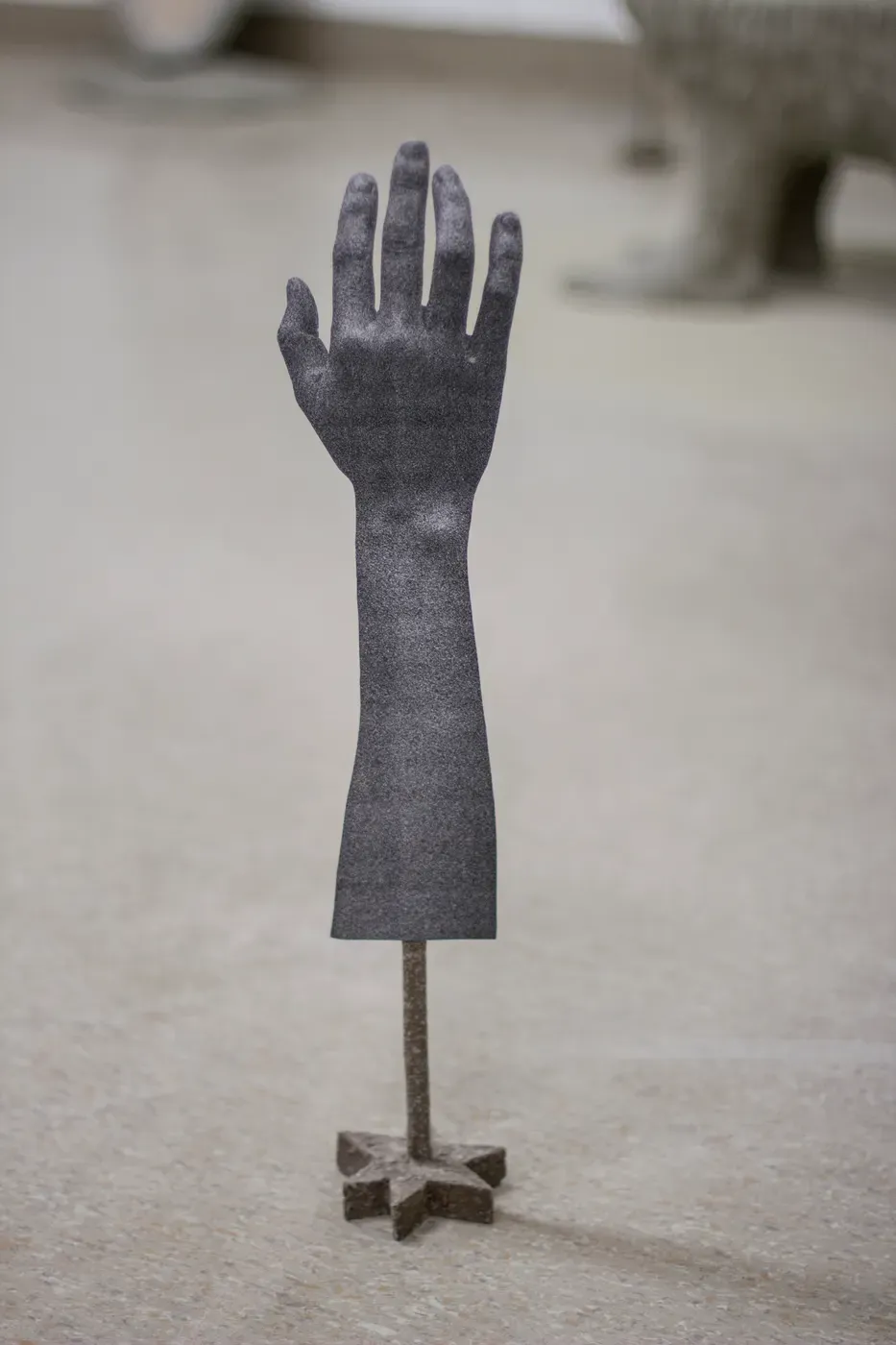
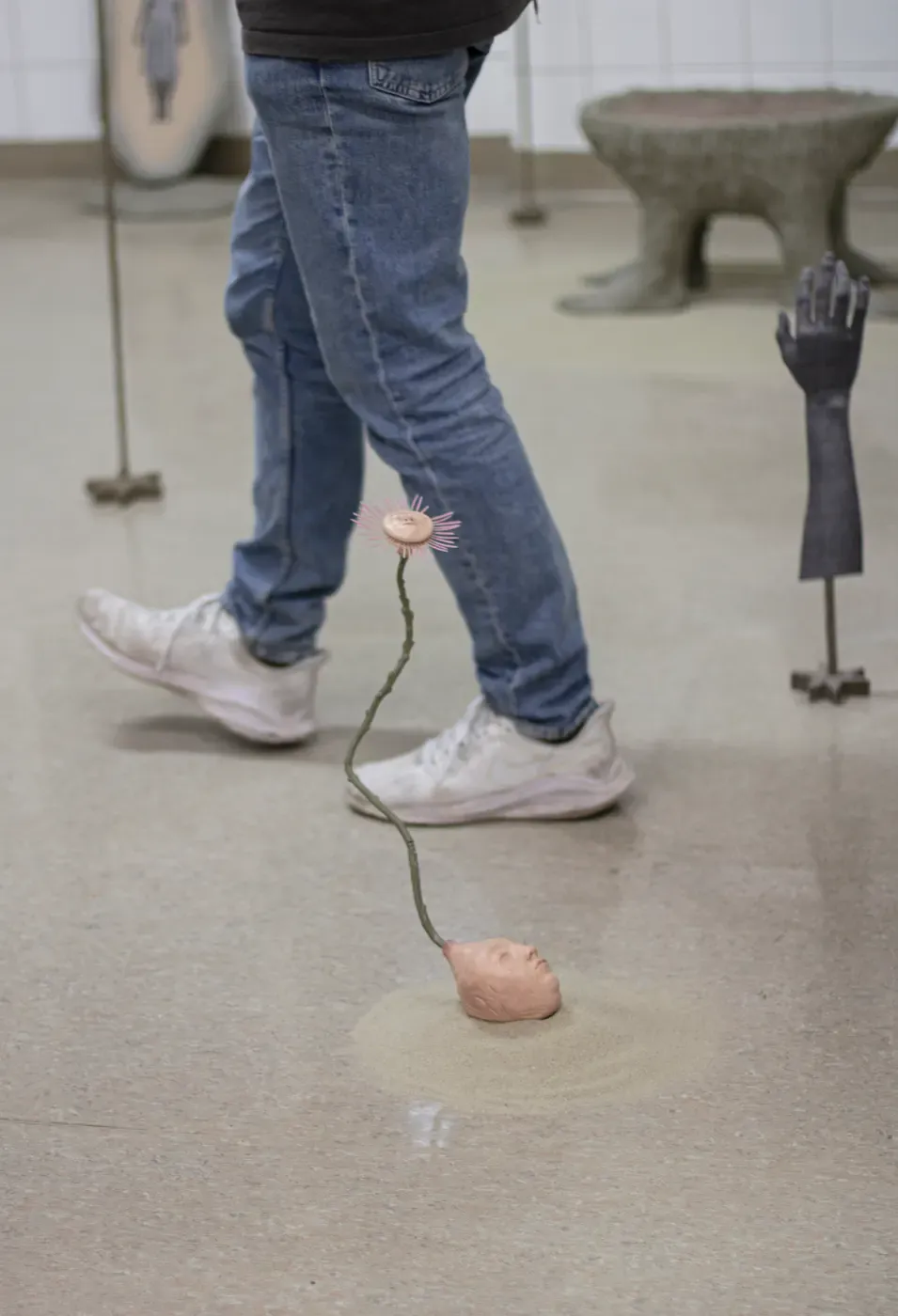
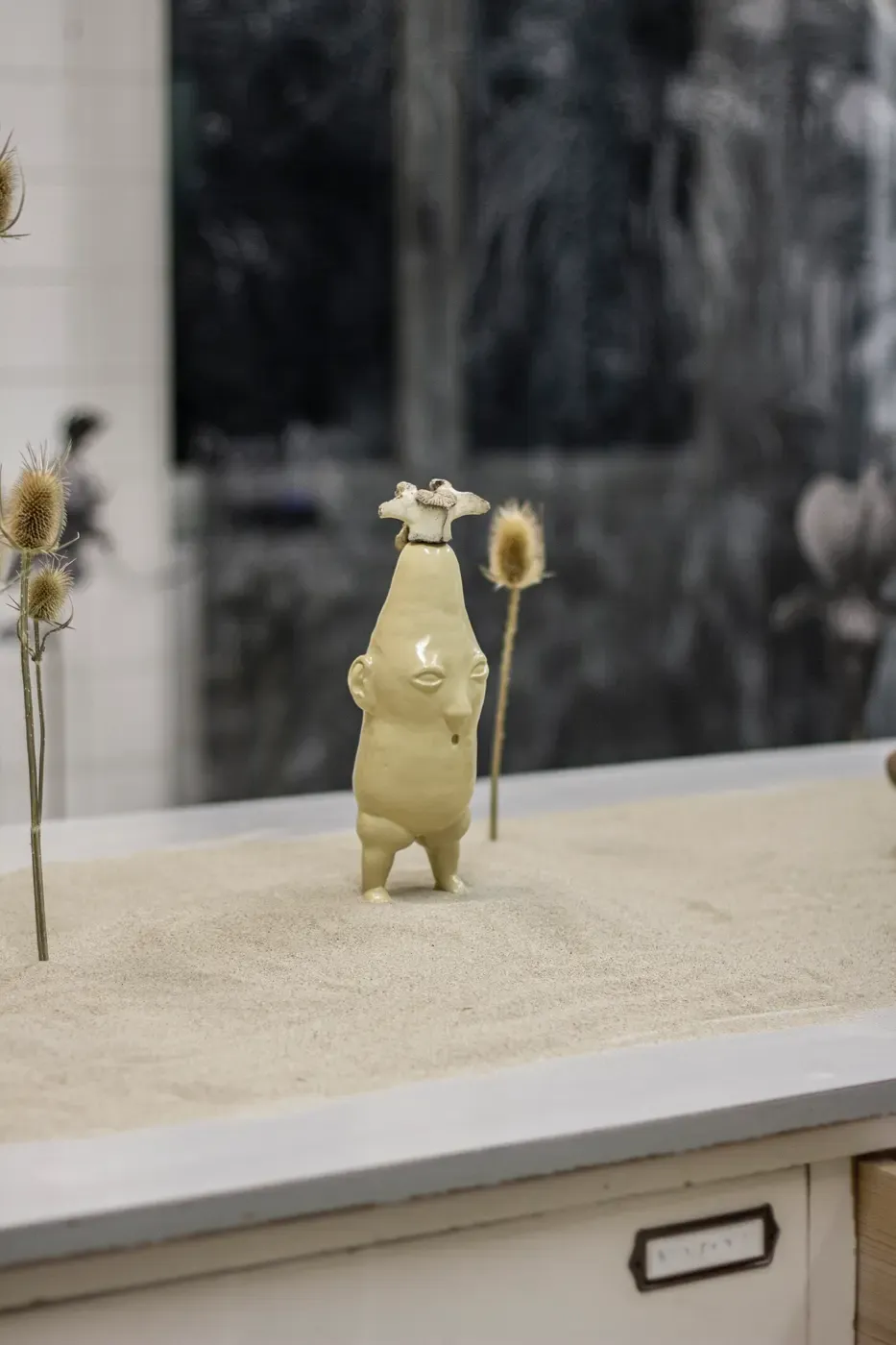
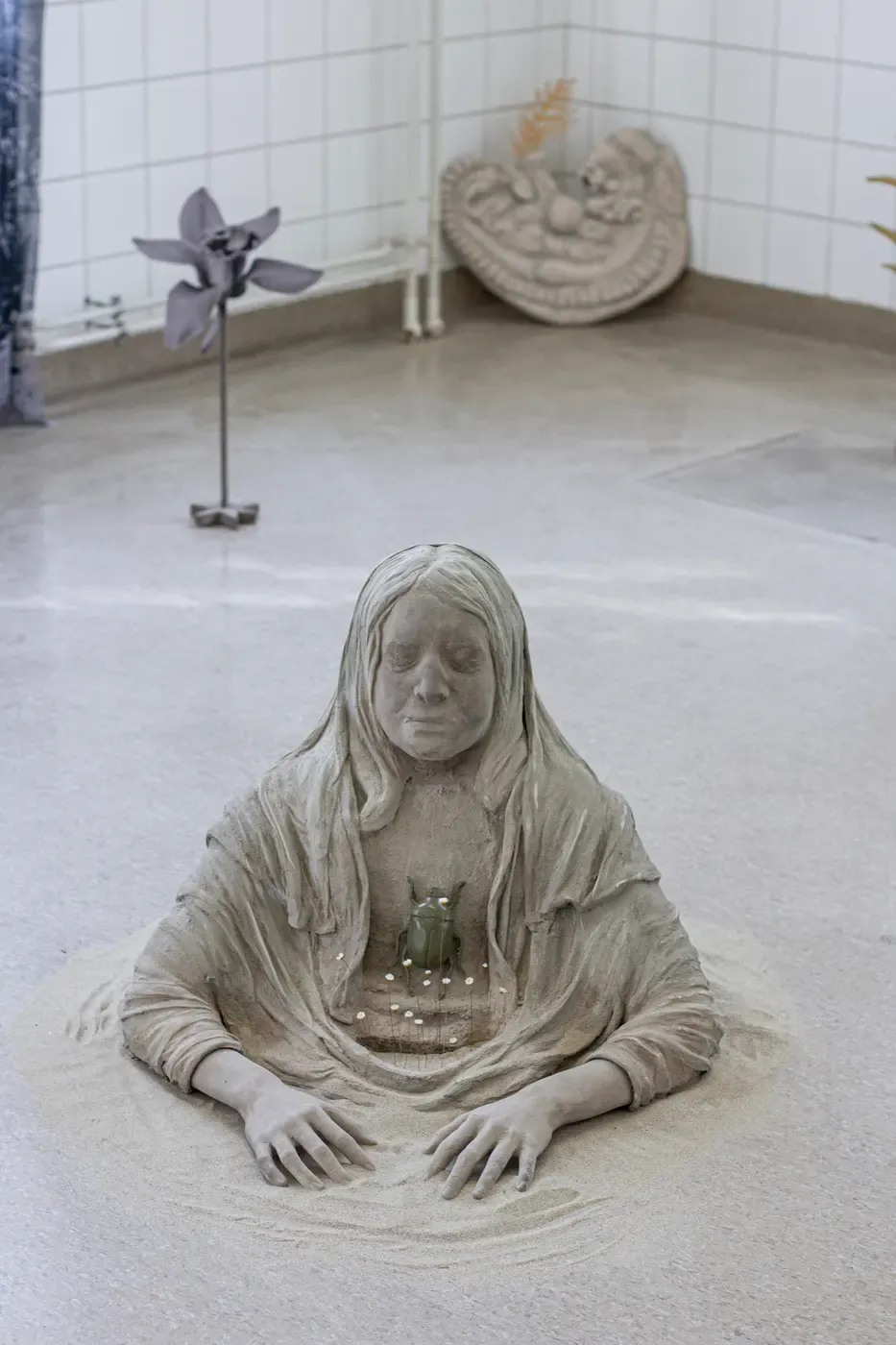
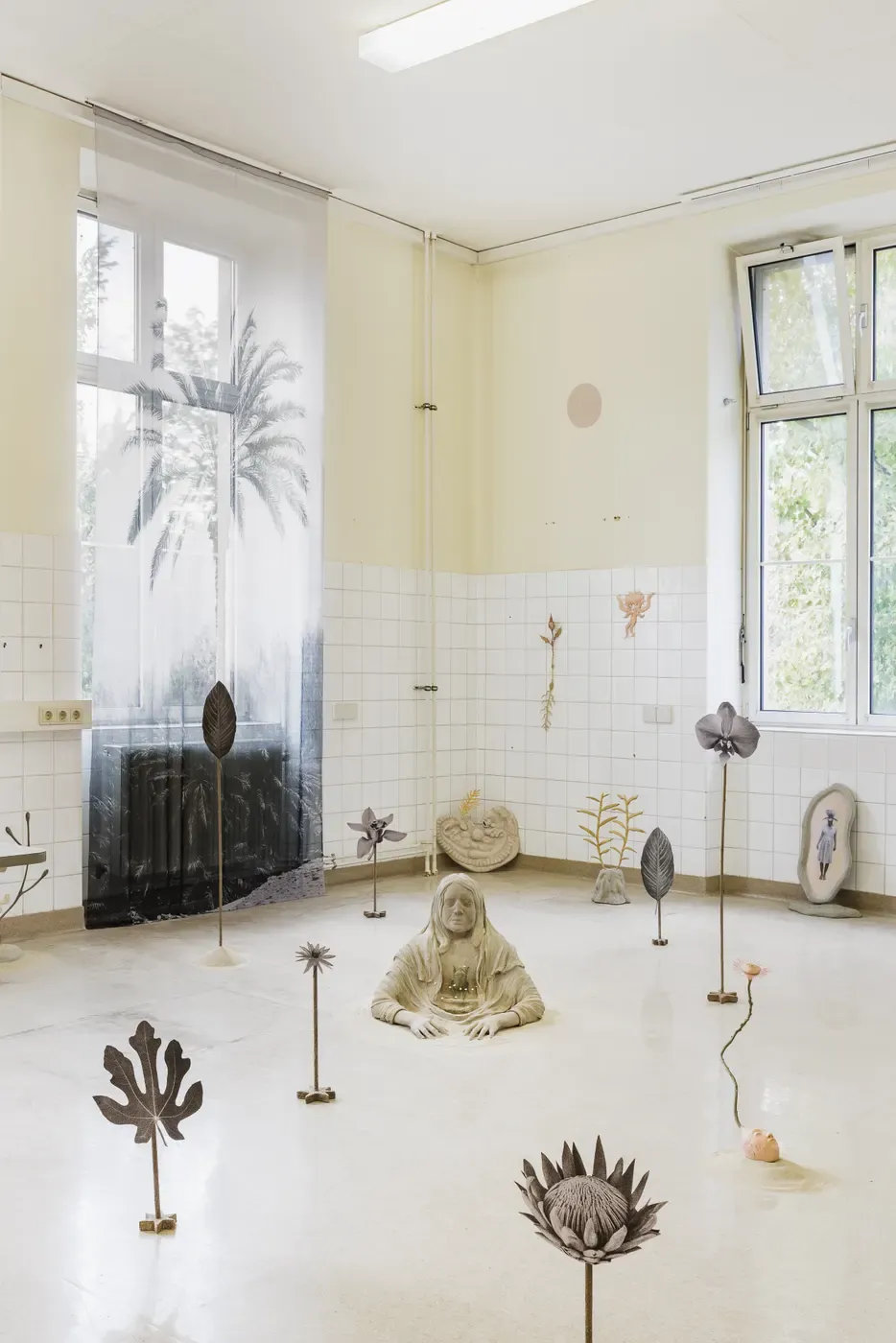
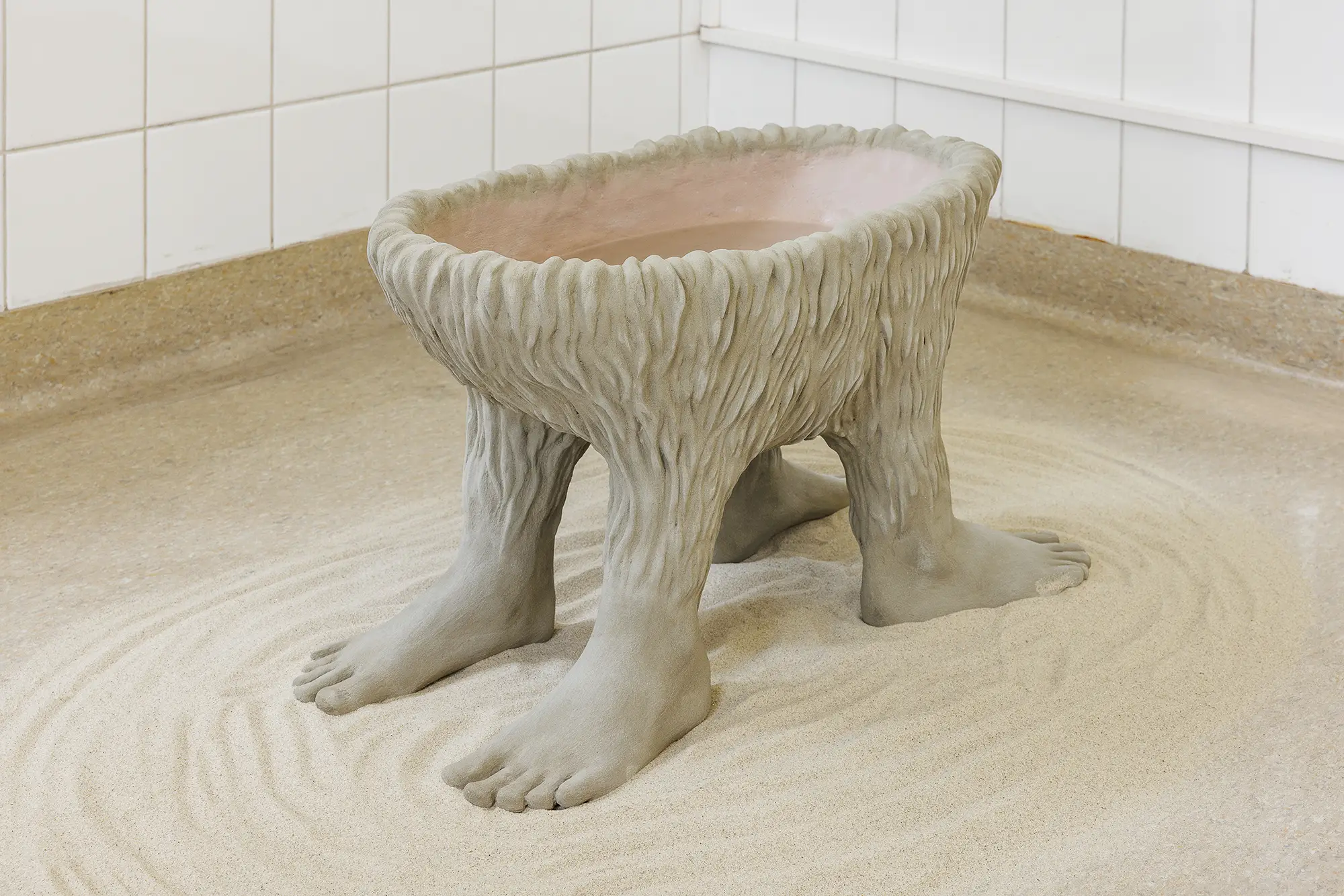
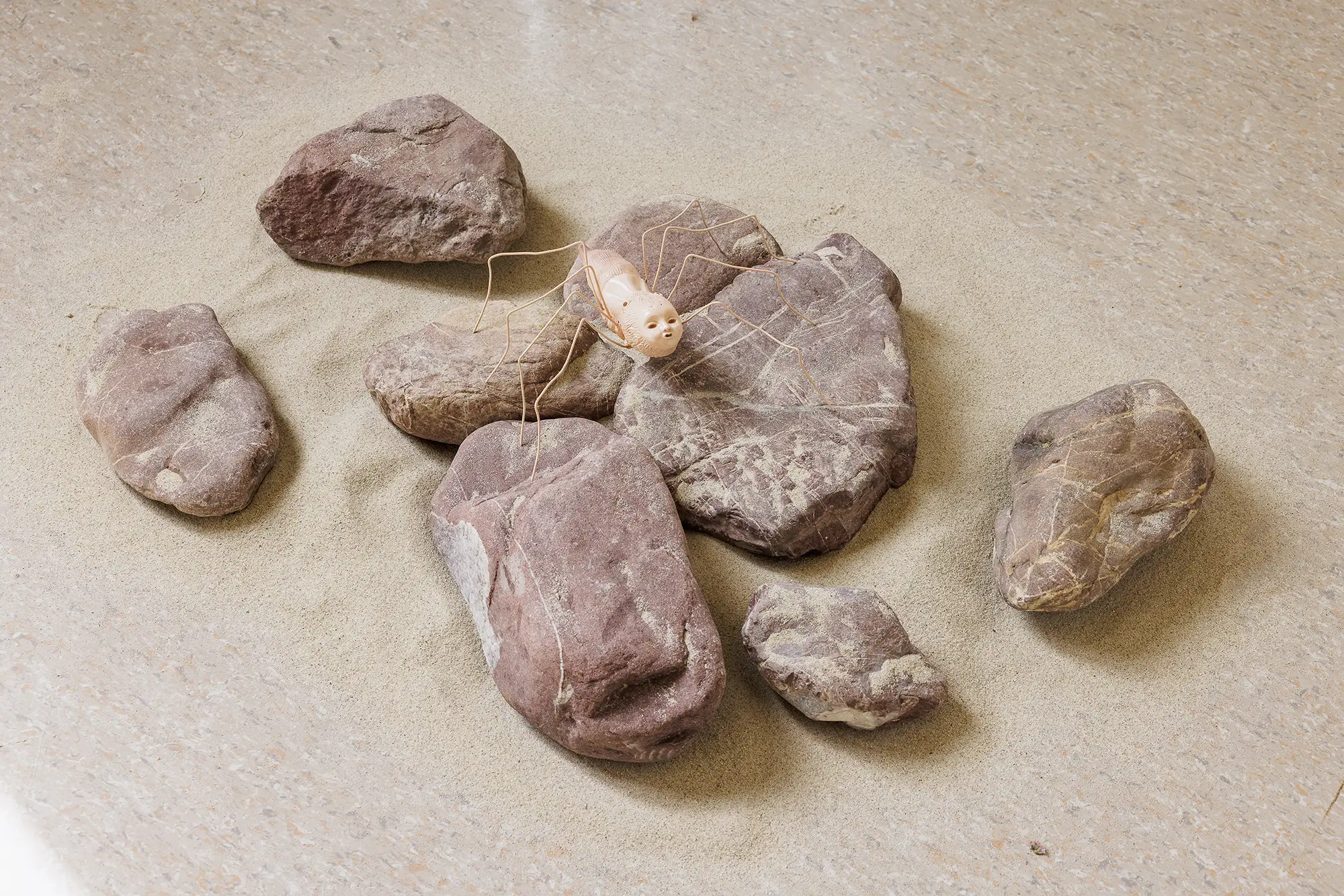
Karina Mendreczky & Katalin Kortmann-Járay, Installation View -> "People look like flowers at last" during Parallel Vienna, supported by Gallery Rudolf Leeb Vienna | About the Installation: People Look Like Flowers at Last is an evocative installation by Karina Mendreczky and Katalin Kortmann Járay, presented during Parallel Vienna 2022 in an abandoned maternity ward of the Semmelweiss Women's Hospital. The work reflects on the growing disconnect between humanity and nature, using animism as a framework to explore how natural elements and objects are imbued with soul and life. The installation features hybrid creatures and objects that merge human, plant, and mythological forms, creating a surreal landscape that oscillates between past and future, reality and fantasy. Through floating prints, translucent human figures, and sculptures that reference folklore, the artists evoke themes of care, nurturing, and the fragile balance of life, inviting viewers to consider the deep interconnections between all living things in the face of ecological uncertainty. Photography by Manuel Carreon Lopez
Mendreczky, with a background in printmaking and time-based media, brings a meticulous focus on material and process, often using textiles and photographs to explore themes of memory and nature.
Kortmann Járay, who trained at the Hungarian University of Fine Arts and the Academy of Fine Arts in Munich, specializes in large-scale installations that integrate sculptural elements made from iron, concrete, and clay.
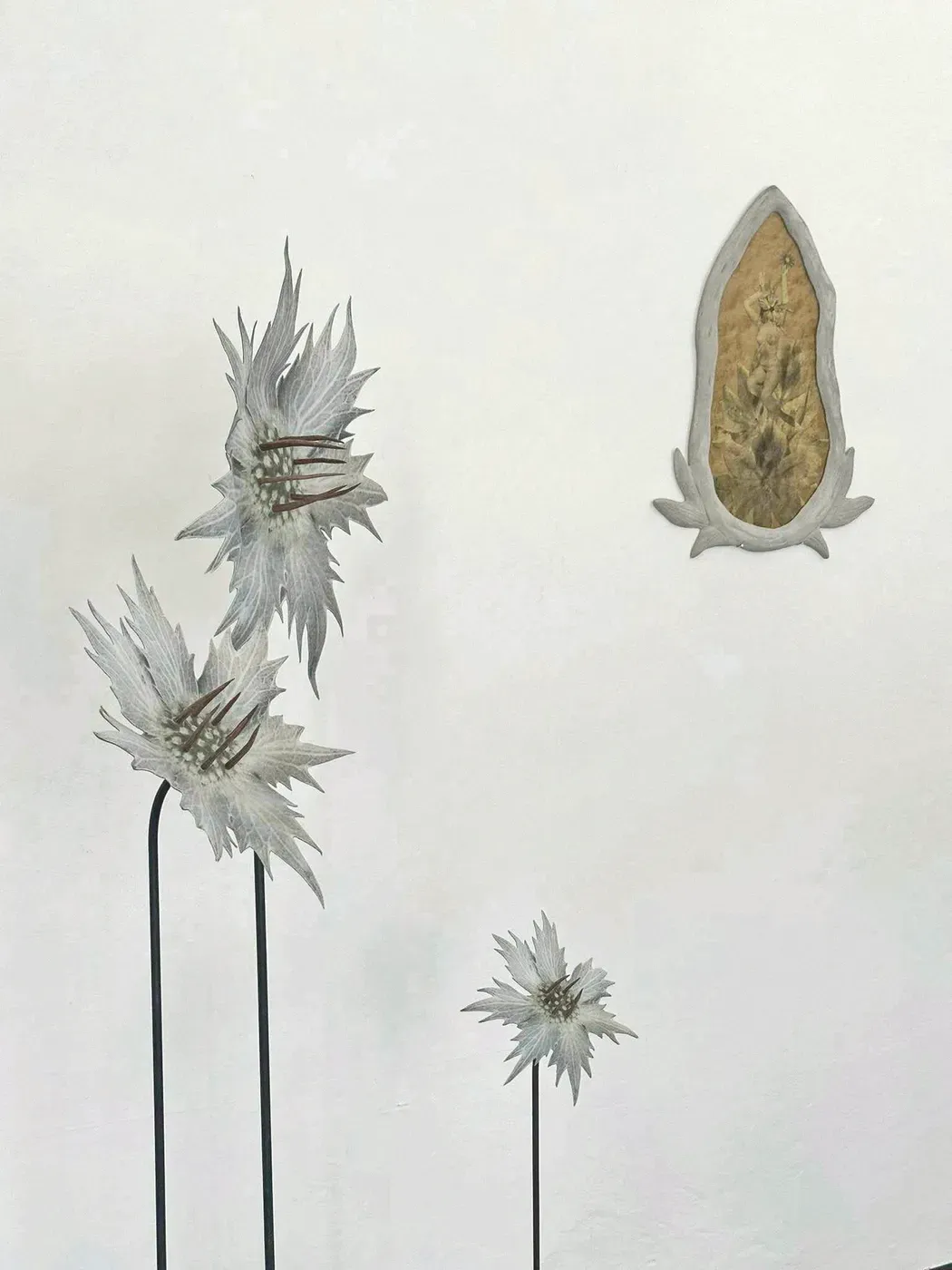
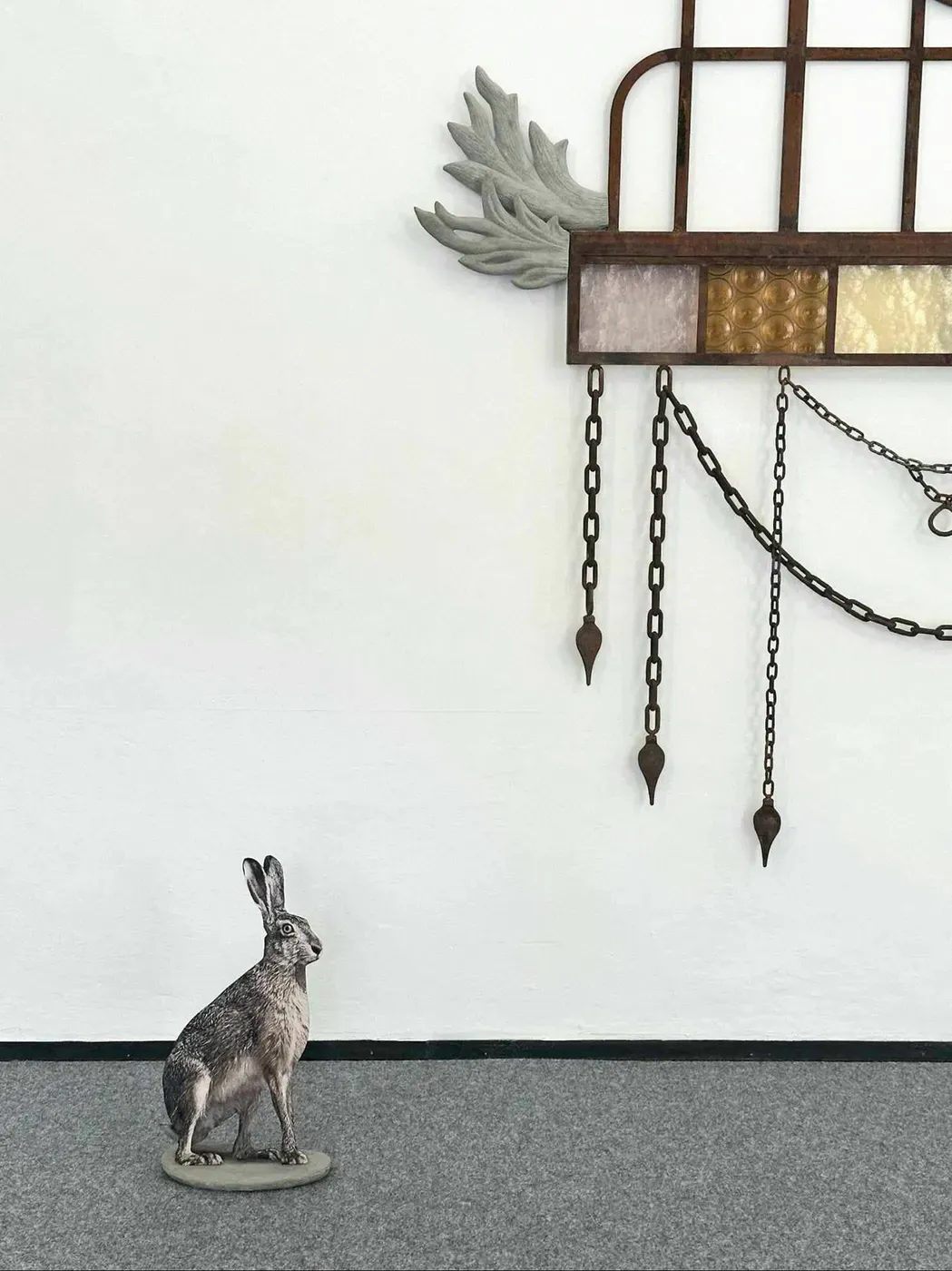
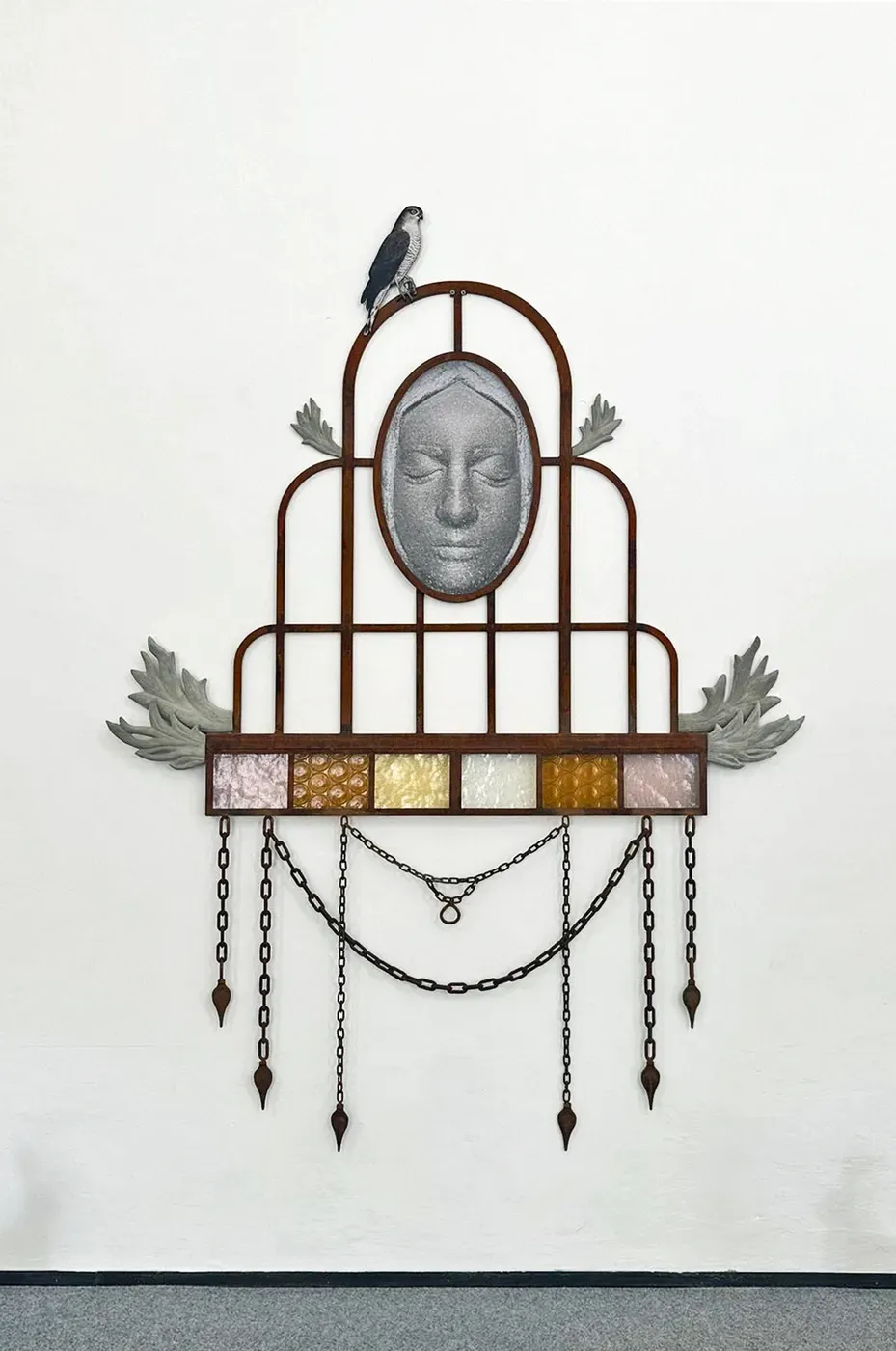
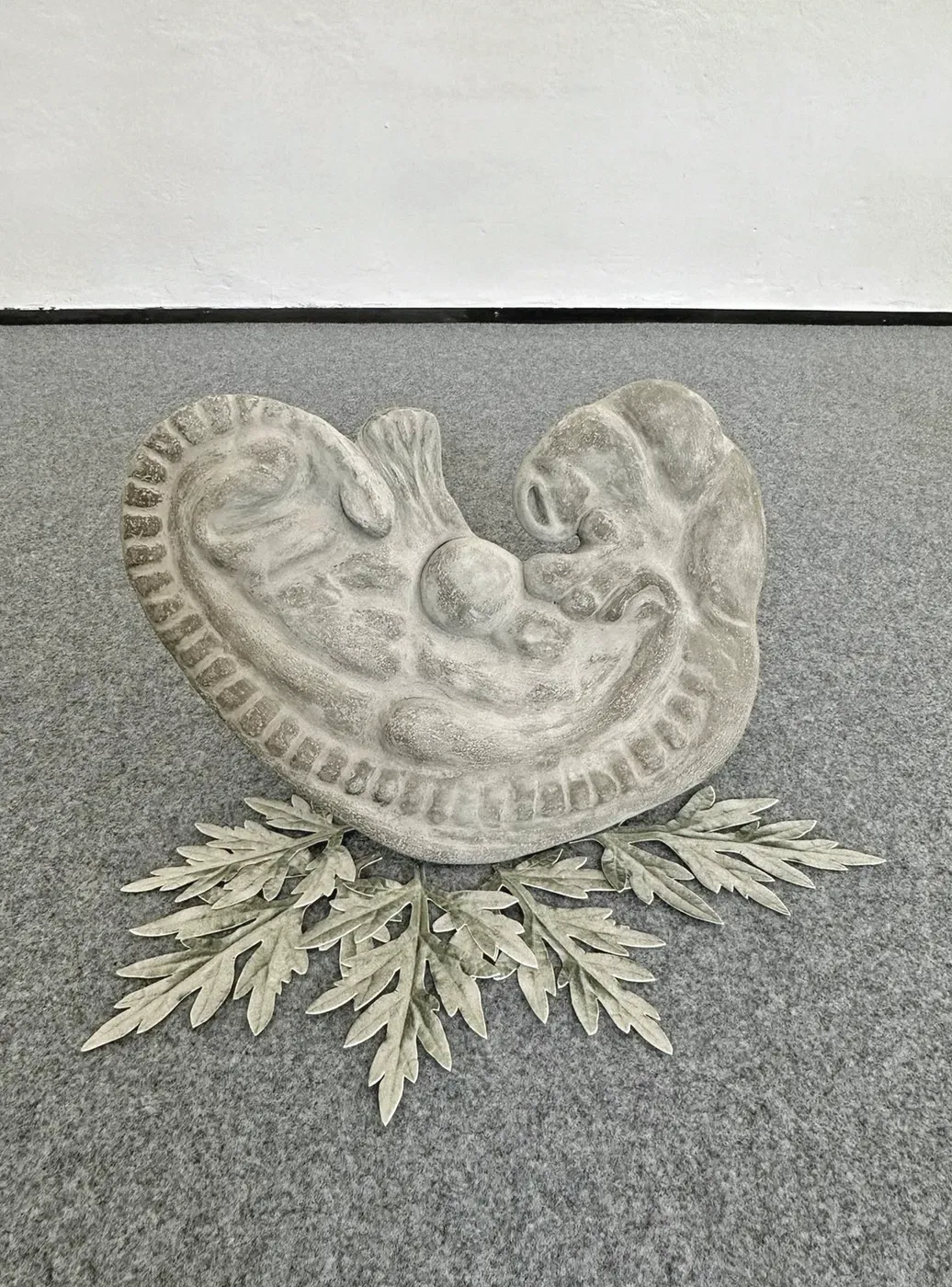
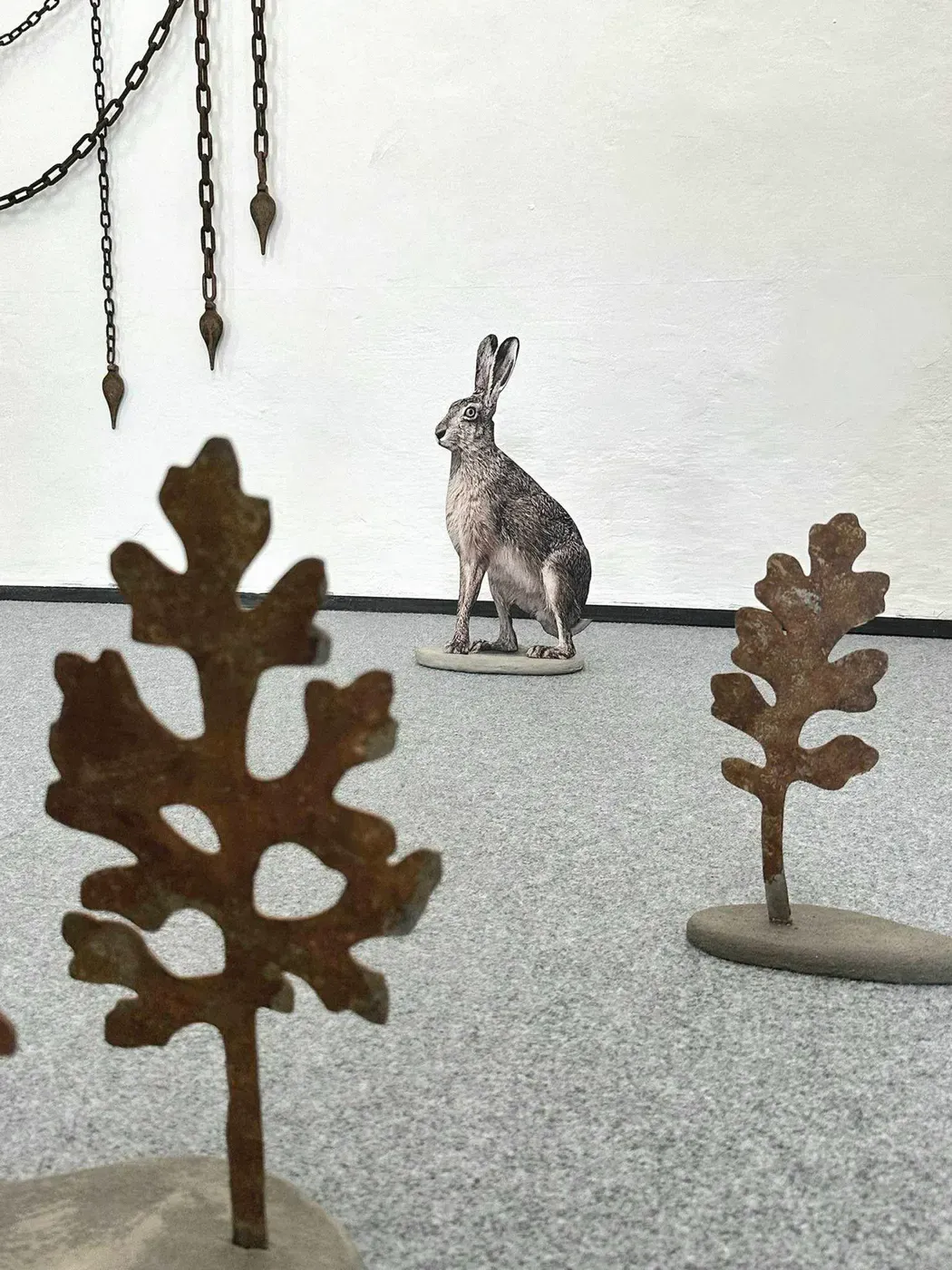
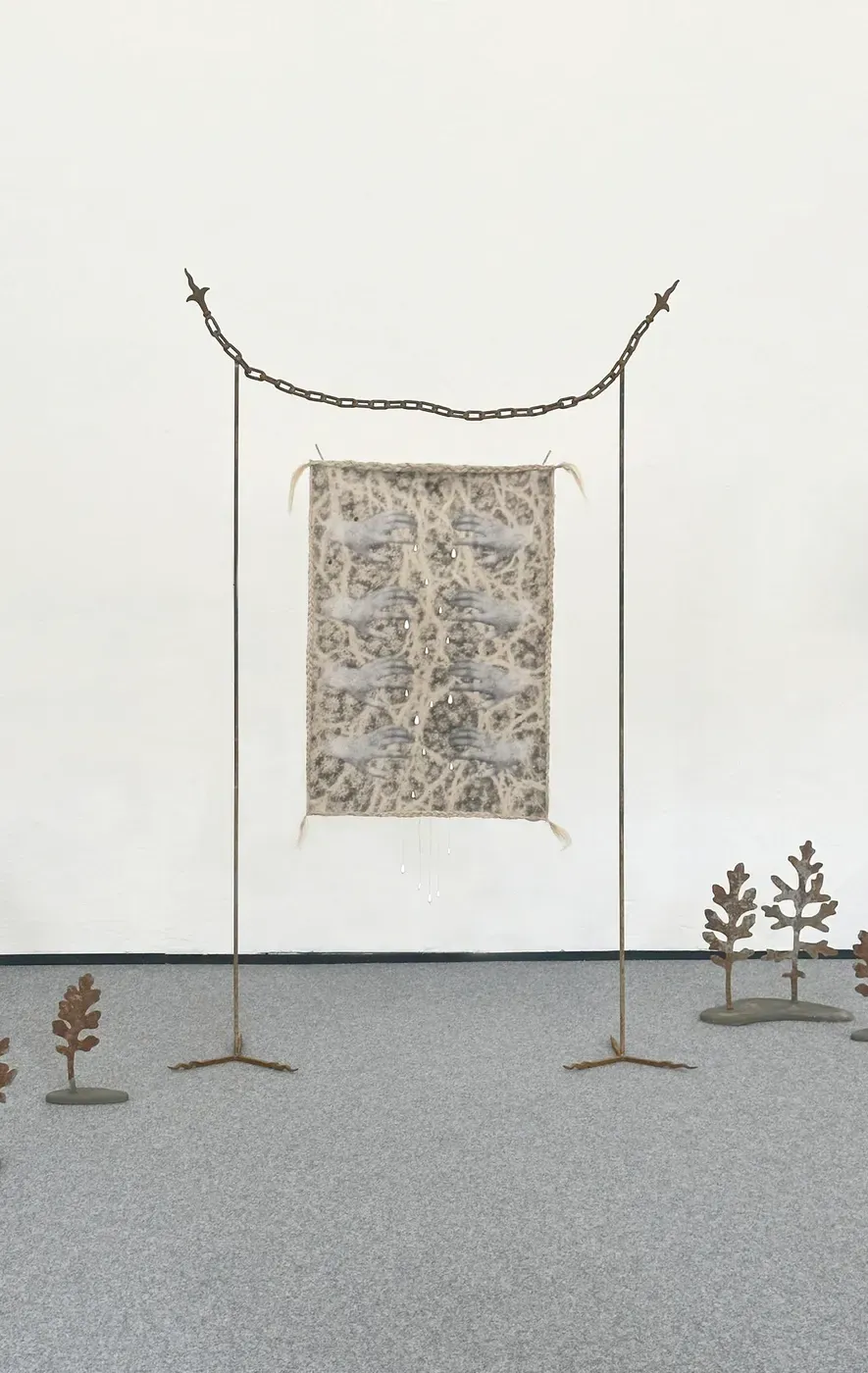
Karina Mendreczky & Katalin Kortmann-Járay: Exhibition: Breaking the Frame - Winners of the Esterhazy Art Award 2023 „Für Frau Gergely (Version II.) / Sie, die den Himmel und die Sterne beobachtete/" Curator: Katharina Hoffmann Venue: Esterhazy Palace, Eisenstadt About the Exhibition: Karina Mendreczky and Katalin Kortmann-Járay present For Mrs. Gergely (Version II.) / She, who stared at the sky and the stars/, an installation rooted in the archive of a witch trial from May 1, 1681, in Debrecen, Hungary. The work draws a symbolic parallel between the historical oppression of women and the ongoing exploitation of nature, reminding us of the deep connections between these struggles.
Their collaboration stems from a shared interest in creating immersive, metaphorically rich environments that challenge the boundaries between humans, nature, and the spiritual world.
By combining Mendreczky’s delicate surfaces with Kortmann Járay’s sculptural forms, they craft installations that invite viewers into a world where personal and collective memories blend with animistic and ecological themes.
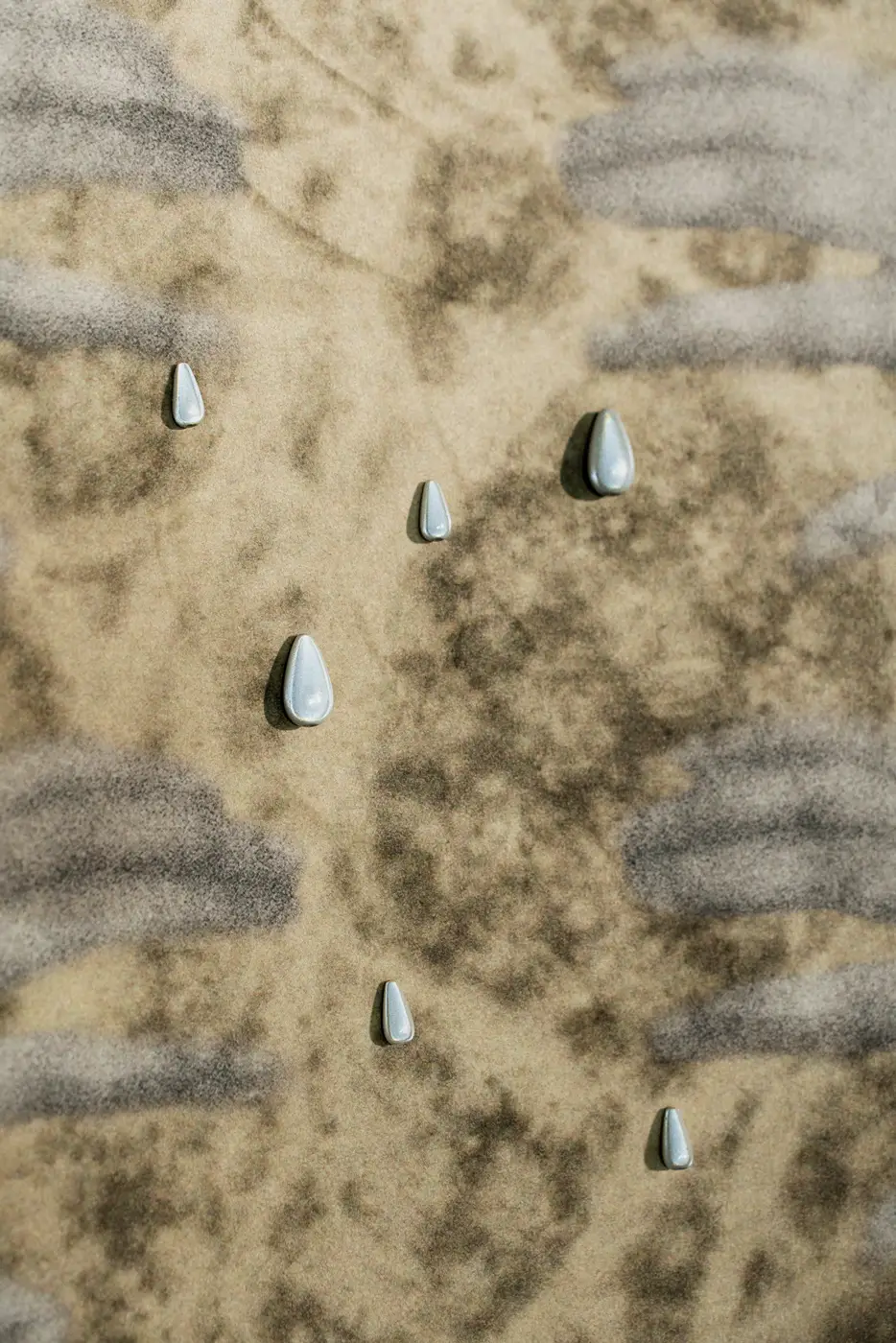
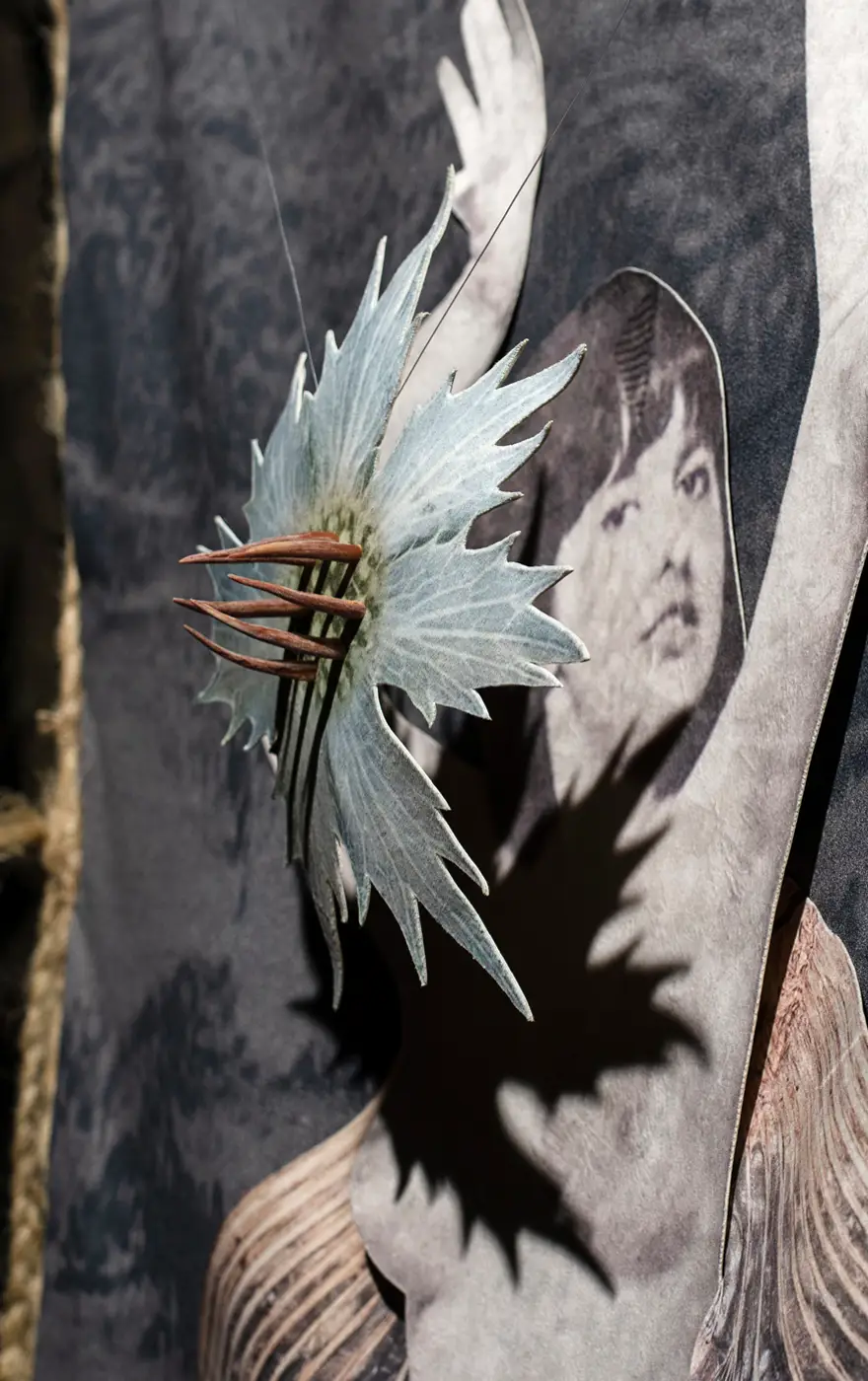
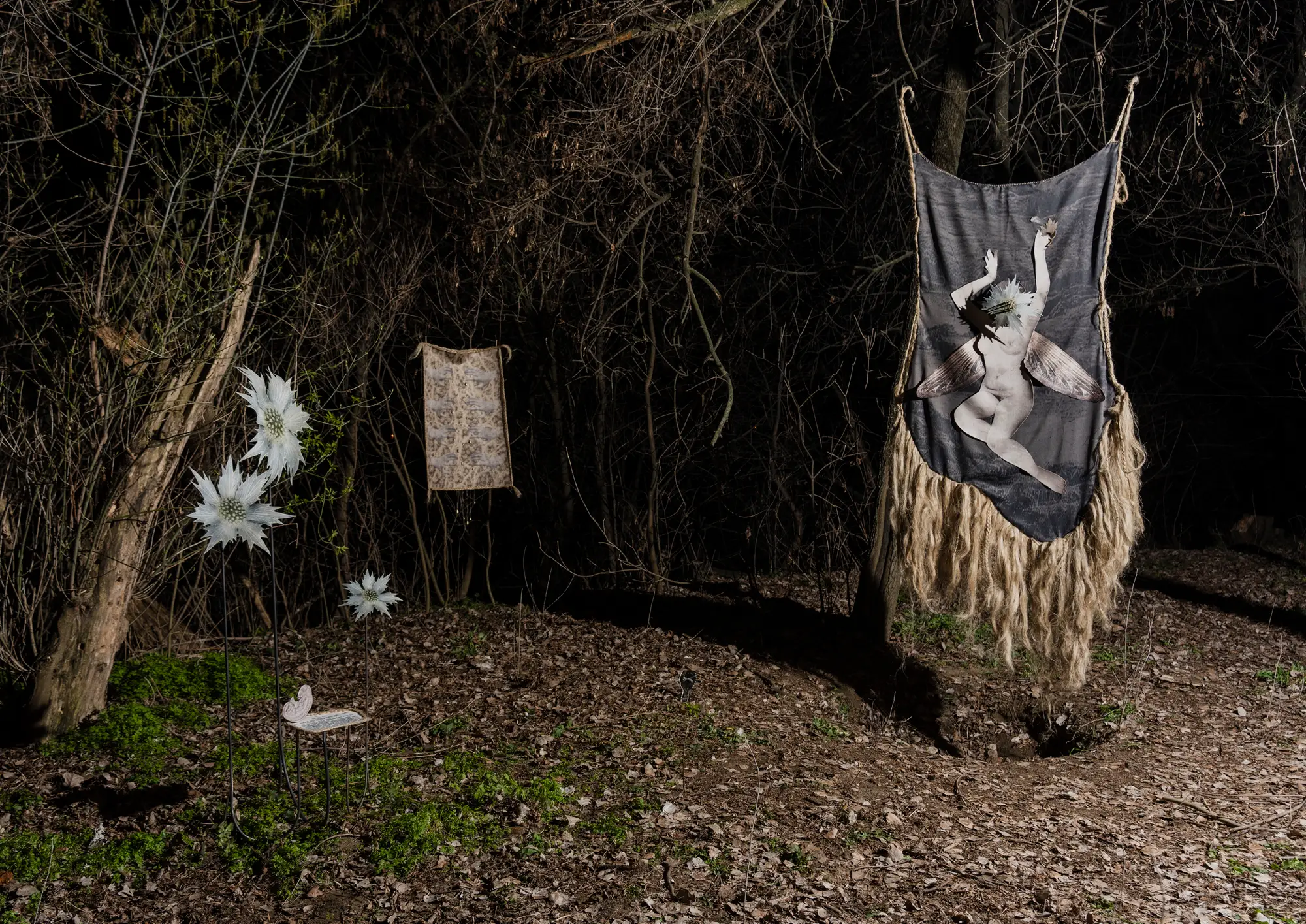
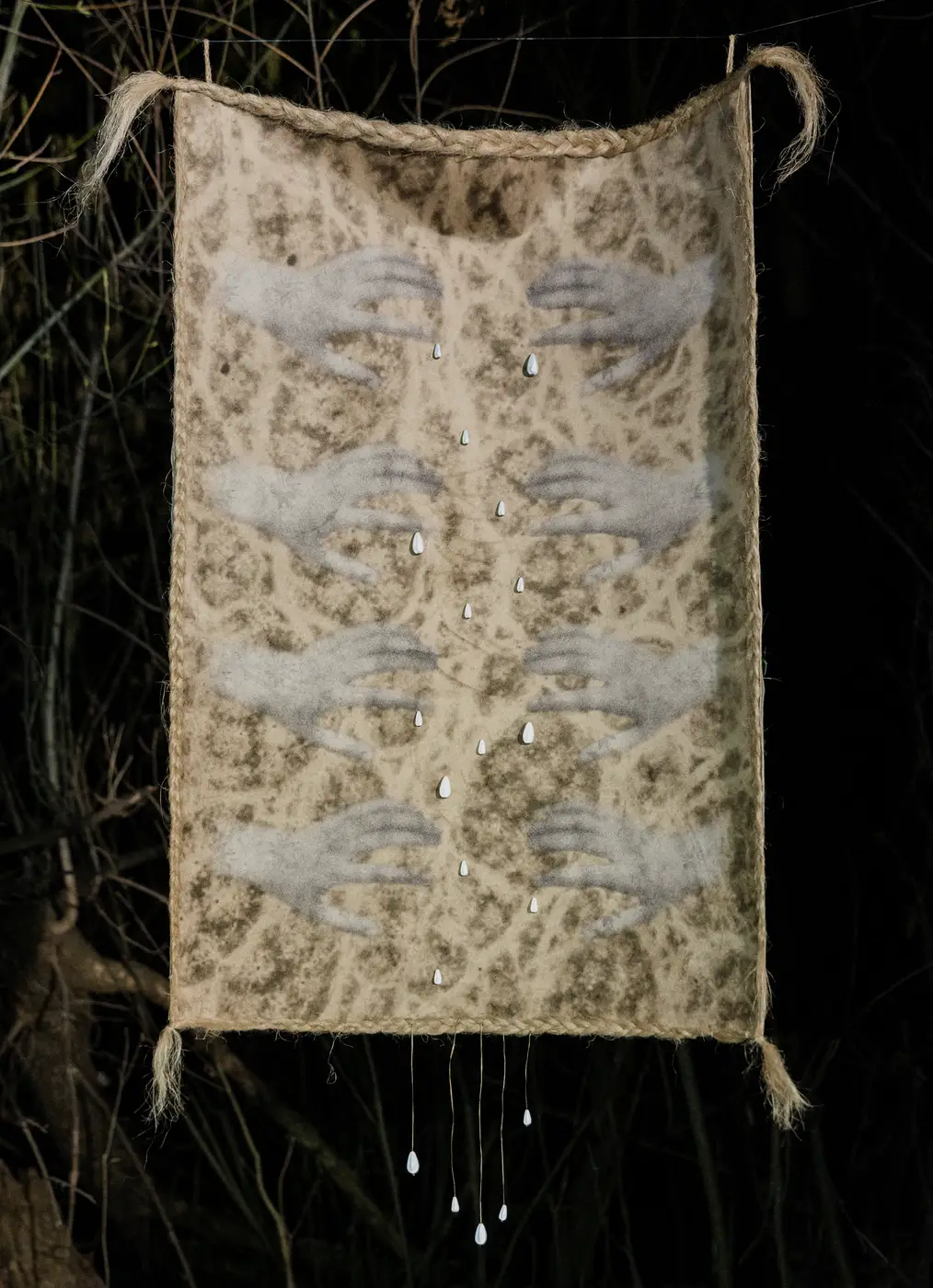
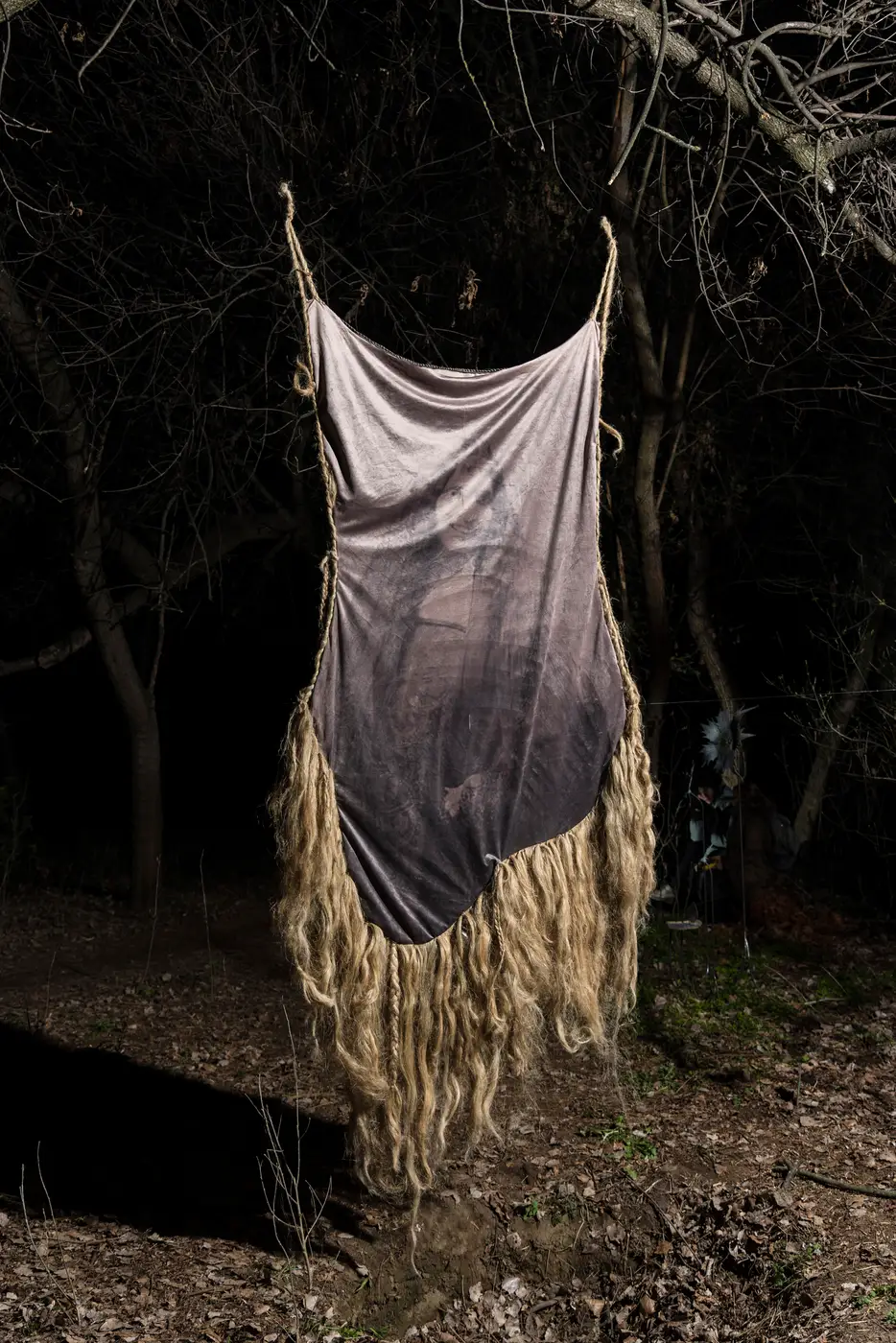
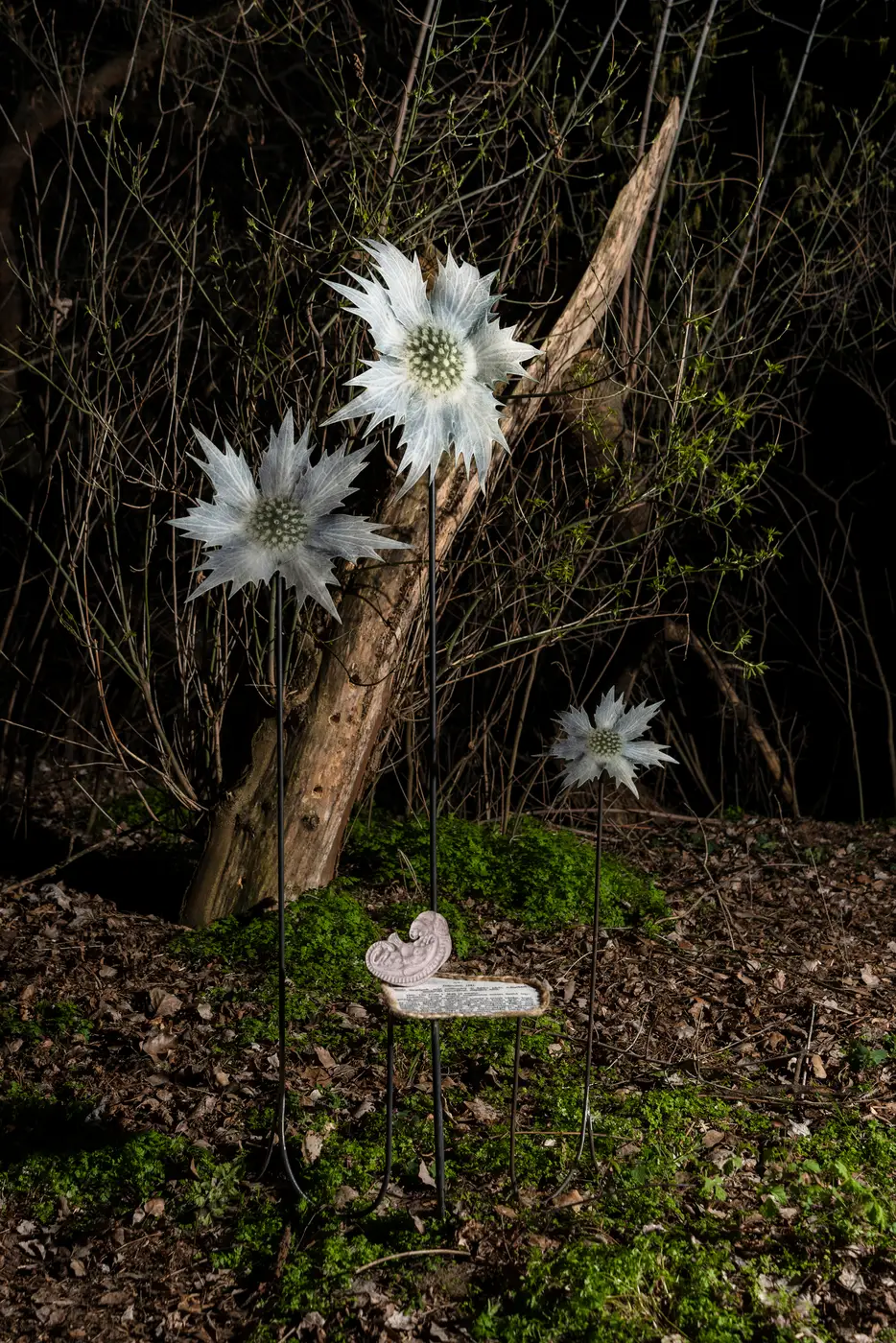
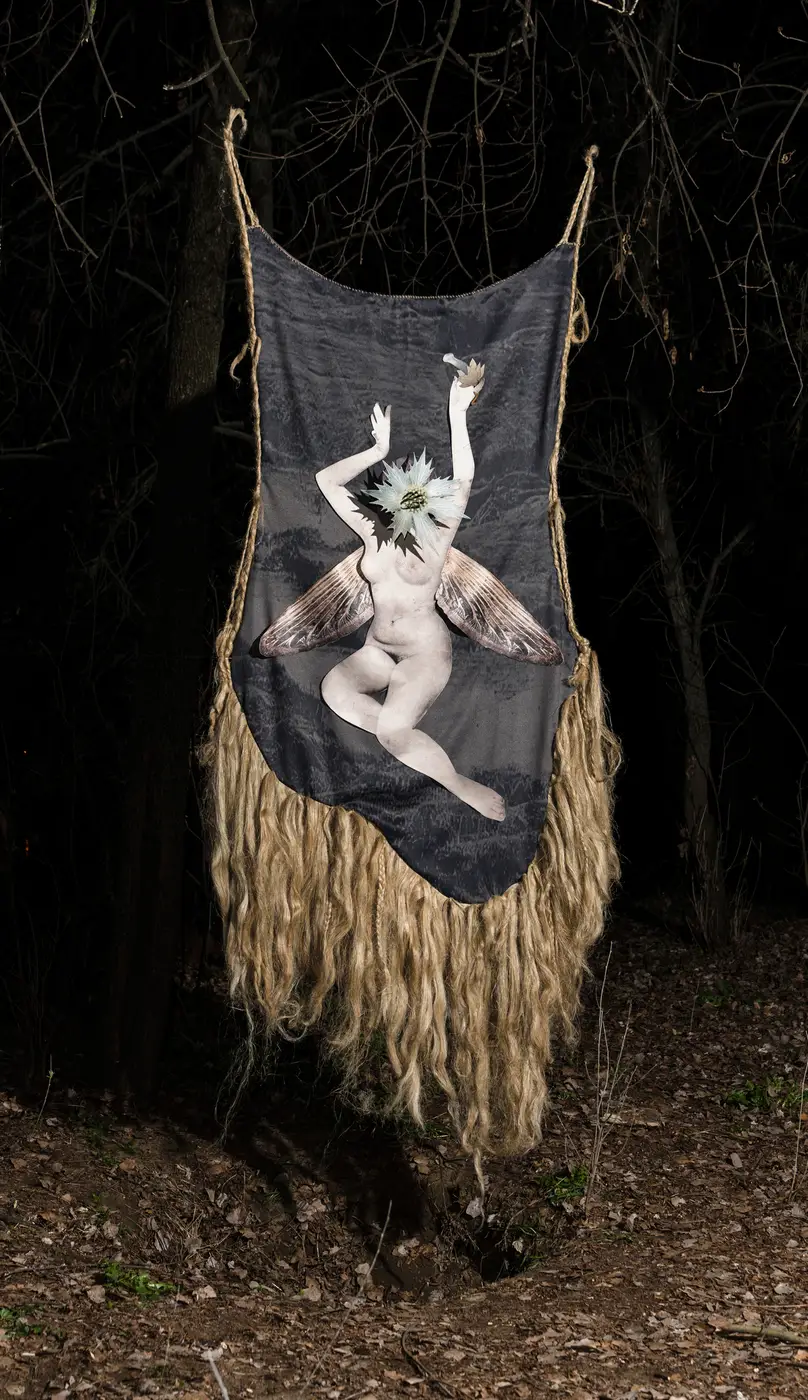
Katalin Kortmann Járay and Karina Mendreczky -> Curator: Tímea Fülöp Title: To Mrs. Gergely, Version I. is an evocative installation by artists Katalin Kortmann Járay and Karina Mendreczky, presented as part of the Rianás exhibition on Witch Island, Szeged. Curated by Tímea Fülöp, this work draws on the harrowing legacy of the Malleus Maleficarum, a 1486 text by Hienrich Kramer that contributed to the persecution and execution of around 40,000 women in Europe. The installation delves into the misogynistic narratives that have historically demonized female sexuality and autonomy, with text sourced from the archives of Hungarian witch trials. This exhibition, held on March 20, 2024, was a one-night outdoor event, organized by Zsuzsanna Sztanó, Ádám Jeneses, and Gyula A. Kovács. Photography for the event was provided by Zsuzsi Simon and Benedek Bognár.
Their partnership has produced a body of work recognized for its ability to resonate deeply with viewers, offering a sensory exploration of complex, interconnected themes.
Themes of Animism and Ecological Consciousness
The duo’s work is fundamentally anchored in animism, an ancient belief system that views the world as animated by spiritual forces.
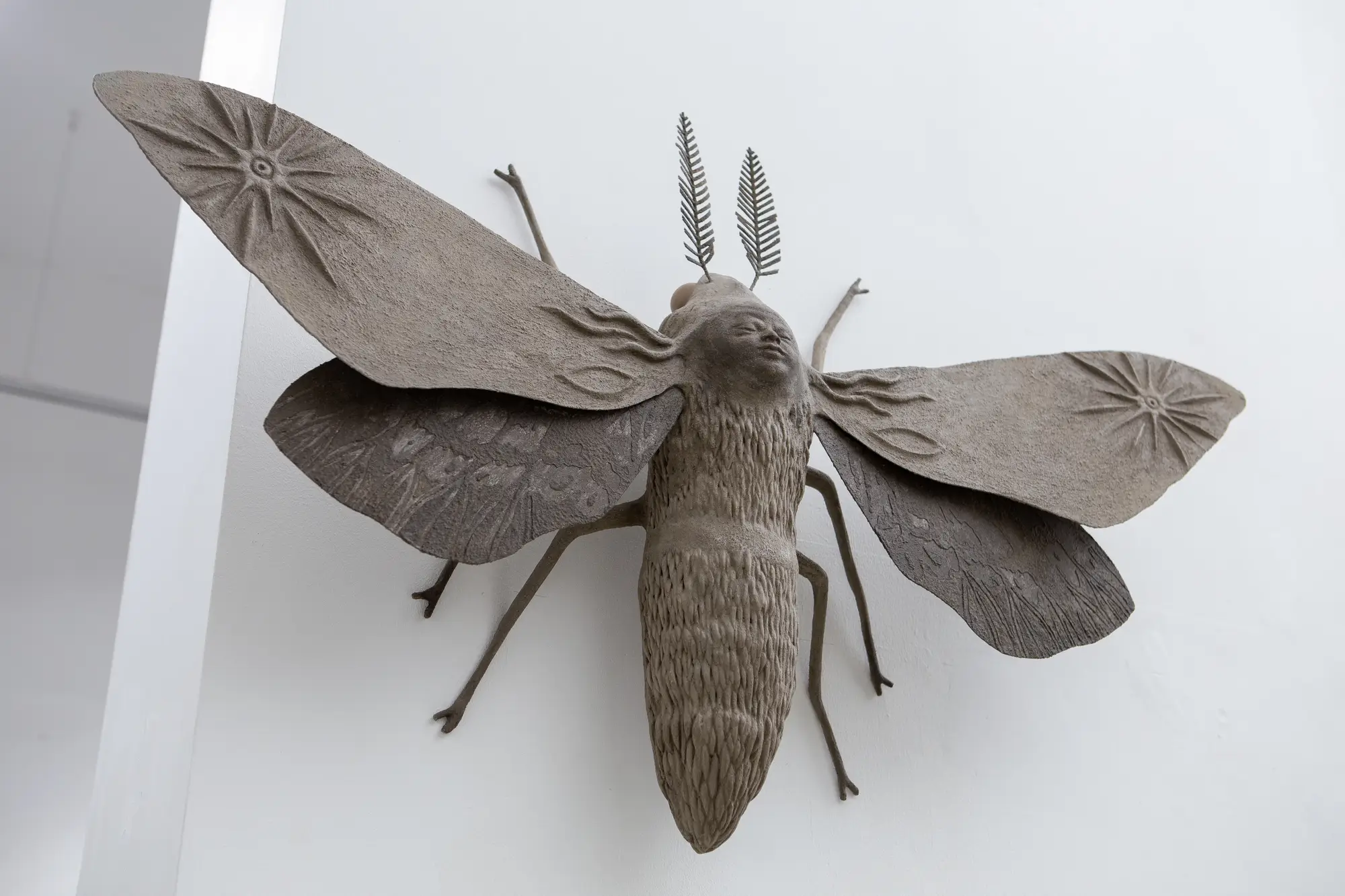
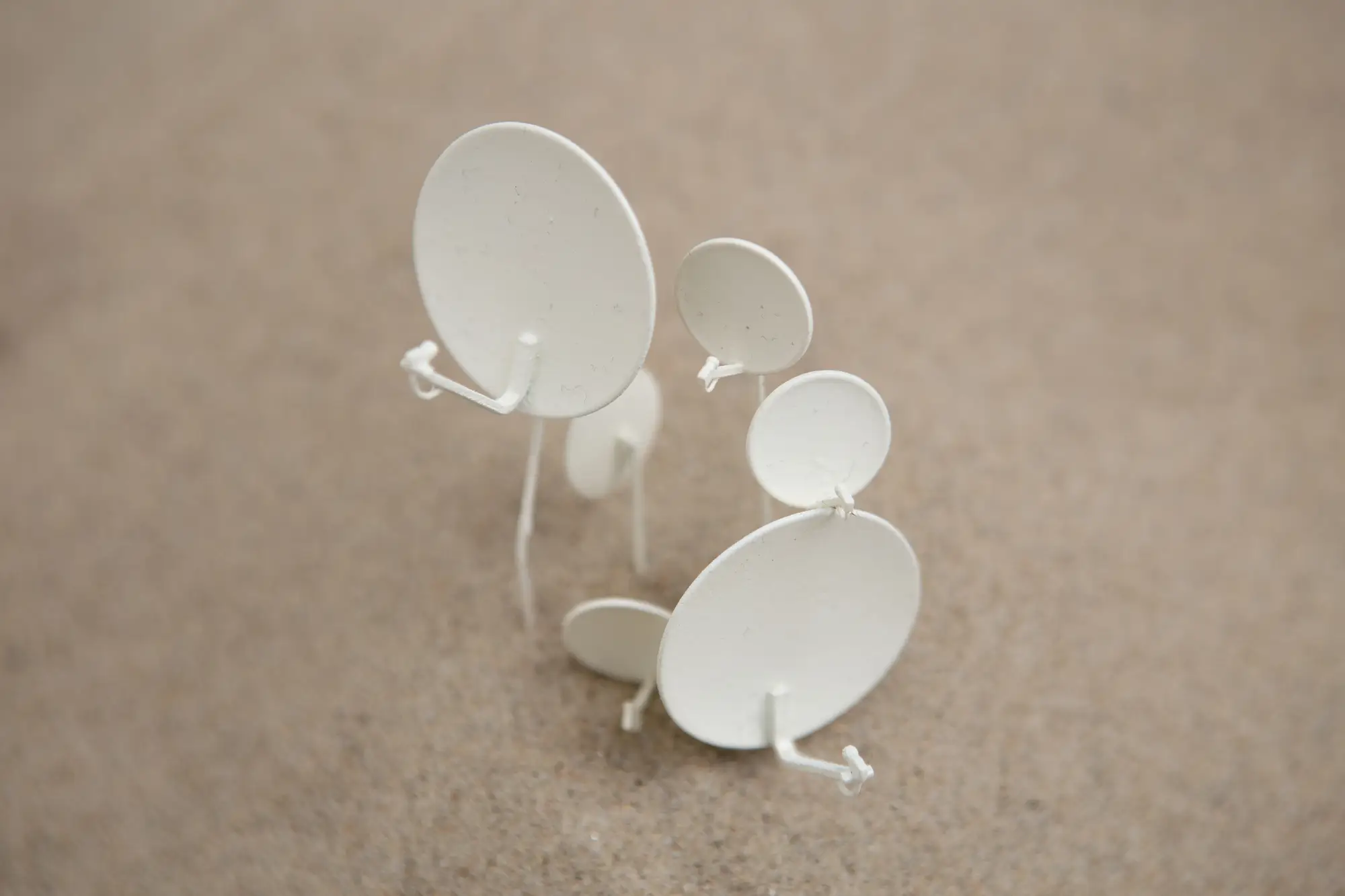
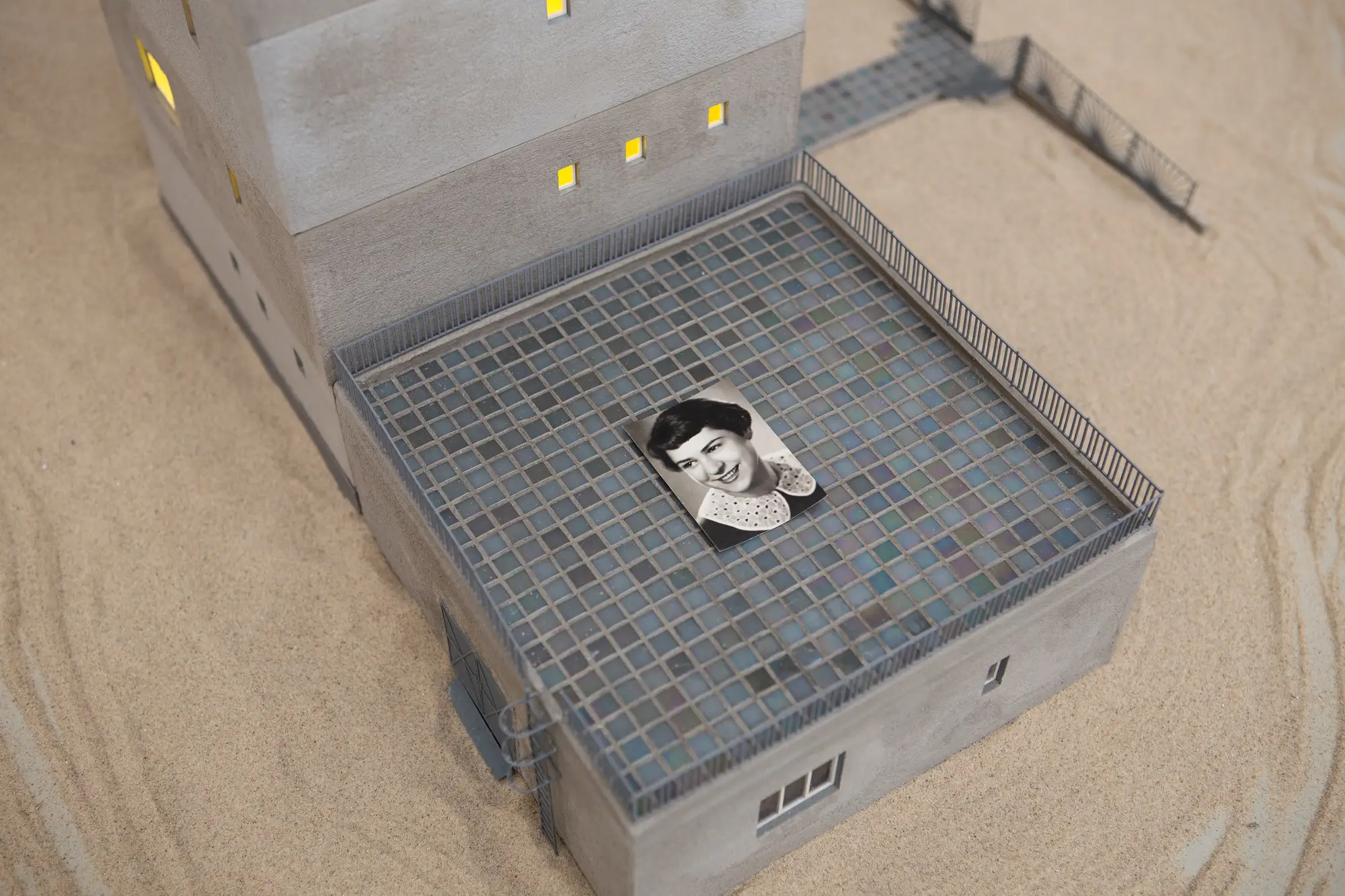
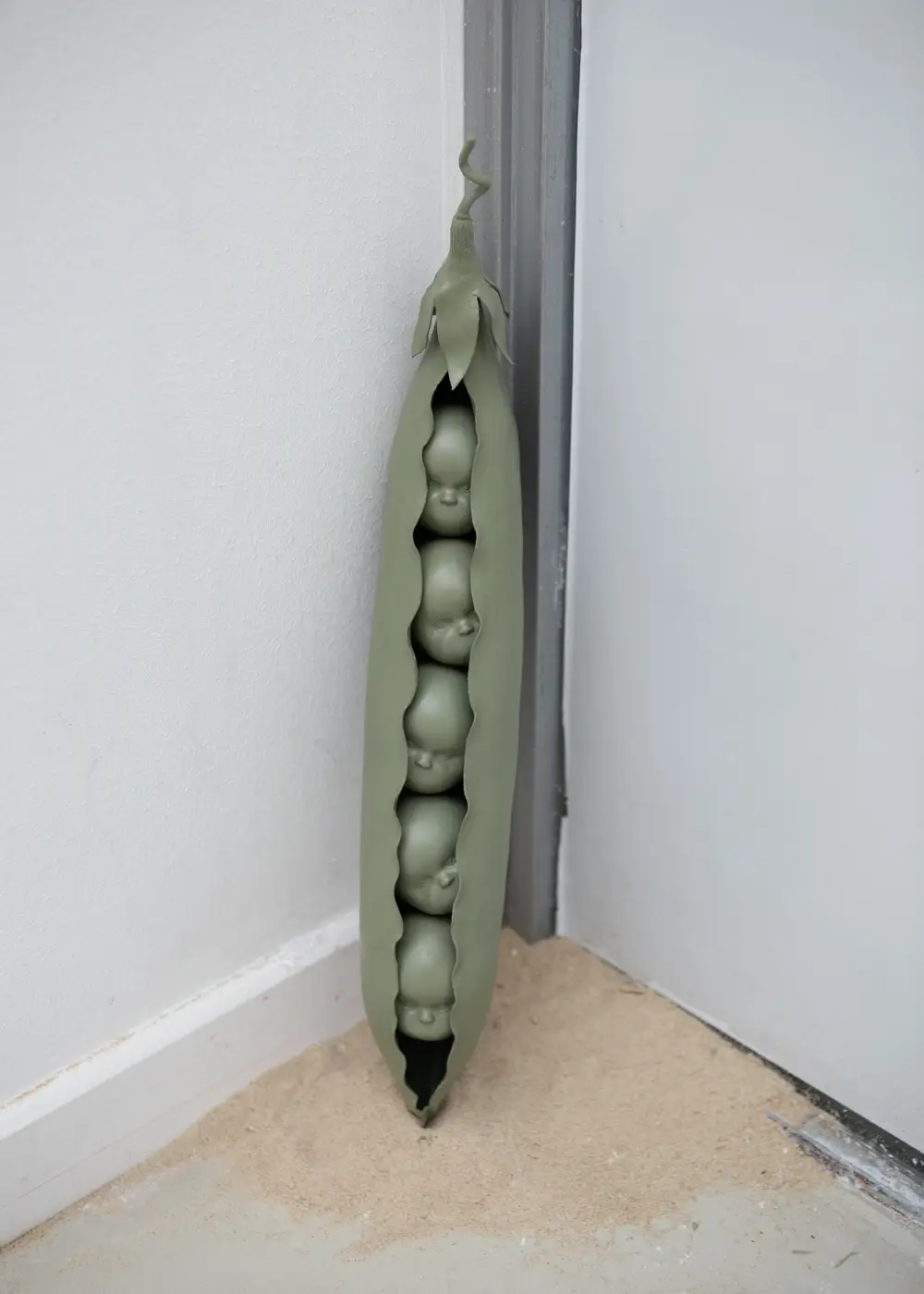
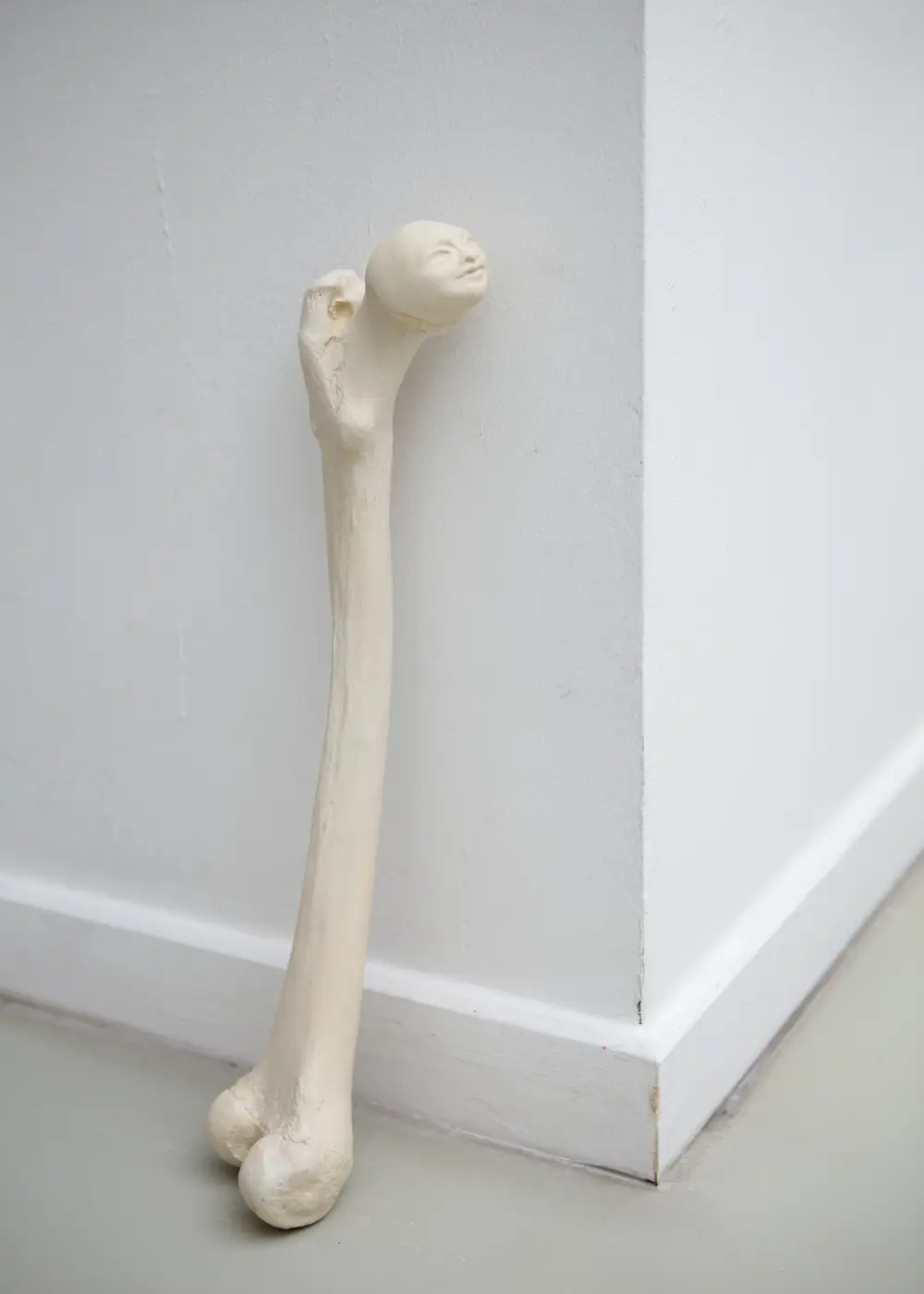
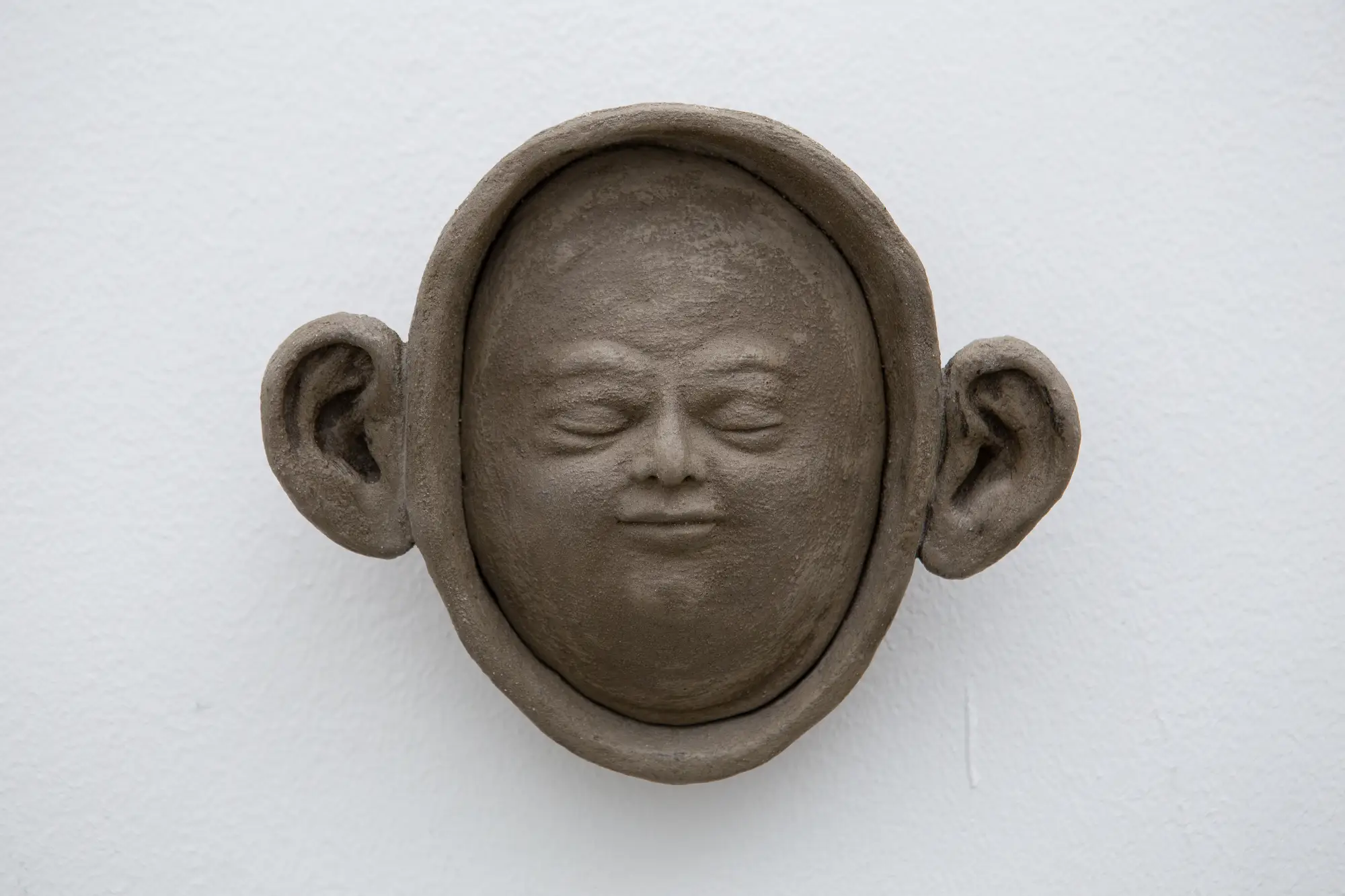
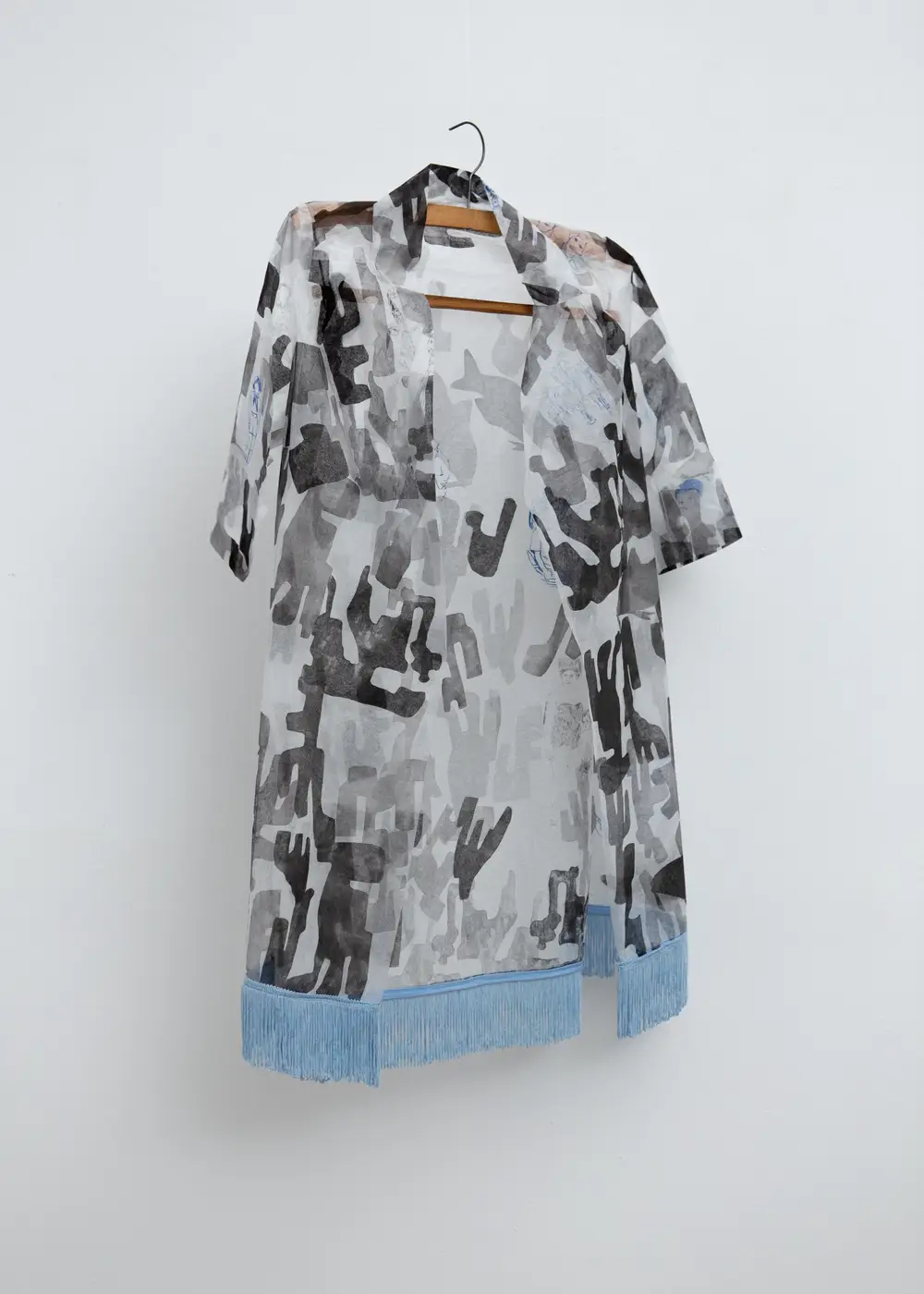
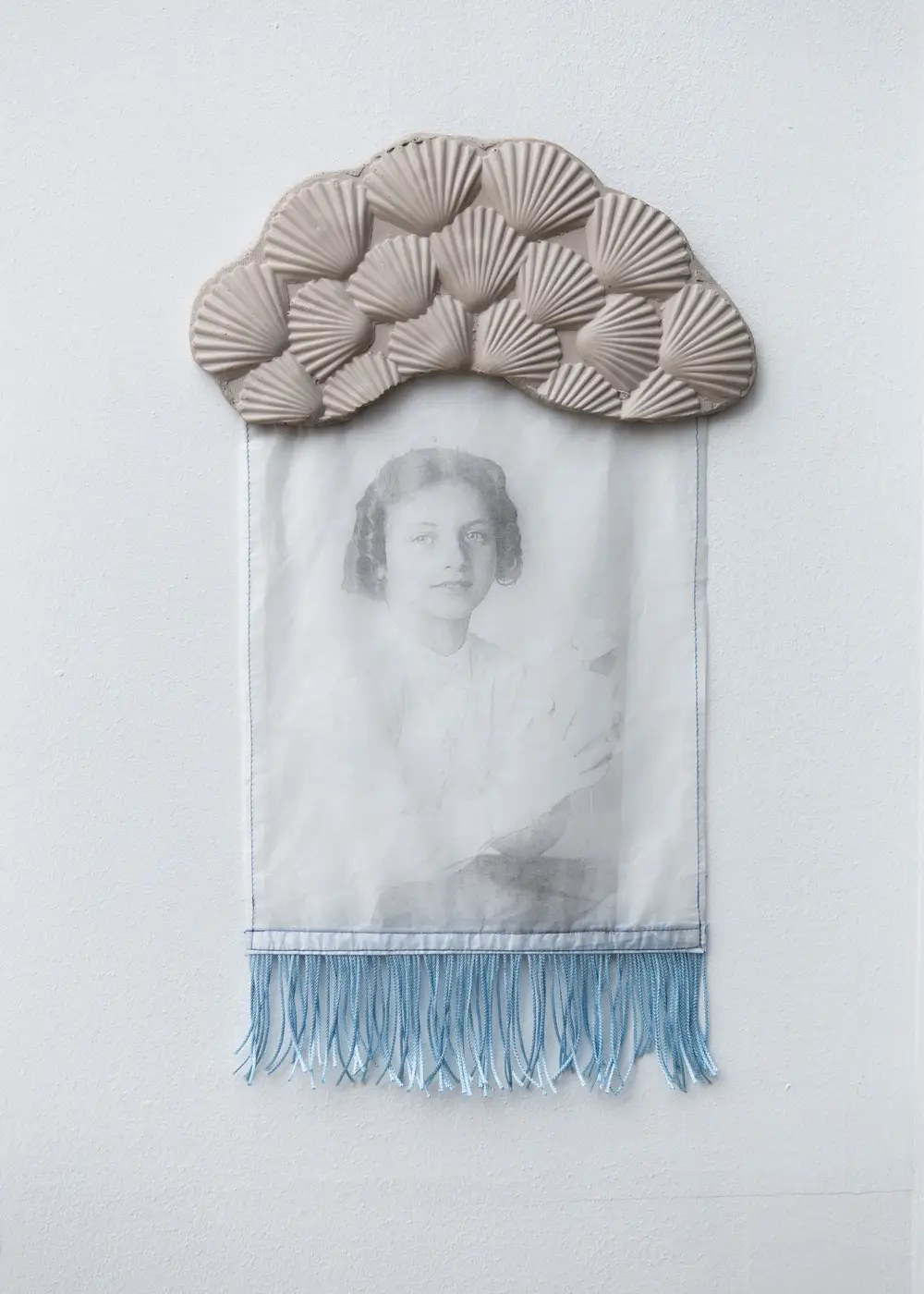
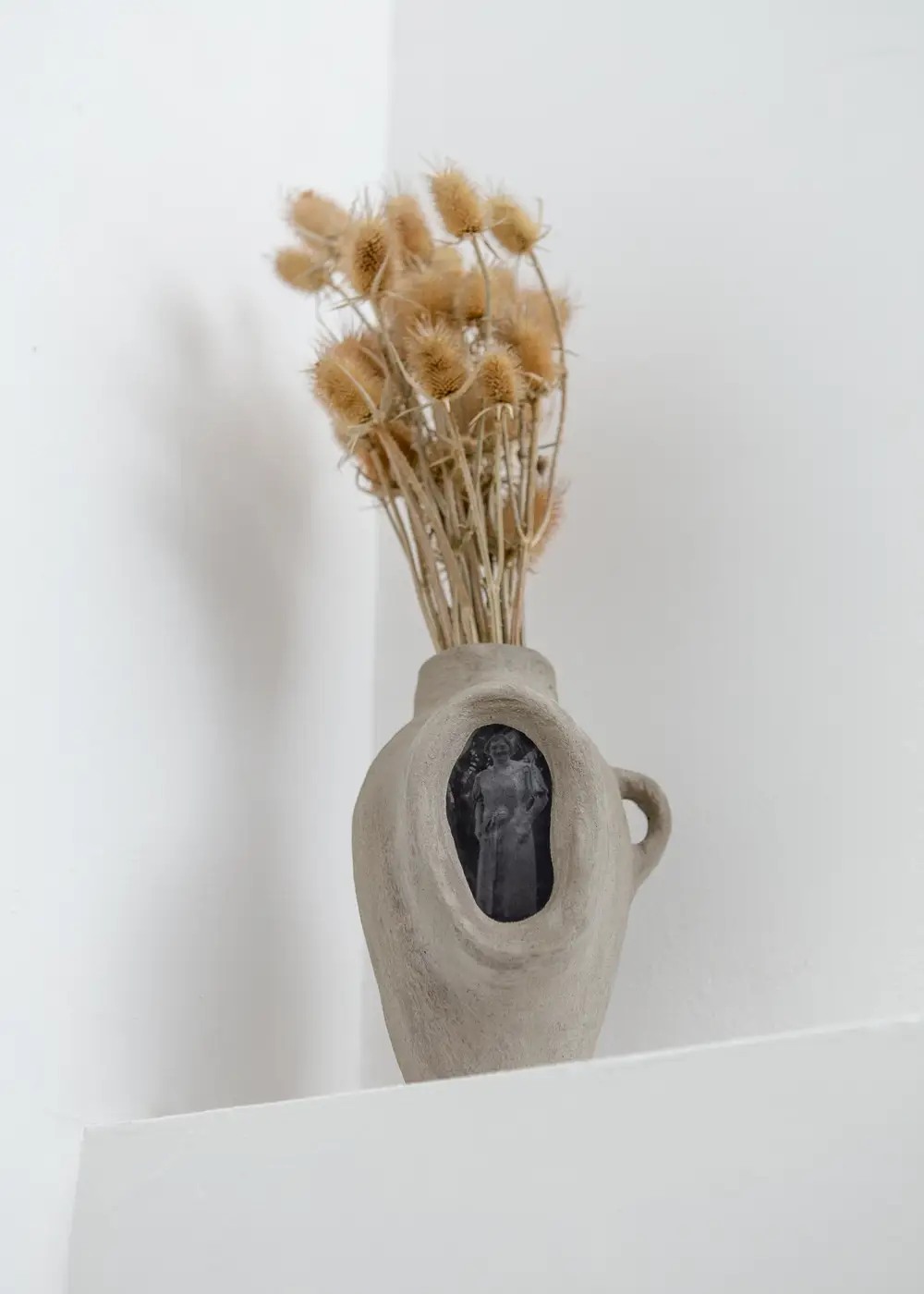
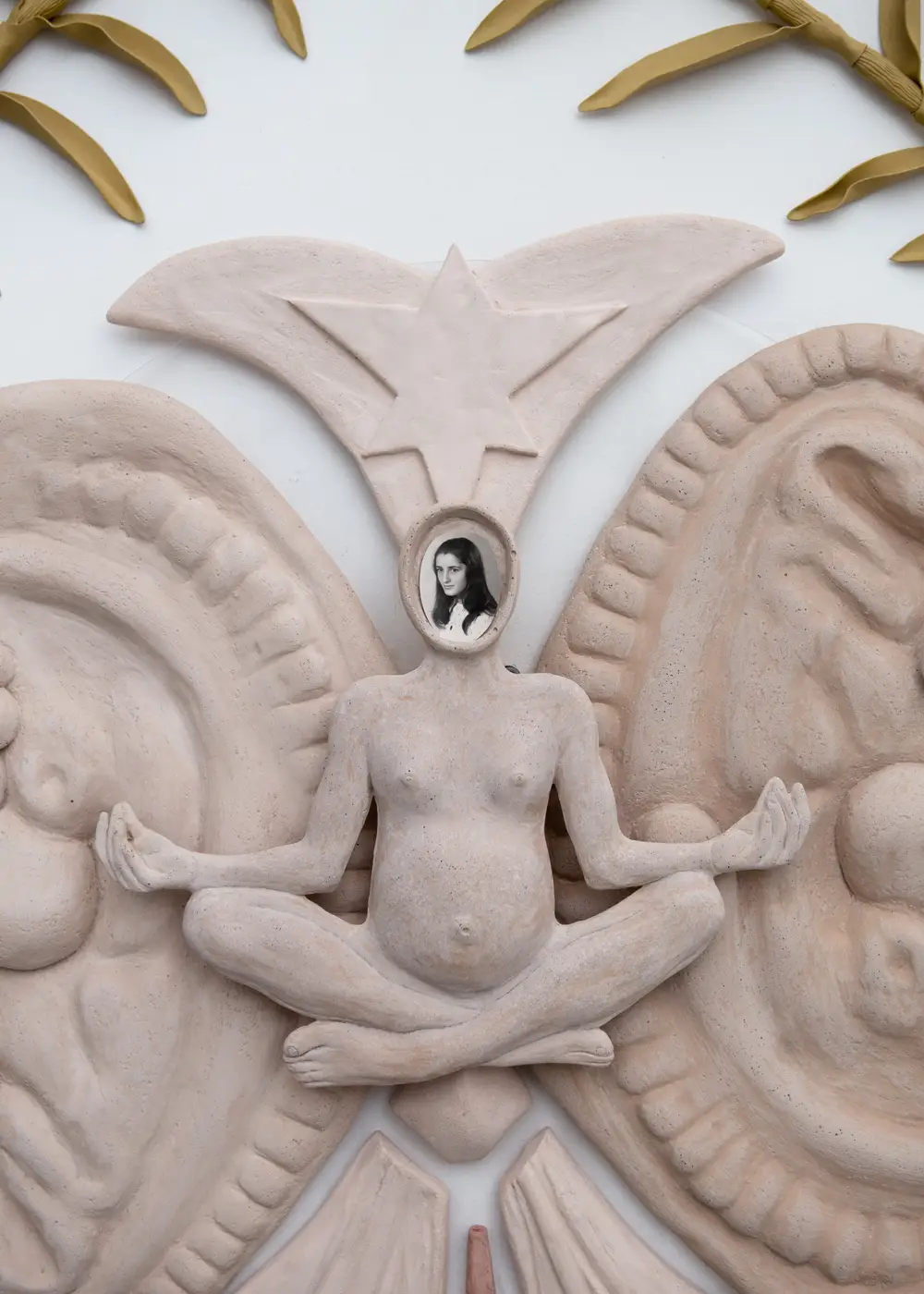
Artists: Sára Gink, Katalin Kortmann Járay, Karina Mendreczky Title: Transitional Objects, Transitional Landscapes Curator: Ajna Maj About: Transitional Objects, Transitional Landscapes explores the impact of the 2021 quarantine on our relationship with home and material culture. Drawing on environmental psychology and themes of spiritism, magic, and animism, the exhibition delves into how confinement redefined the notion of home. The artists use personal stories to evoke feelings of nostalgia and attachment to places and objects. Everyday items are transformed into abstract, anthropomorphic forms, highlighting the complex emotional connections we have with our surroundings. The exhibition also reflects on coping strategies for modern anxieties, such as illness and climate change, and their effects on the psyche. Photography: Mátyás Gyuricza
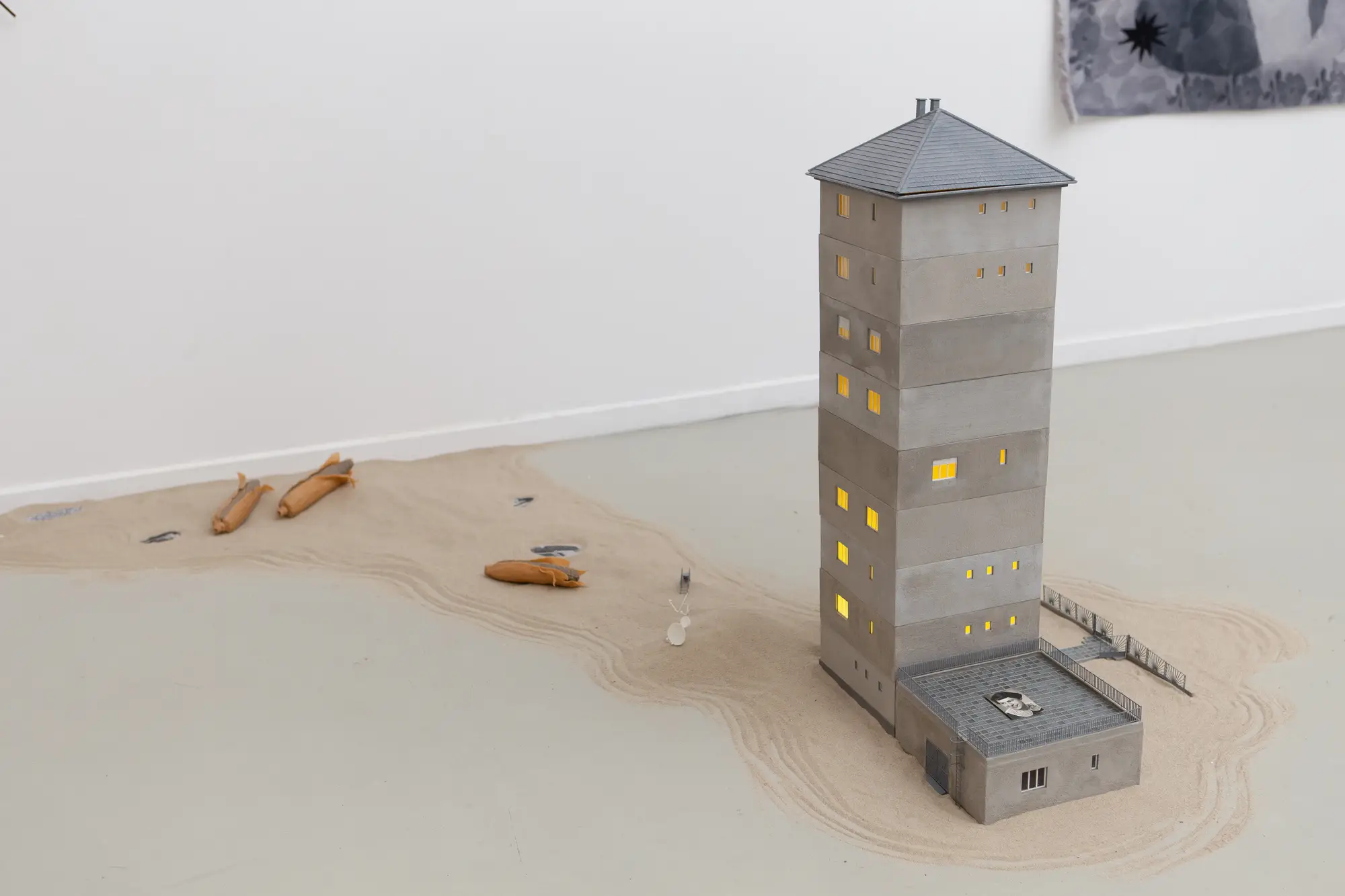
This perspective, which contrasts sharply with the objectification and exploitation inherent in modern ecological crises, forms the backbone of their installations.
By invoking animism, they challenge viewers to reconsider their relationship with the natural world and the objects that populate it.
Their installations are not mere visual experiences but are instead immersive environments that engage multiple senses, often incorporating sound elements and intricate, tactile surfaces.
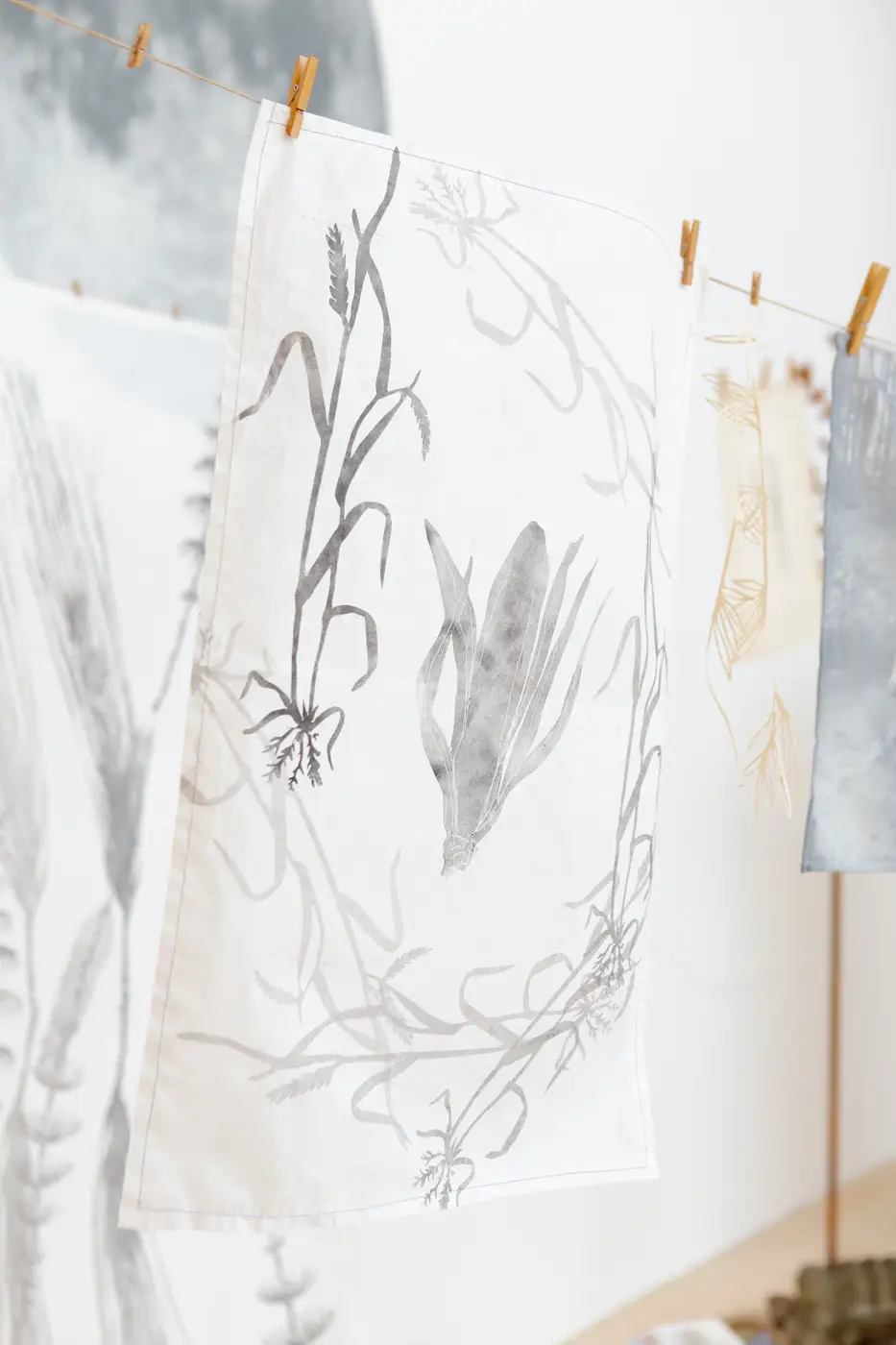
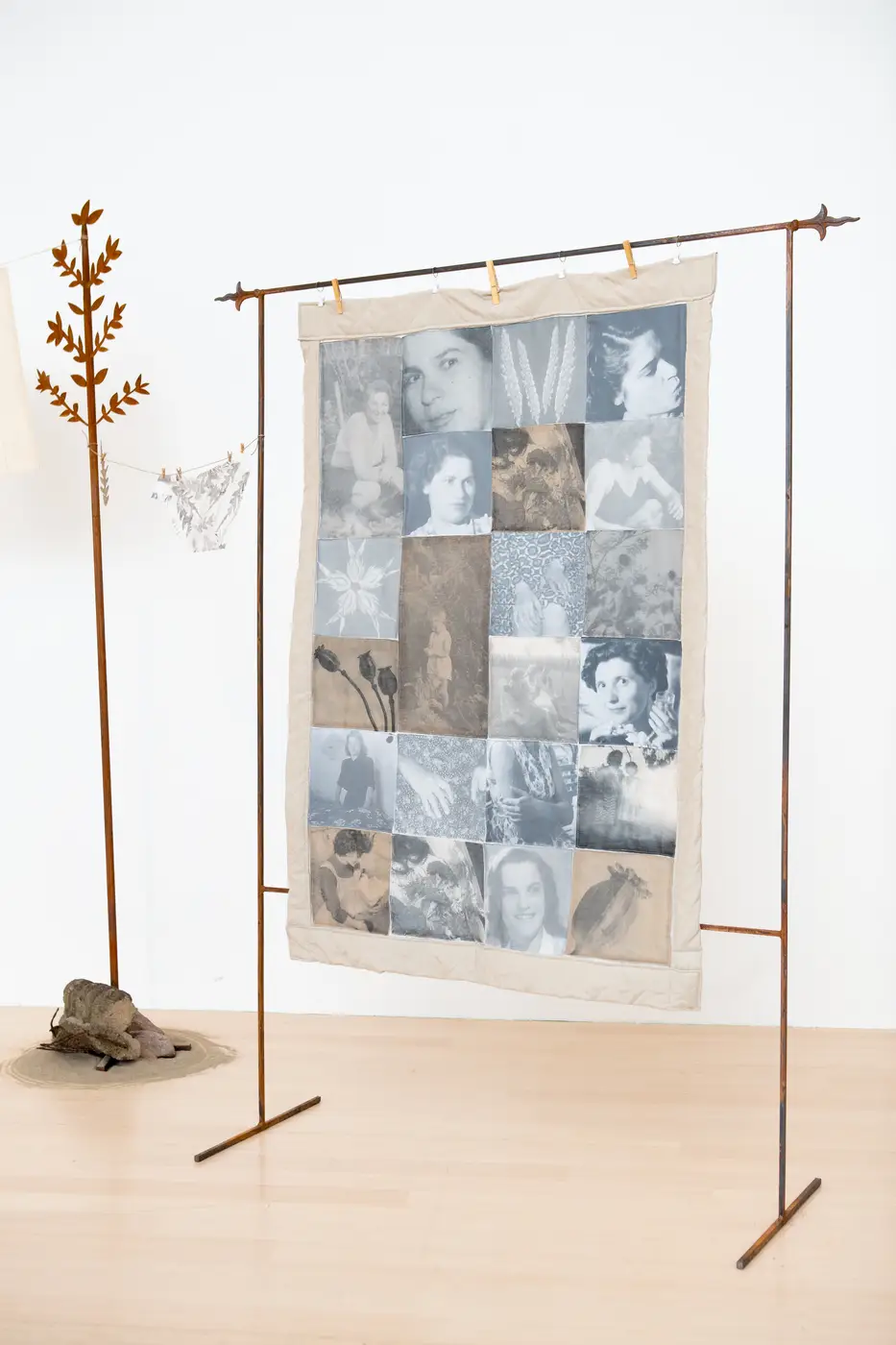
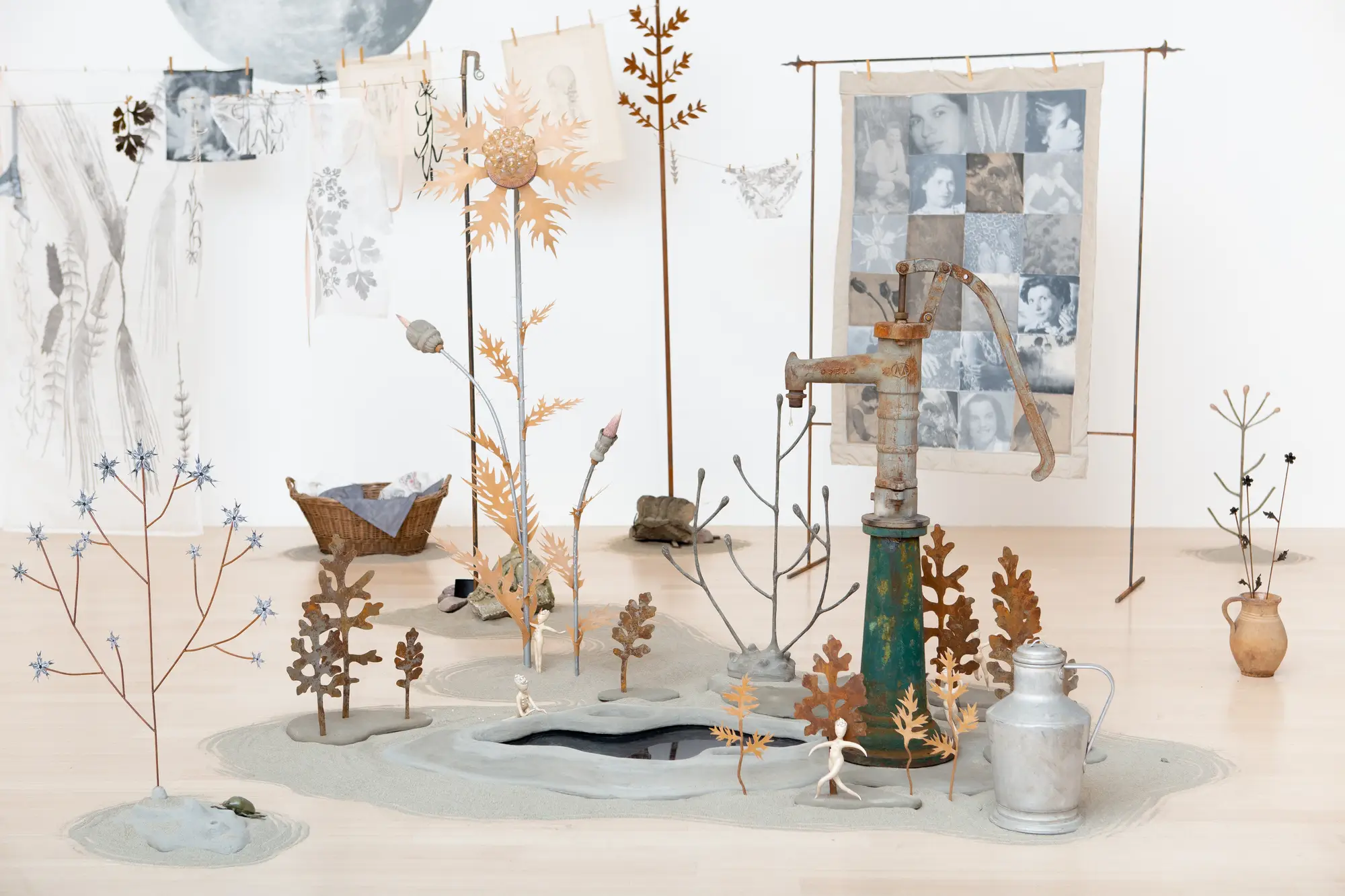
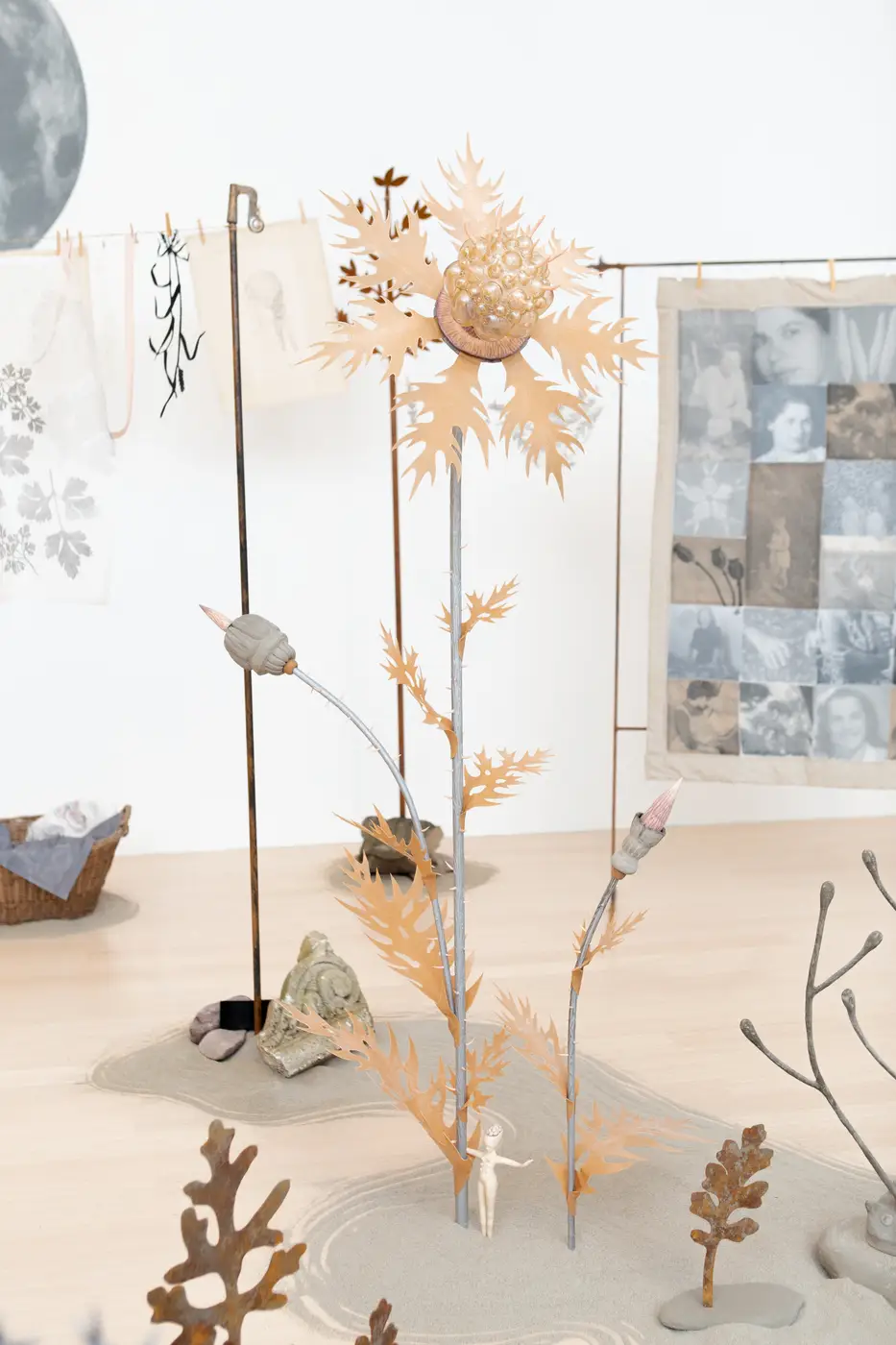
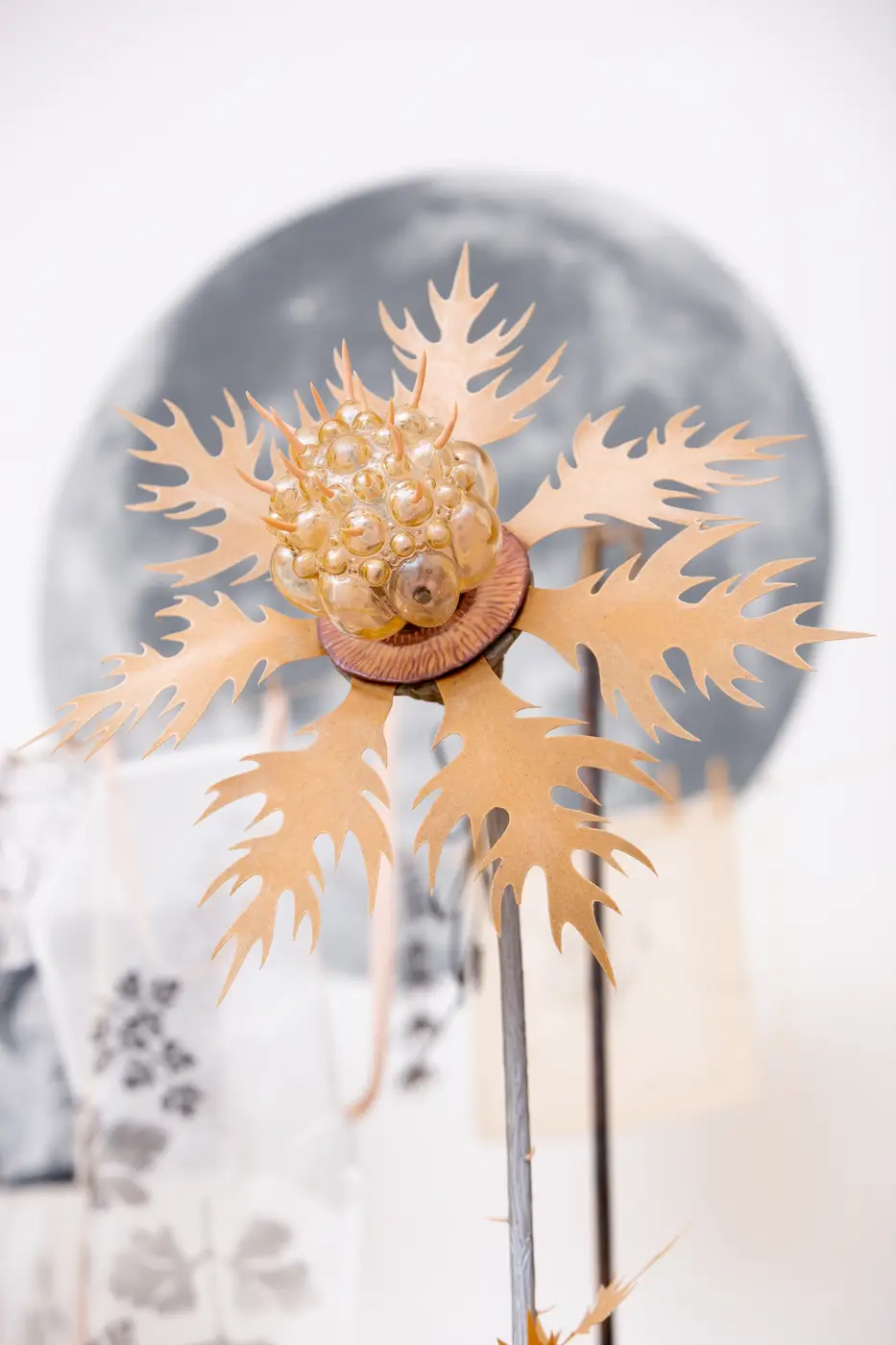
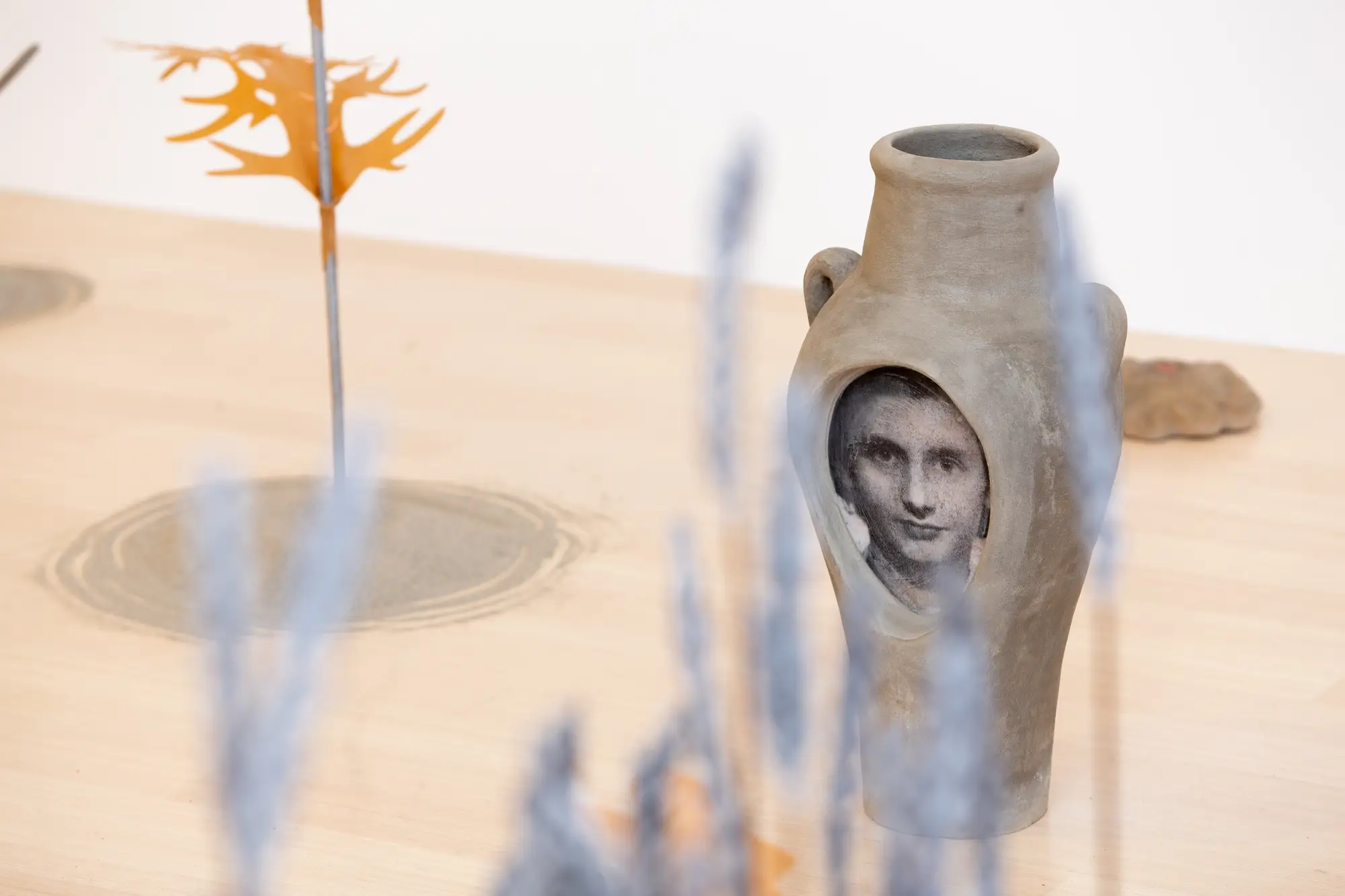
Artists: Katalin Kortmann Járay and Karina Mendreczky Title: Where All the Flowers Have Gone Curator: Vitus Weh Venue: Ludwig Museum, Budapest Venue: Ludwig Museum, BudapestWhere All the Flowers Have Gone is an installation that draws inspiration from Pete Seeger’s 1955 song of the same name. The artwork represents an imaginary garden, blending elements of nature and memory to create a pseudo-ethnographic setting. This symbolic garden serves as both a hopeful space for new beginnings and a secretive refuge where human existence intertwines with the natural world. The installation creates a fictitious place that reflects a state of mind and offers shelter during times of crisis, making it a poignant commentary on survival and resilience. Photography: Mátyás Gyuricza
The artists use a variety of materials—textiles, concrete, iron, clay—to create metaphorically rich and fragile spaces.
These spaces are often populated by hybrid creatures that blur the lines between human, plant, and animal forms, inviting viewers to reflect on the interconnectedness of all life.
Feminine Melancholy and Mystical Spaces
One of their most poignant exhibitions, The Long Sigh of the Frog (2024), held at am projects by Ani Molnár Gallery, delves into the life and work of Emily Dickinson.
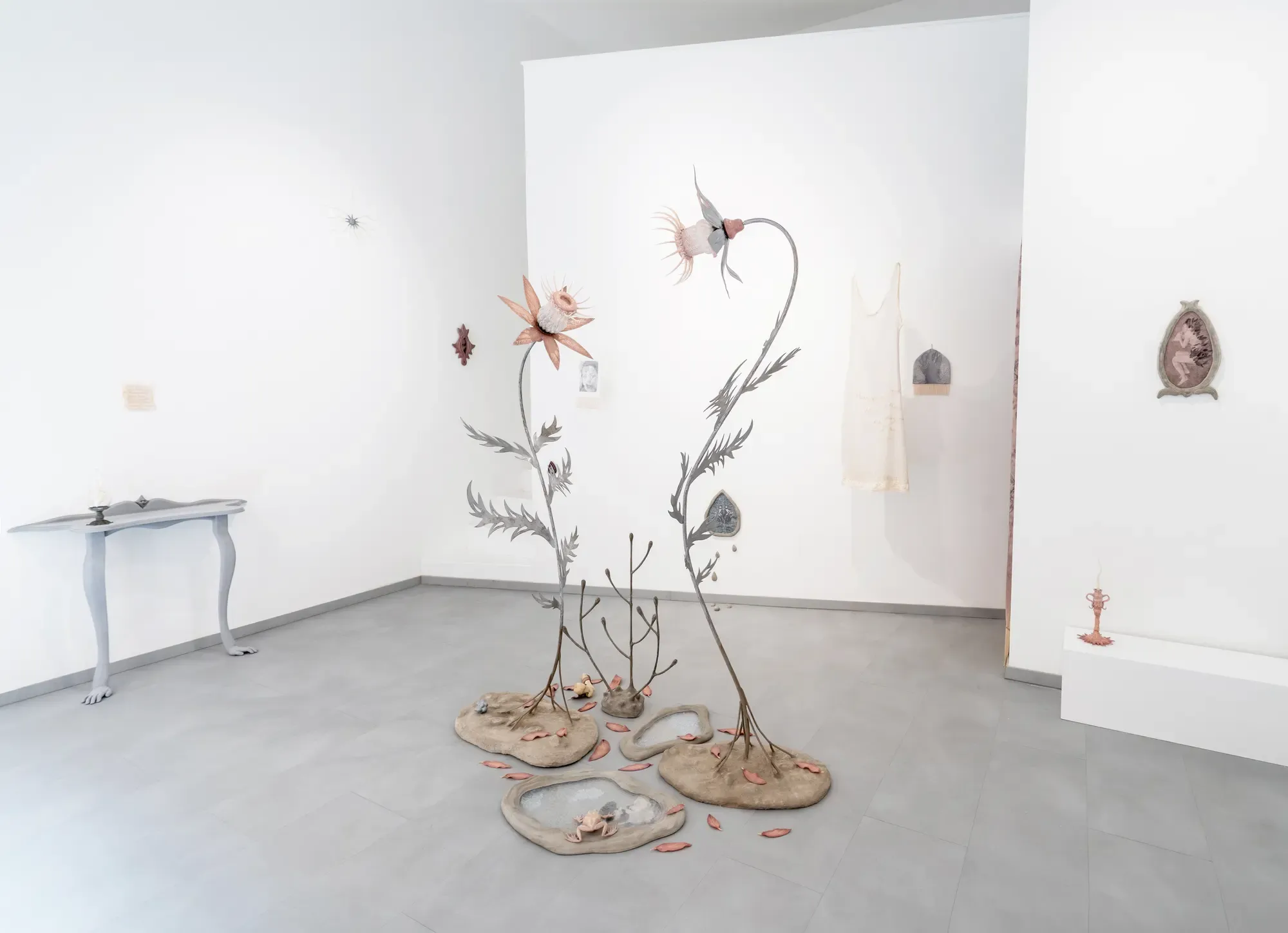
Dickinson, known for her deliberate isolation and profound introspection, serves as a muse for the exhibition.
The artists draw on Dickinson's lesser-known private correspondence, which suggests unfulfilled love and a deep connection to nature.
This exhibition transforms the gallery into an intimate, interior space that mirrors Dickinson’s own withdrawal from society, embodying the melancholy and solitude that pervaded her life.
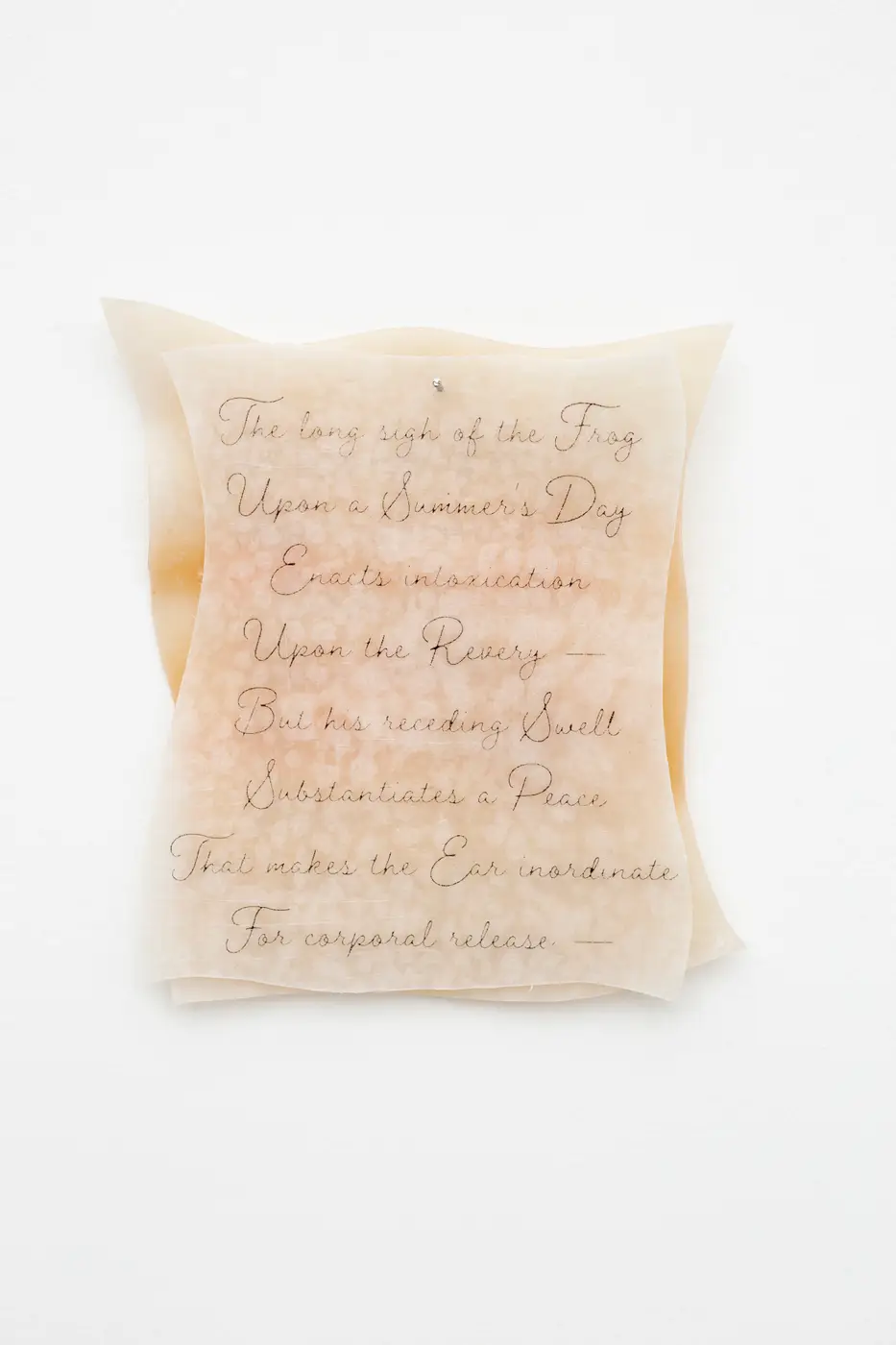
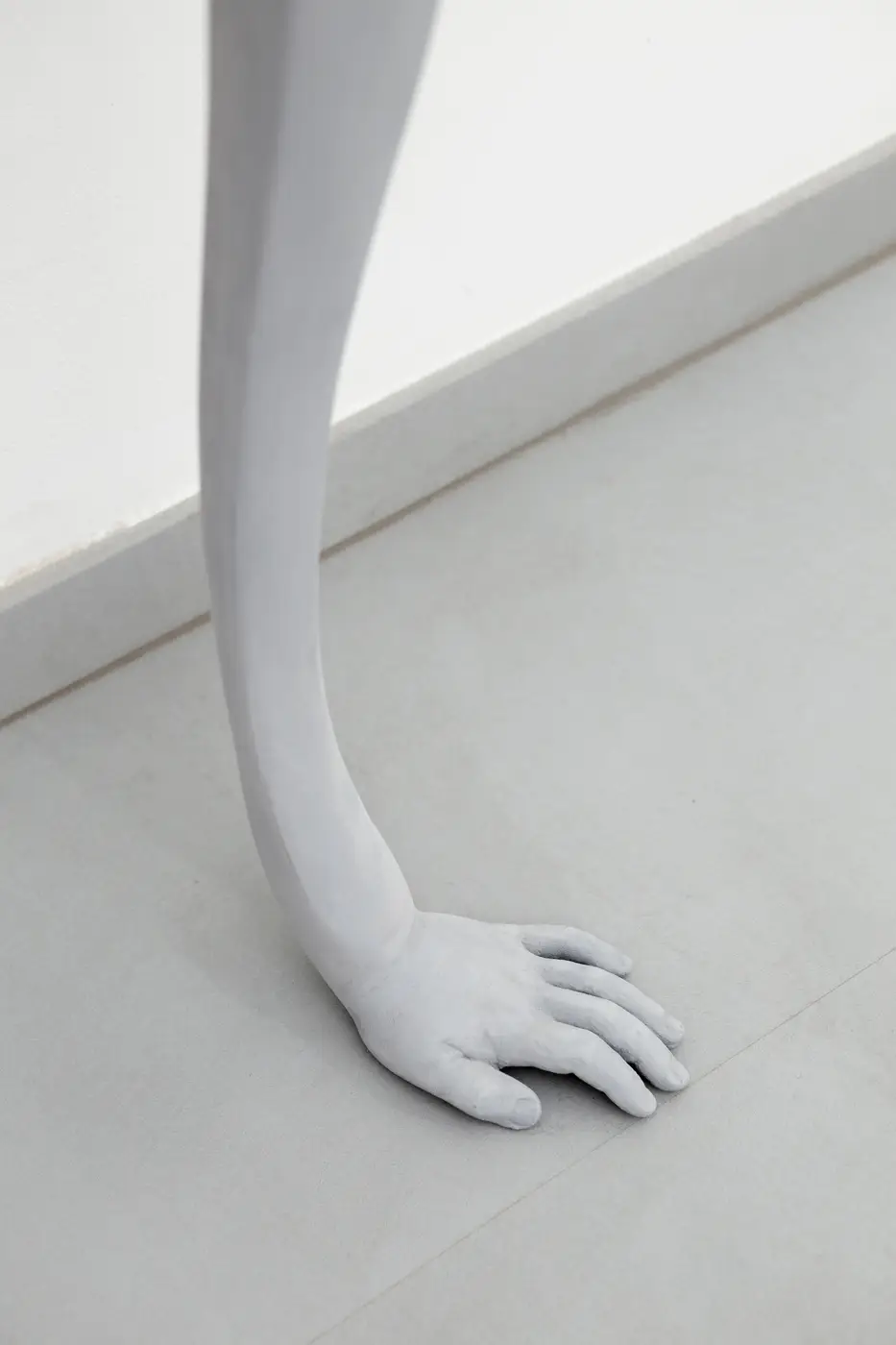
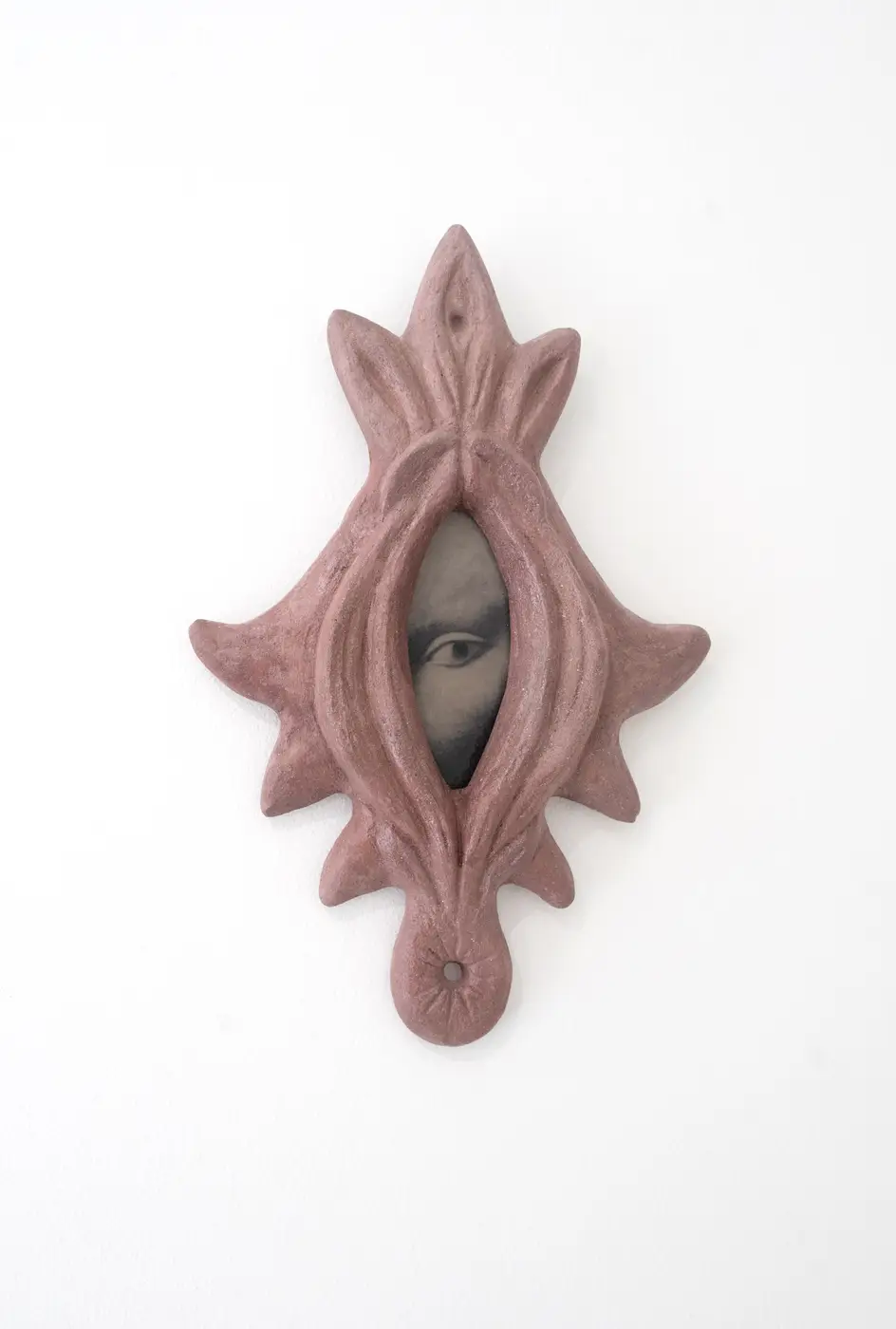
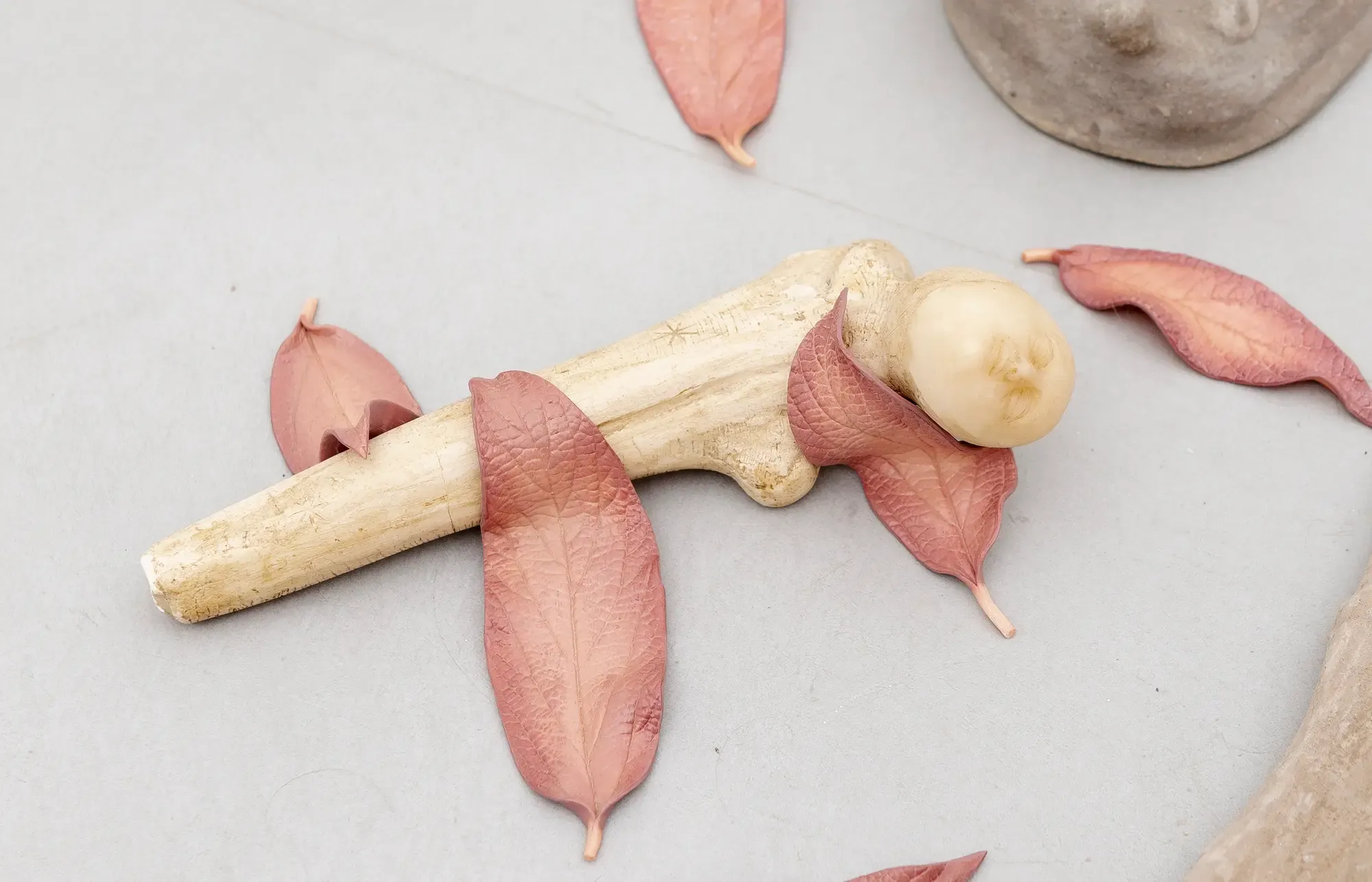
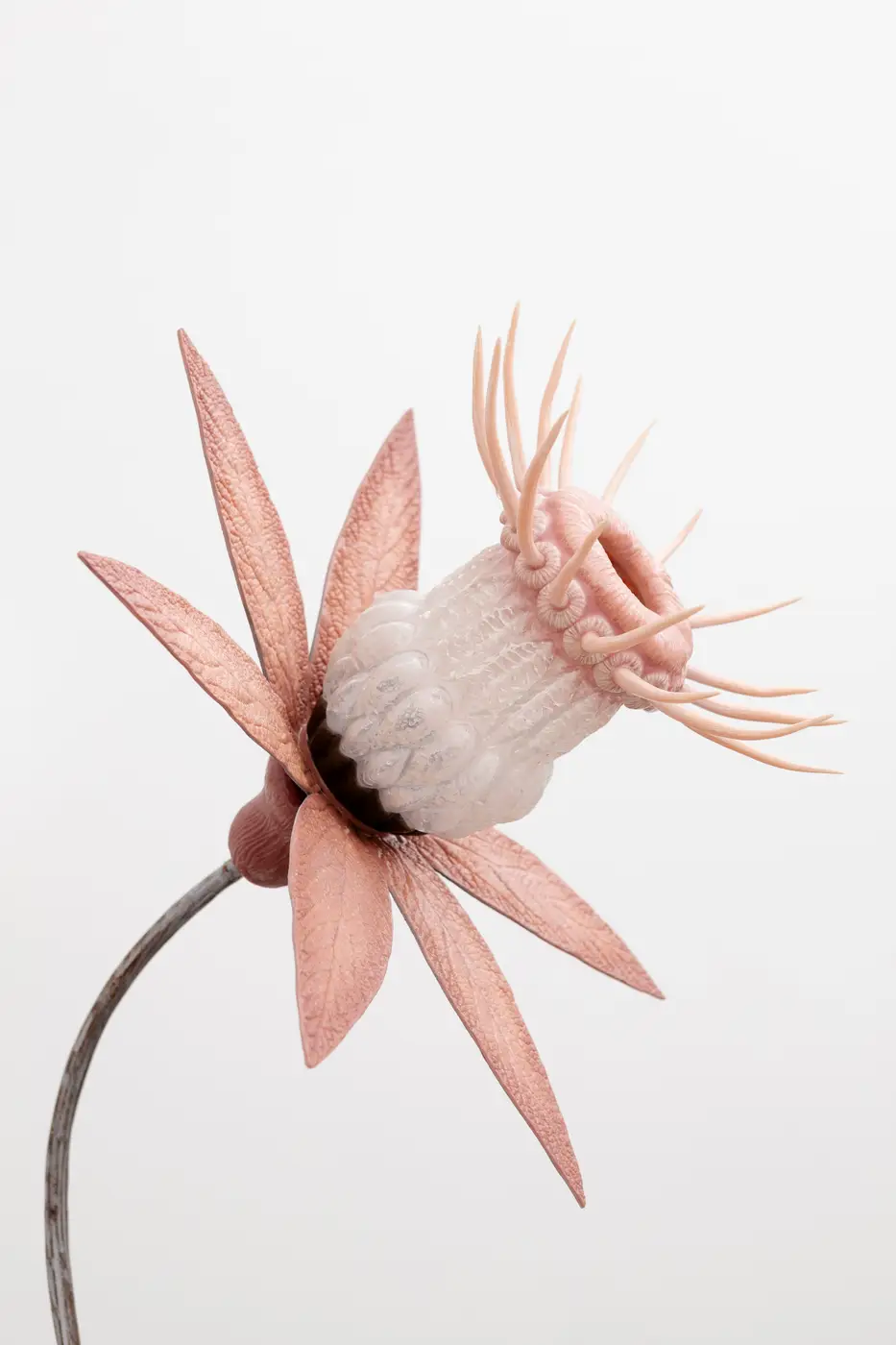
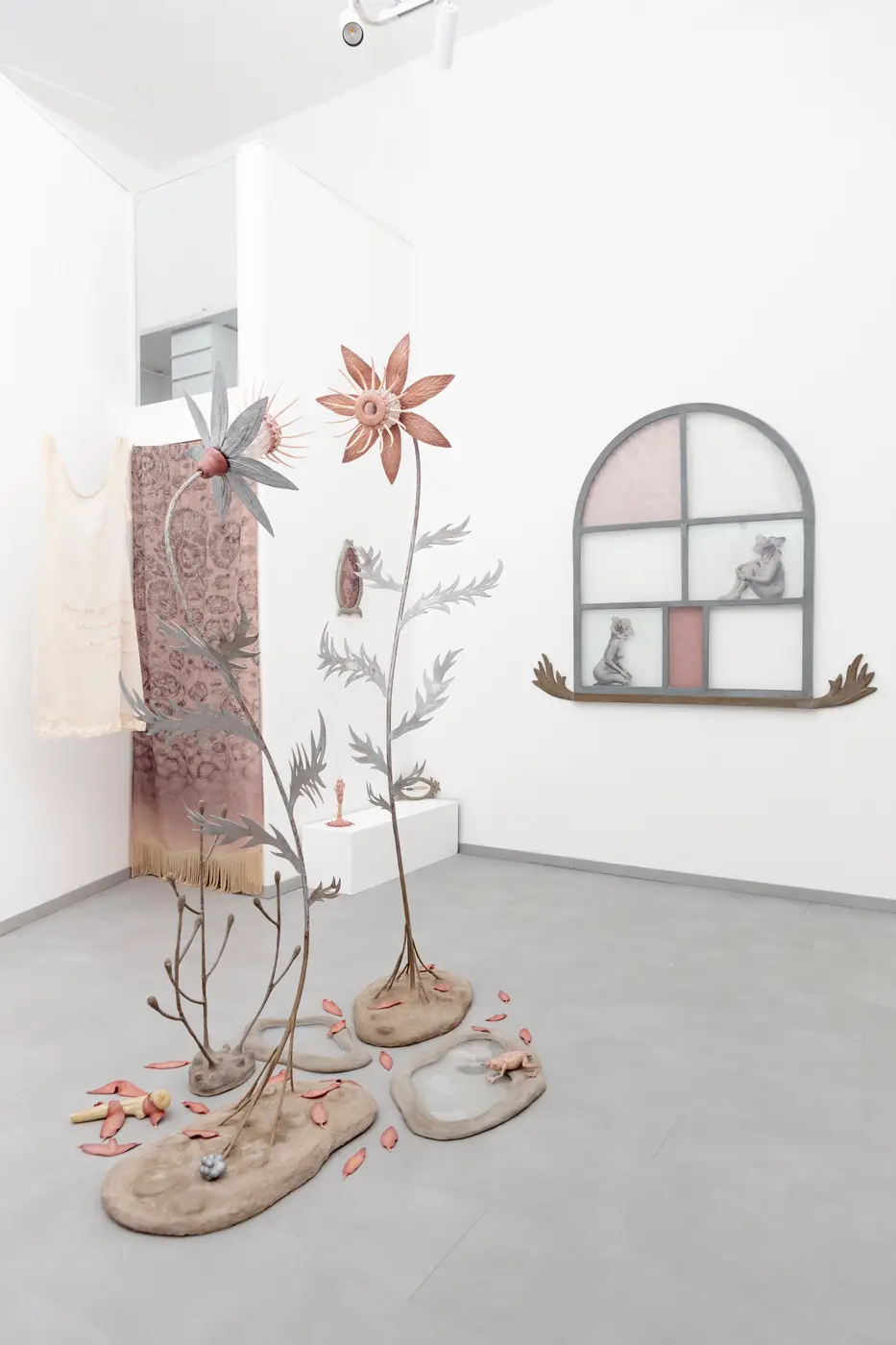
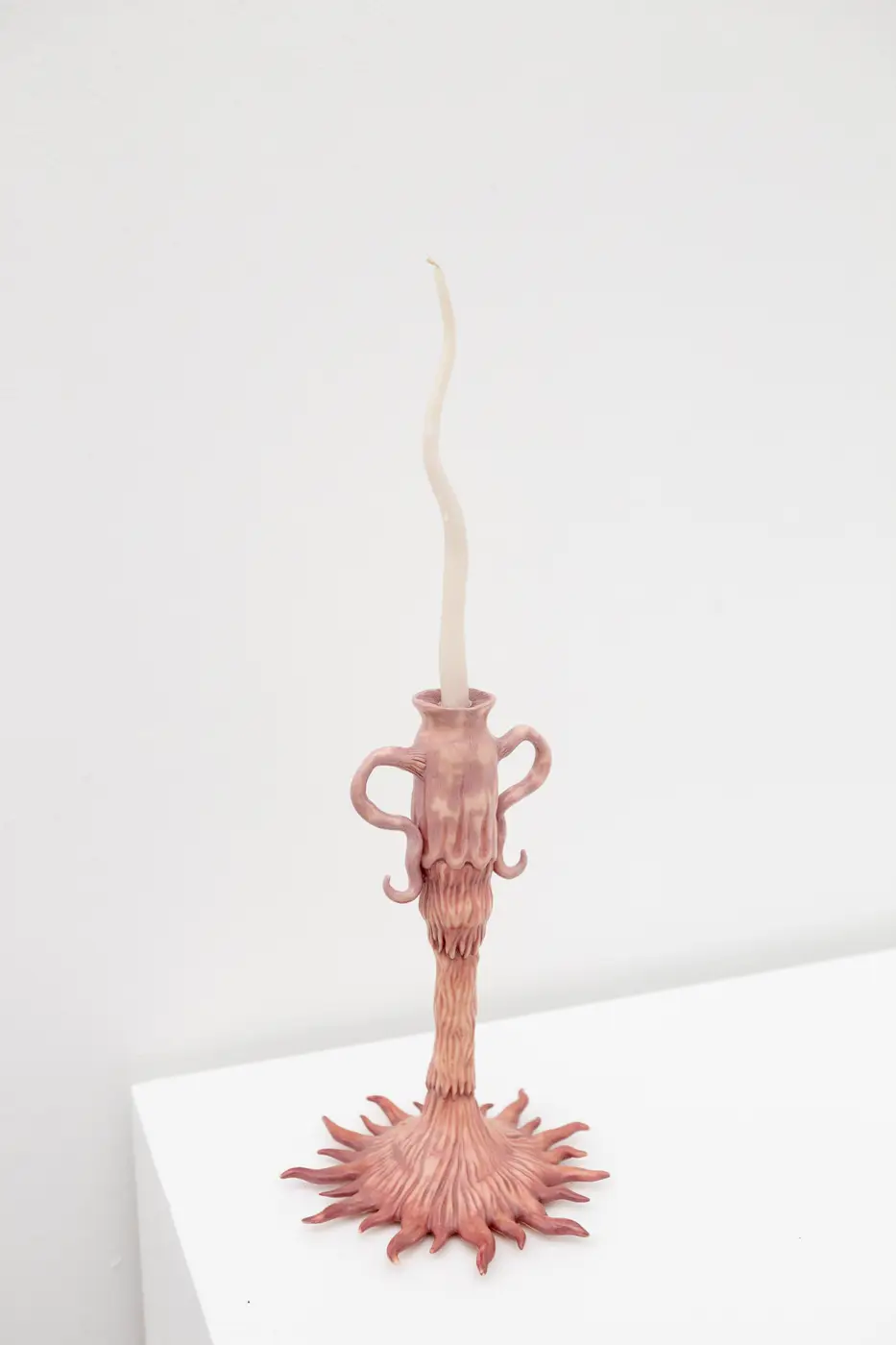
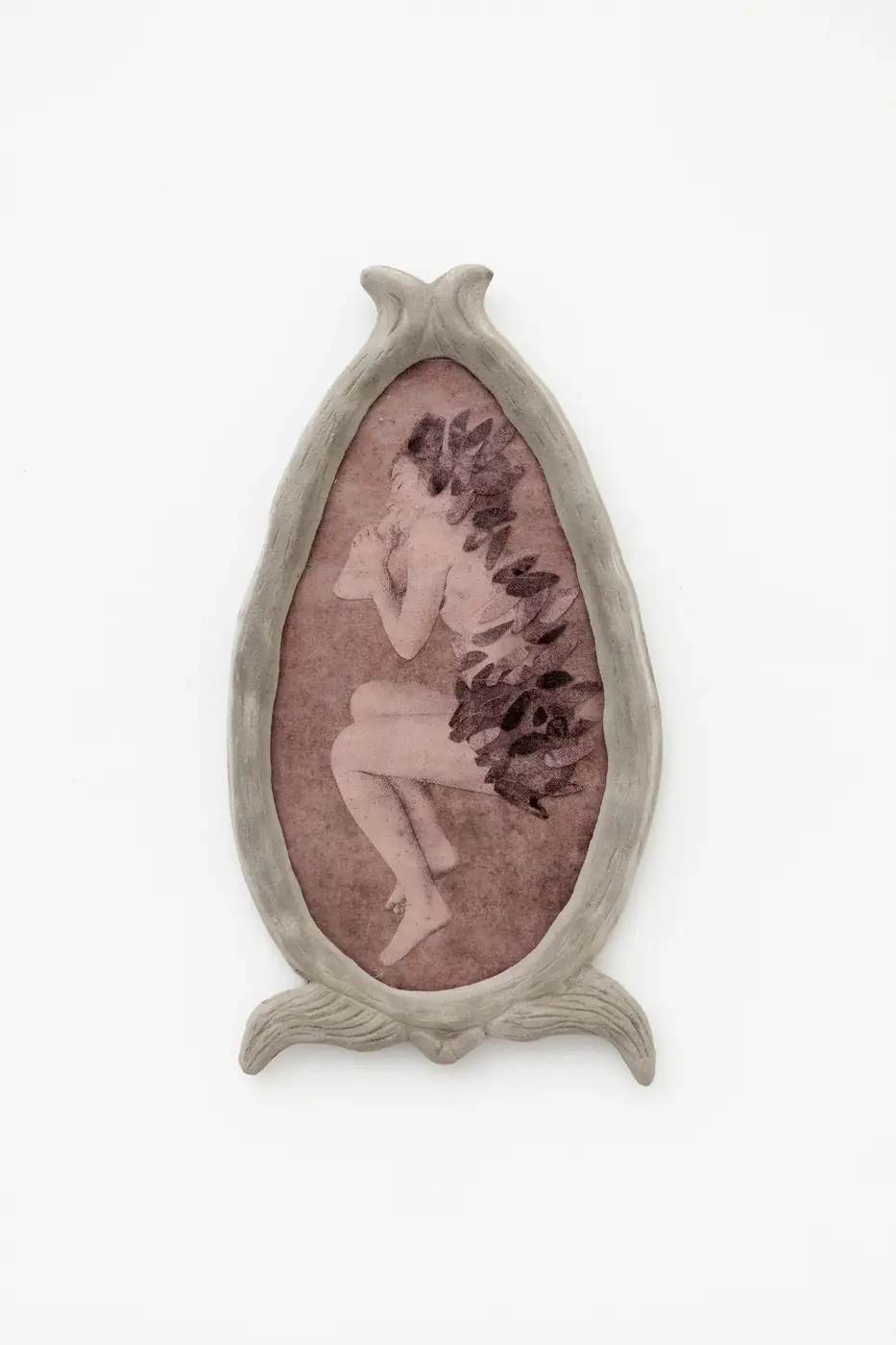
Katalin Kortmann Járay and Karina Mendreczky The Long Sigh of the Frog 2024 Curator: Tímea Fülöp Venue: am projects by Ani Molnár Gallery About the Exhibition: The Long Sigh of the Frog is an exhibition inspired by Emily Dickinson’s poem and her life of chosen solitude. This collaborative work by Katalin Kortmann Járay and Karina Mendreczky delves into themes of feminine melancholy, fragility, and the intersection of nature and human emotion. The installation evokes Dickinson’s introspective world, rich with Sapphic allusions and symbolic elements such as the frog, a creature associated with vulnerability and motherhood. The gallery space transforms into an interior landscape where the rejection of societal expectations and the solace found in nature are embodied through metaphorically feminine sculptures and materials. Photography: Mátyás Gyuricza
The frog, a recurring symbol in the exhibition, is used to represent vulnerability and environmental sensitivity. In various cultures, including Egyptian mythology, the frog is associated with motherhood and transformation.
For Kortmann Járay and Mendreczky, this symbol encapsulates the intersection of the feminine, nature, and solitude—key themes in Dickinson’s life and poetry.
Collective Memory and the Power of Myth
Mendreczky and Kortmann Járay often begin their conceptual explorations with well-known texts, such as poems, nursery rhymes, or song lyrics.

In The Long Sigh of the Frog, the starting point is Dickinson’s poetry, which they reinterpret to create new, layered meanings that resonate with contemporary concerns about nature, femininity, and solitude.
This approach is evident in many of their other works as well, where they blend the symbolism of fairy tales, quasi-religious motifs, and mysticism to create narratives that feel both familiar and otherworldly.
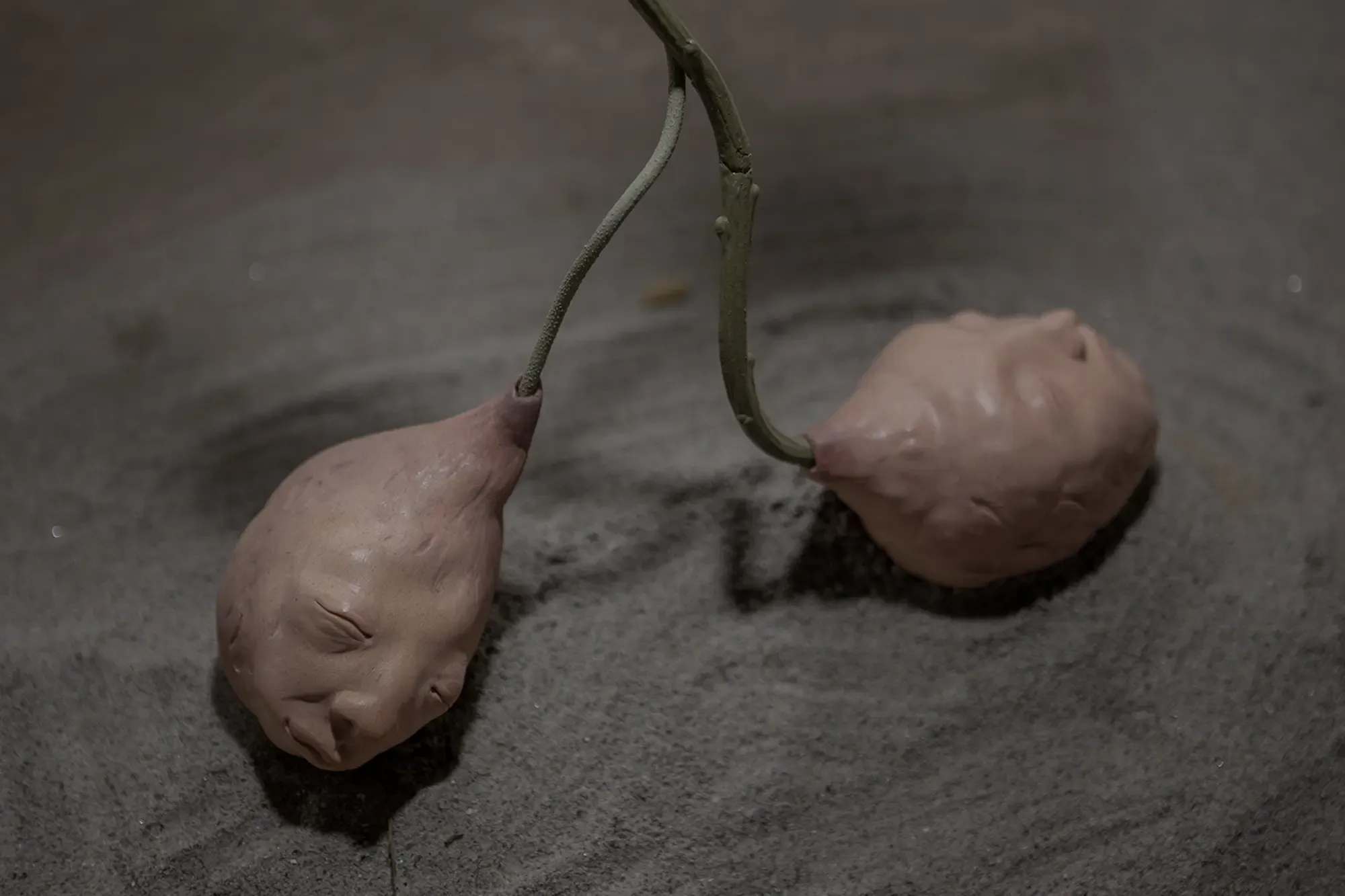
Their work BUZZ (2022), exhibited at FKSE Studio of Young Artists’ Association in Budapest, exemplifies this blend of collective memory and animism.
Set in an abandoned clinic, the installation transforms the space into an animistic landscape where the boundaries between past, present, and future are blurred.
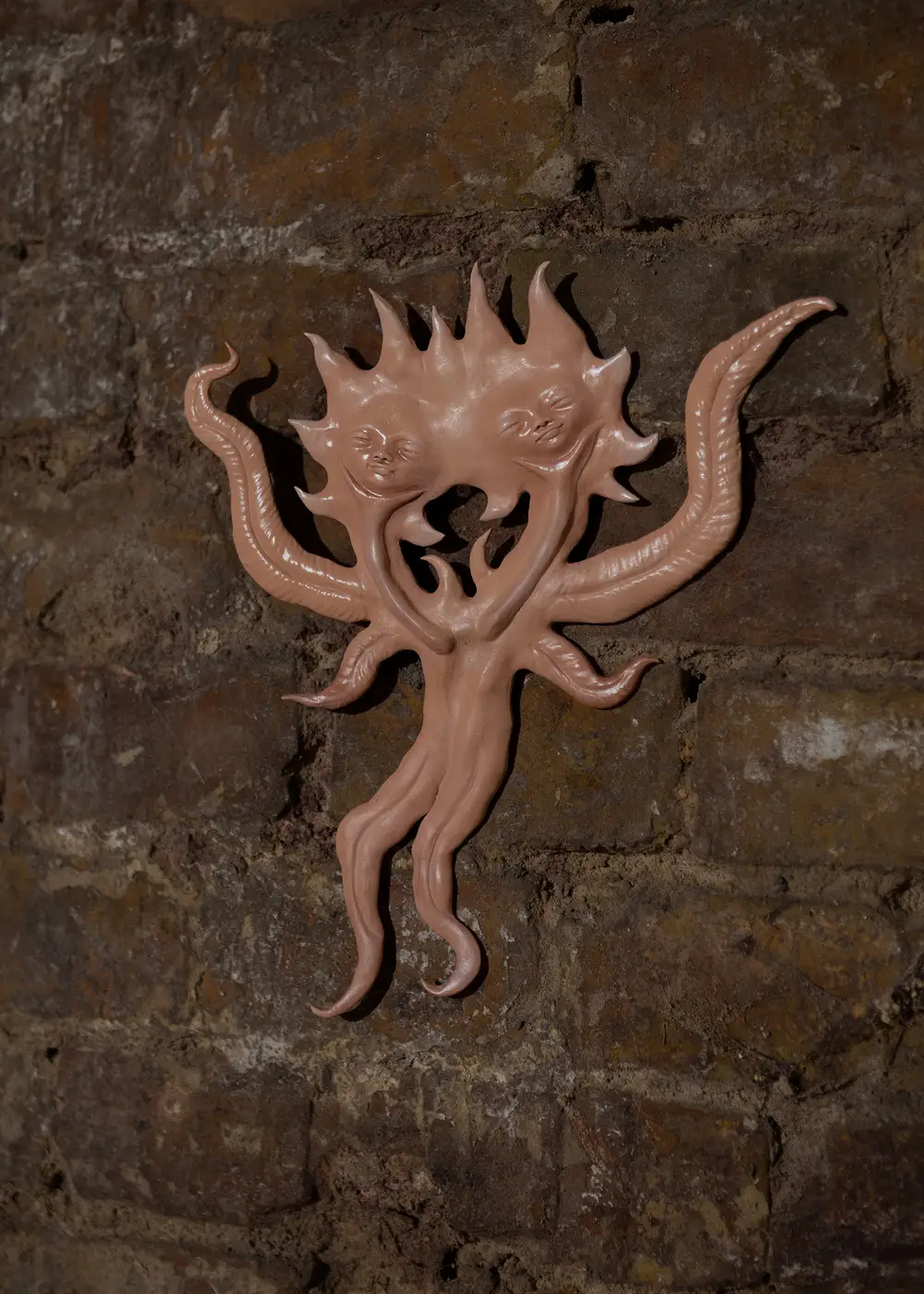
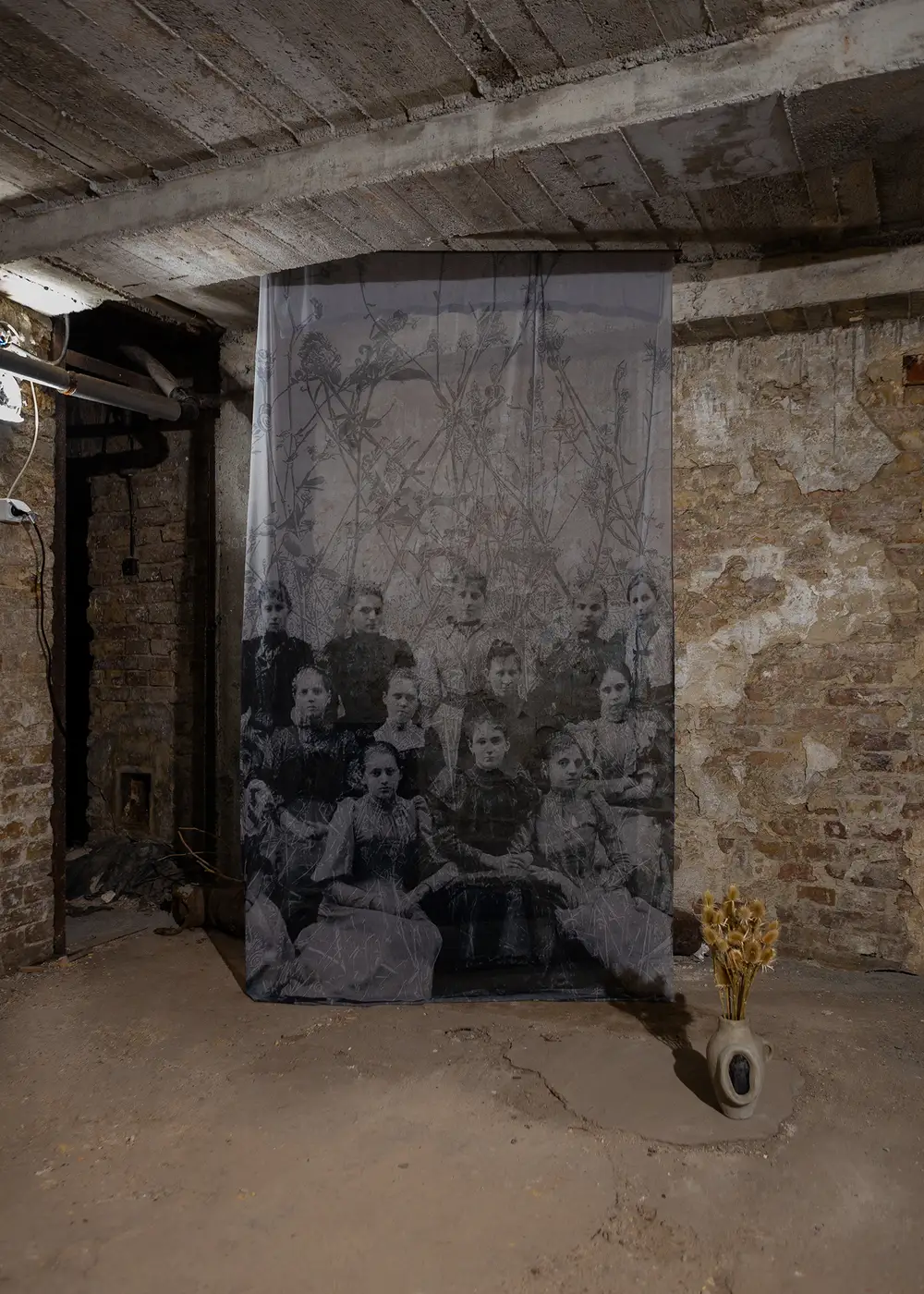
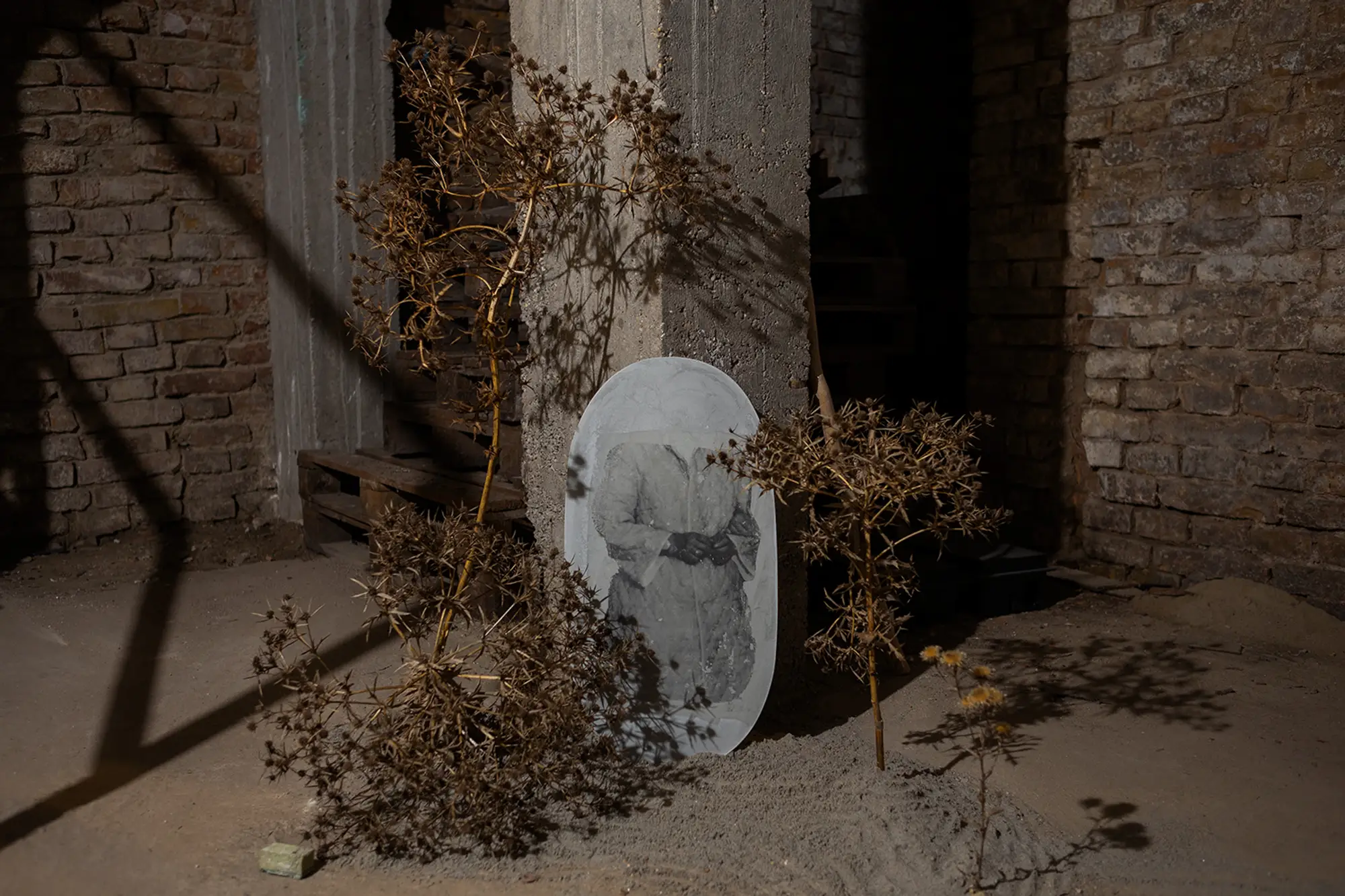
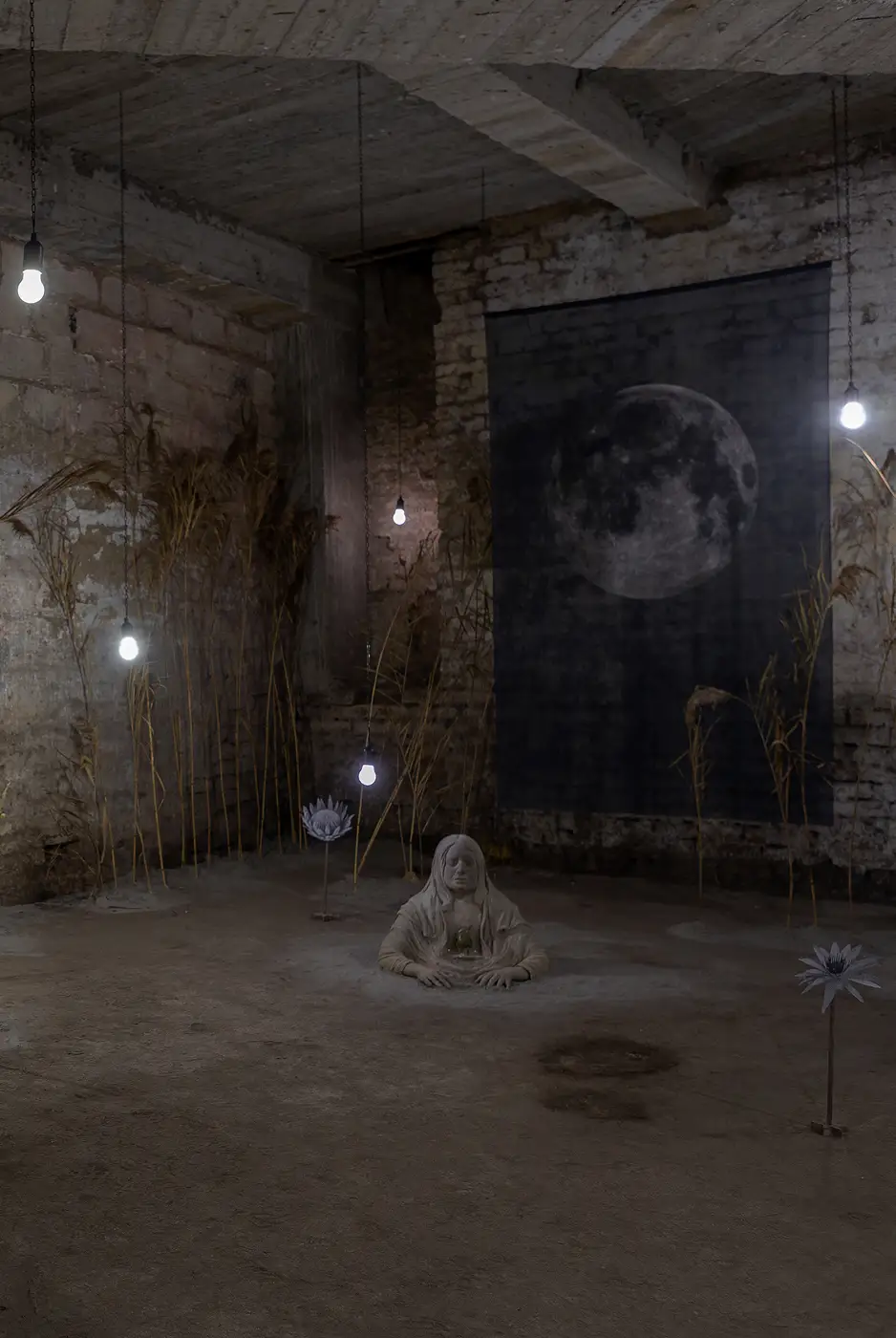
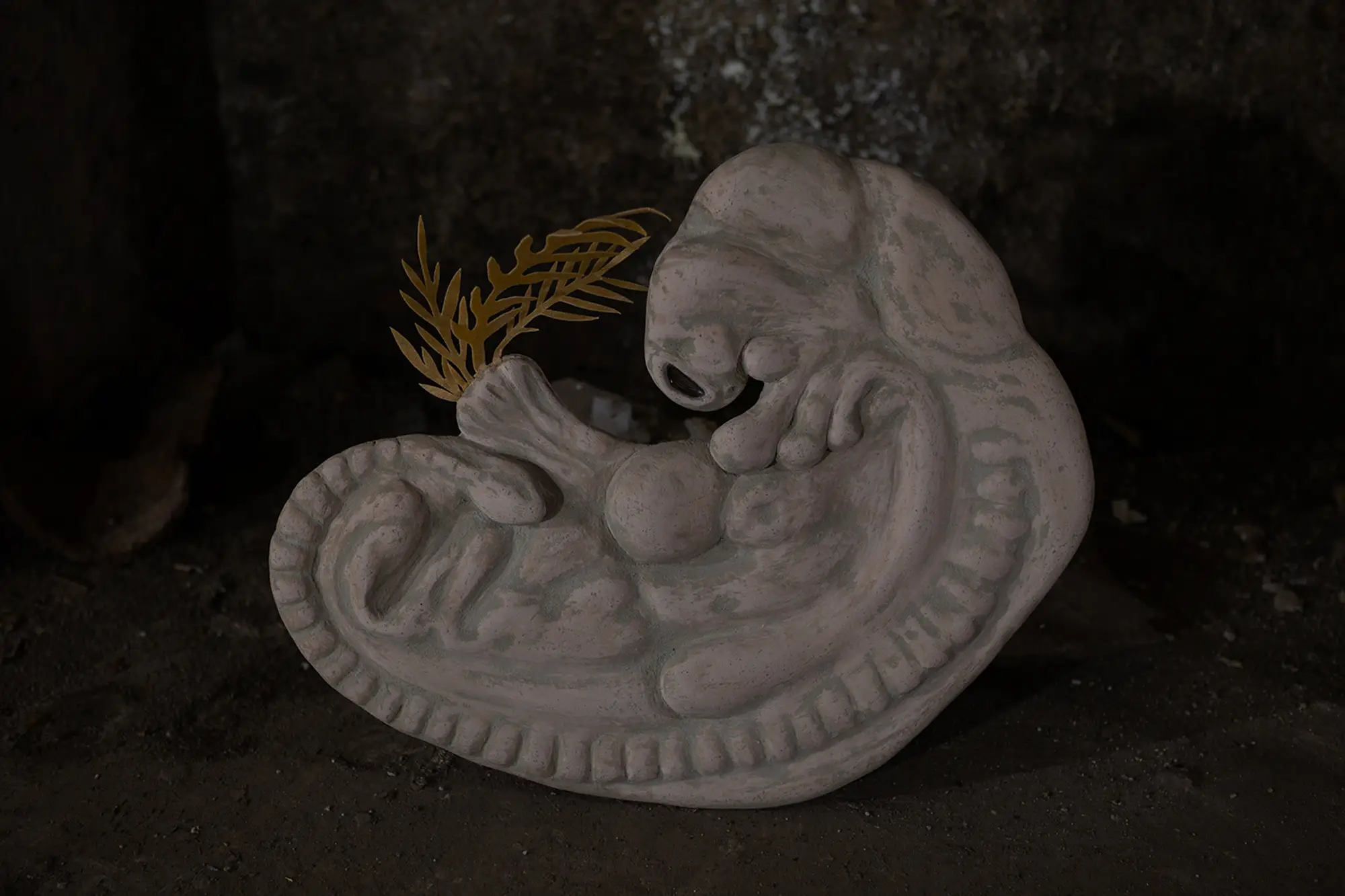
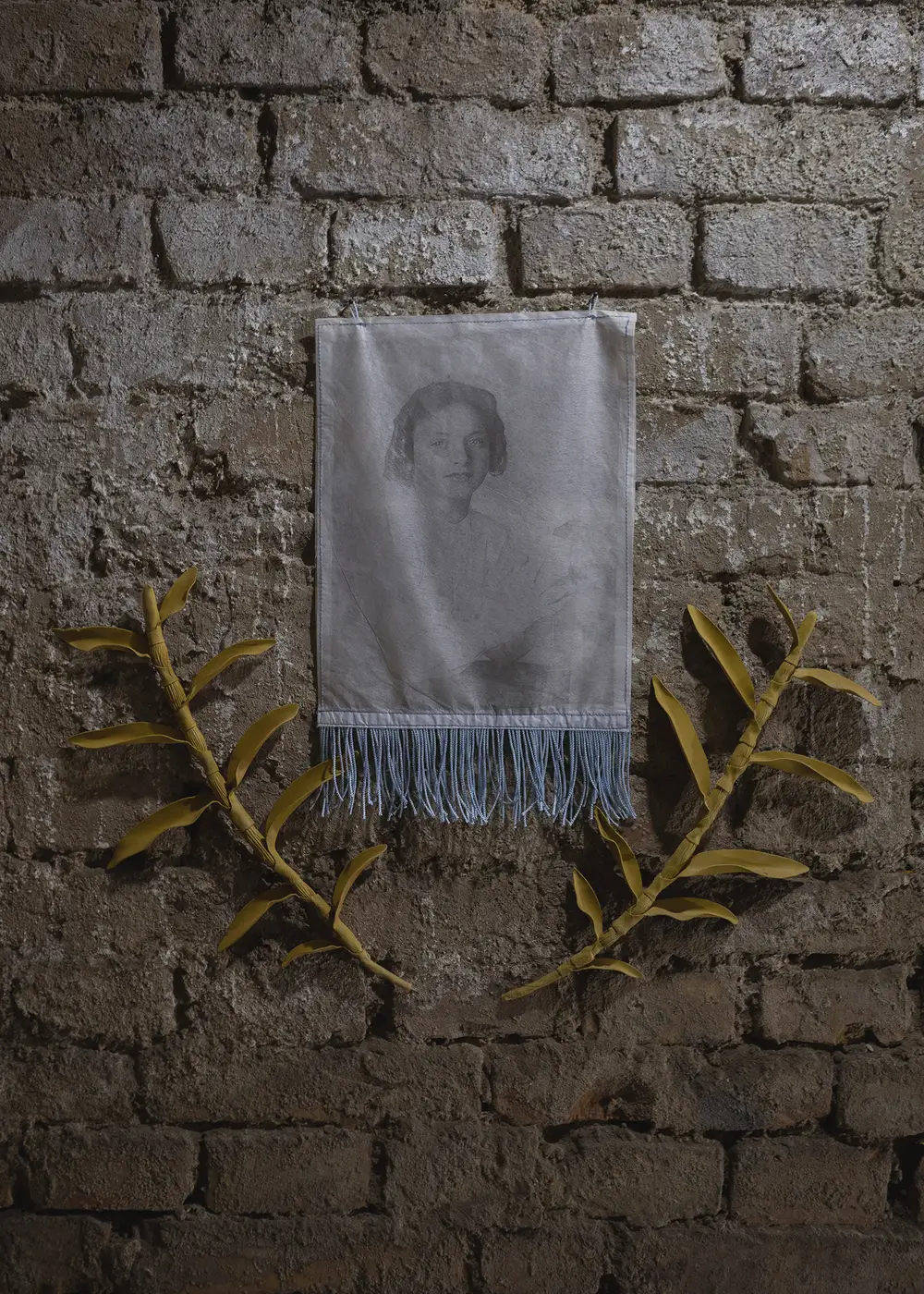
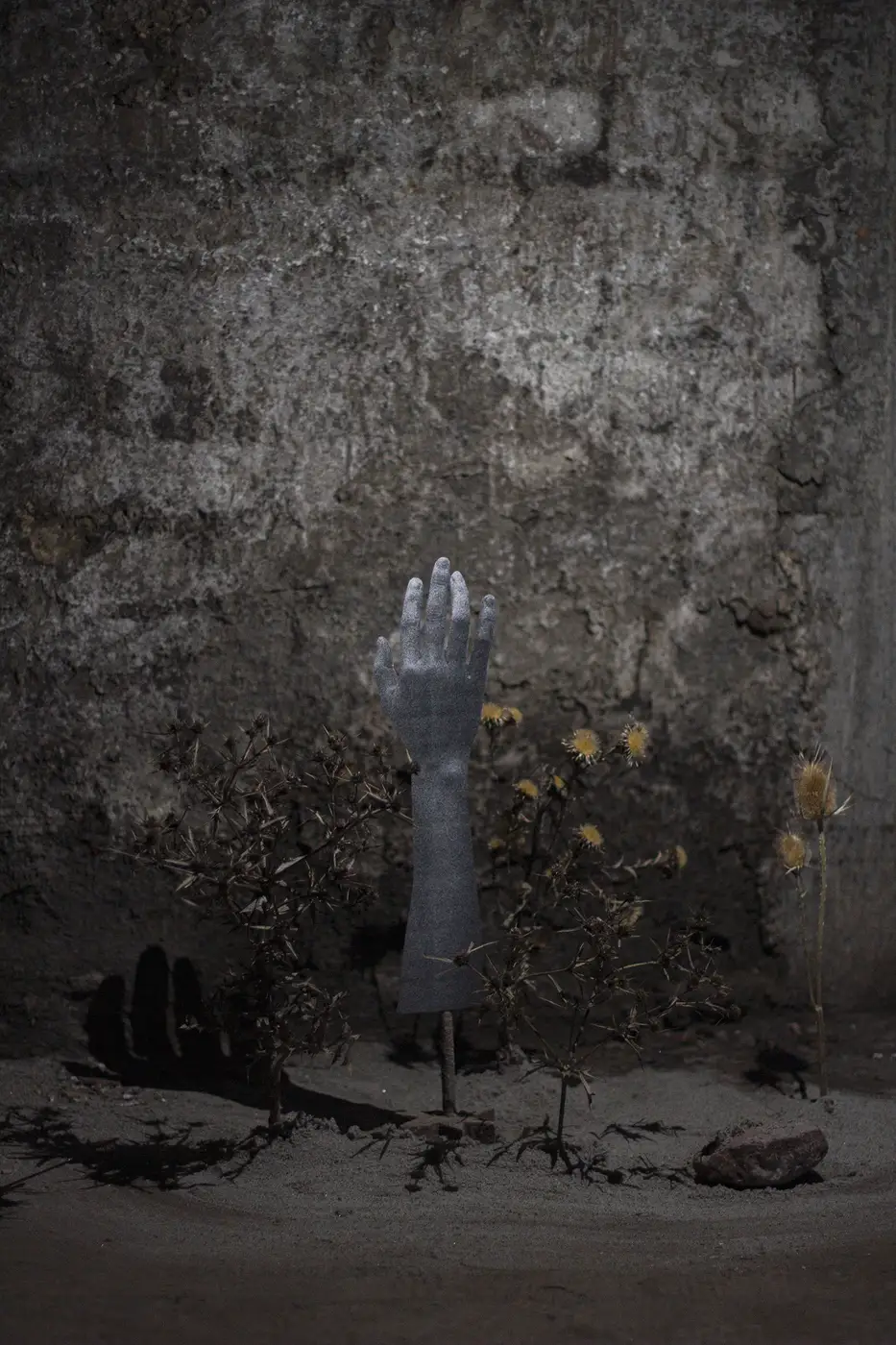
Karina Mendreczky and Katalin Kortmann Járay Title: Buzz at FKSE Studio of Young Artists’ Association, Budapest, Hungary About the Exhibition: BUZZ is an installation that explores the concept of animism as a response to ecological crisis and post-humanism. Drawing on the ancient belief that natural elements and objects possess a soul, the exhibition by Karina Mendreczky and Katalin Kortmann Járay transforms the abandoned Semmelweis Clinic into a space where past, future, and surreal reality intertwine. The installation features anthropomorphic sculptures, large concrete constructions, and floating prints that evoke a new creation story, dominated by the feminine principle. By reviving collective memories, BUZZ invites viewers to reflect on whether humanity can reverse the damage it has inflicted on nature over millennia. The exhibition also includes a sound piece inspired by Margaret Cavendish's The Blazing World (1666), further enhancing the mystical atmosphere of the space.
Through their anthropomorphic sculptures and surrealistic hybrid figures, the artists evoke a new creation story, one where human destruction gives way to a reimagined world where the feminine principle and nature reign supreme.
Artistic Techniques and Installations
The duo’s collaborative process combines various techniques and materials to create what can be described as spatial collages.
These large-scale, walk-through installations often feature textiles, photographs, and sculptures made from iron, concrete, and clay.
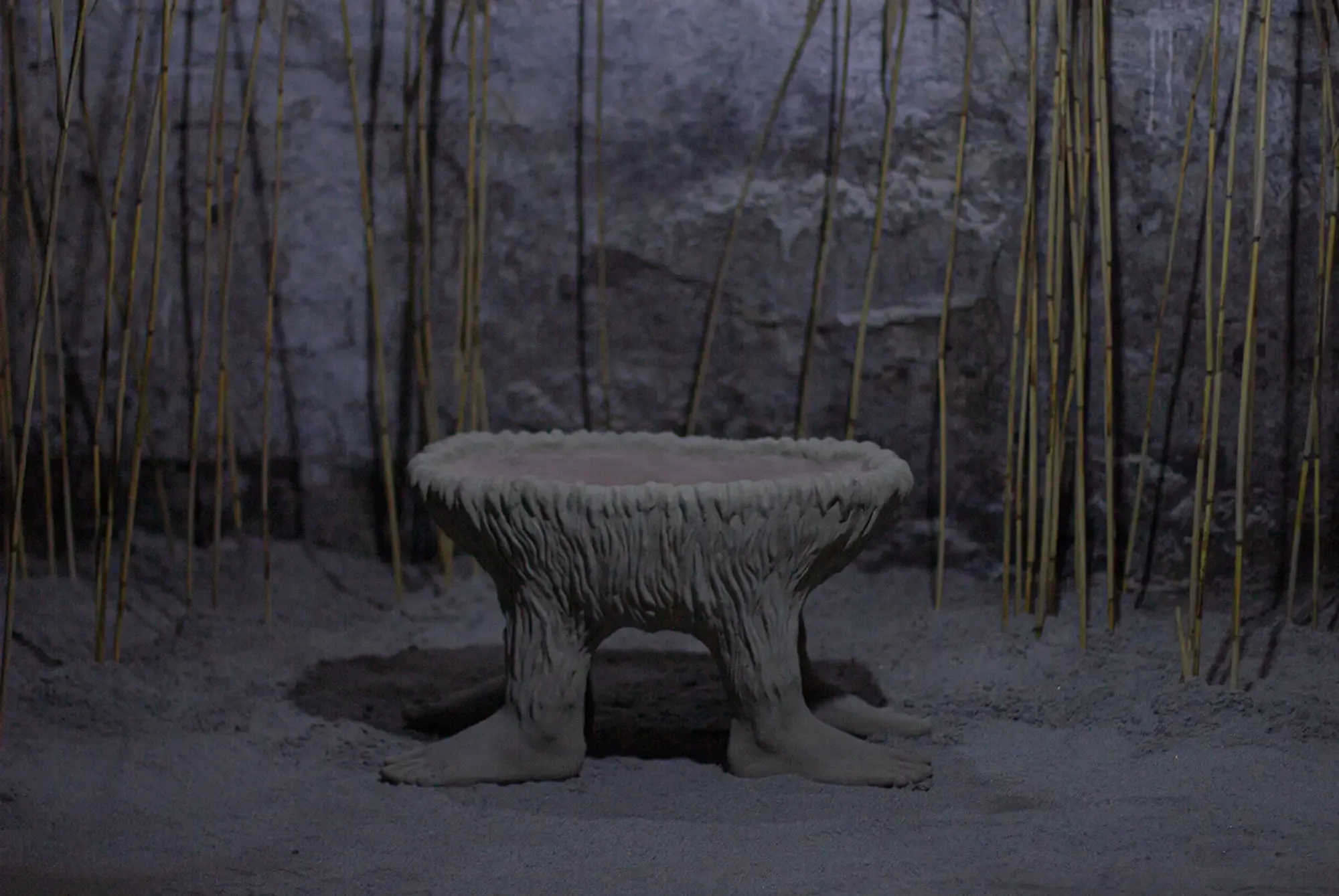
Their conceptual starting points—whether drawn from historical texts, folklore, or personal memories—are transformed into metaphorically feminine spaces that invite viewers to immerse themselves in richly layered narratives.
In their 2023 installation Oasis at MQ Salon in Museum Quartier Vienna, the artists created a surreal, fairy-tale-like environment that continues their exploration of animism and ecological consciousness.
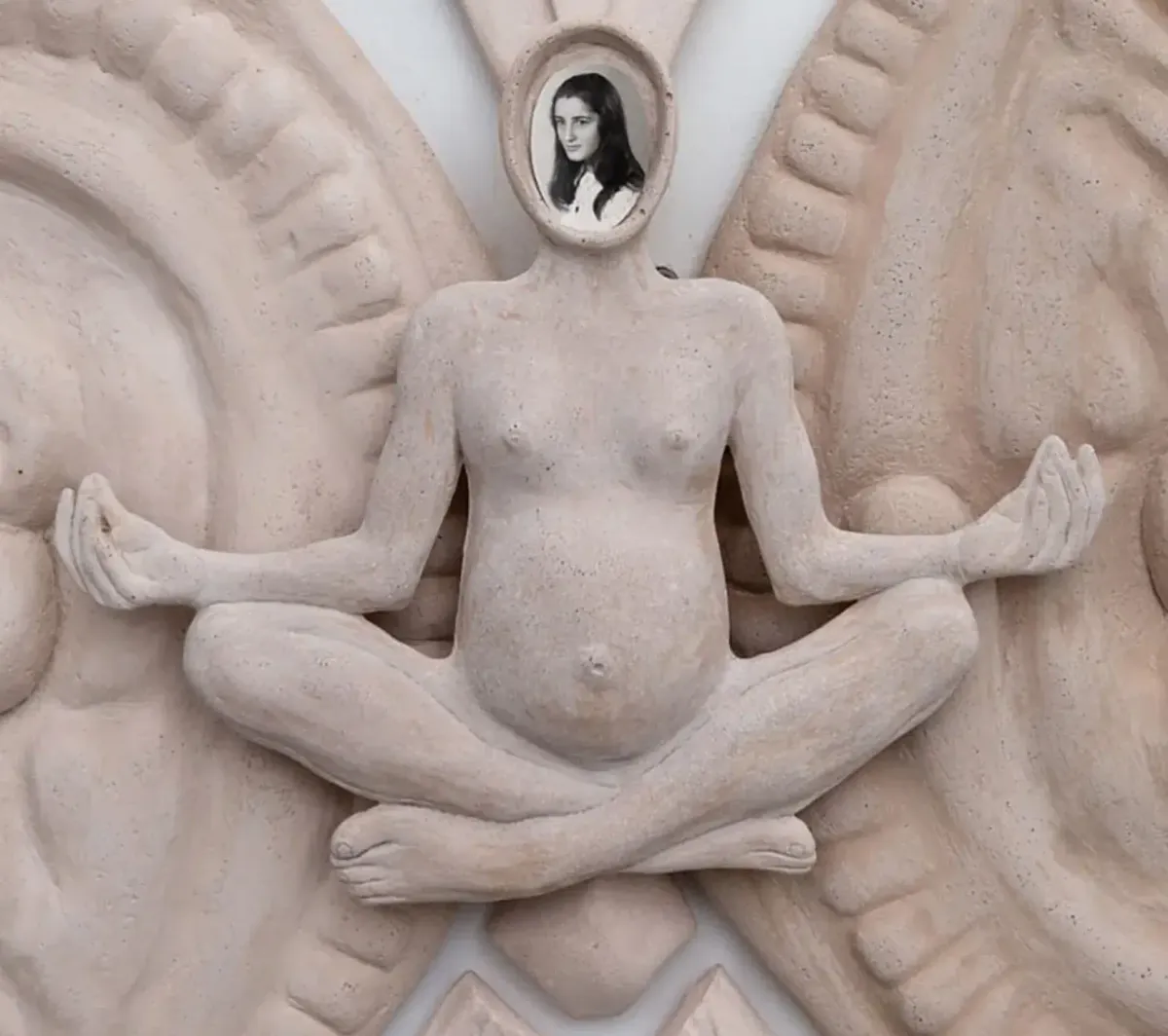
This installation was populated by hybrid creatures that merged human, plant, and animal characteristics, creating a magical-seeming space that reflected the interconnectedness of all beings.
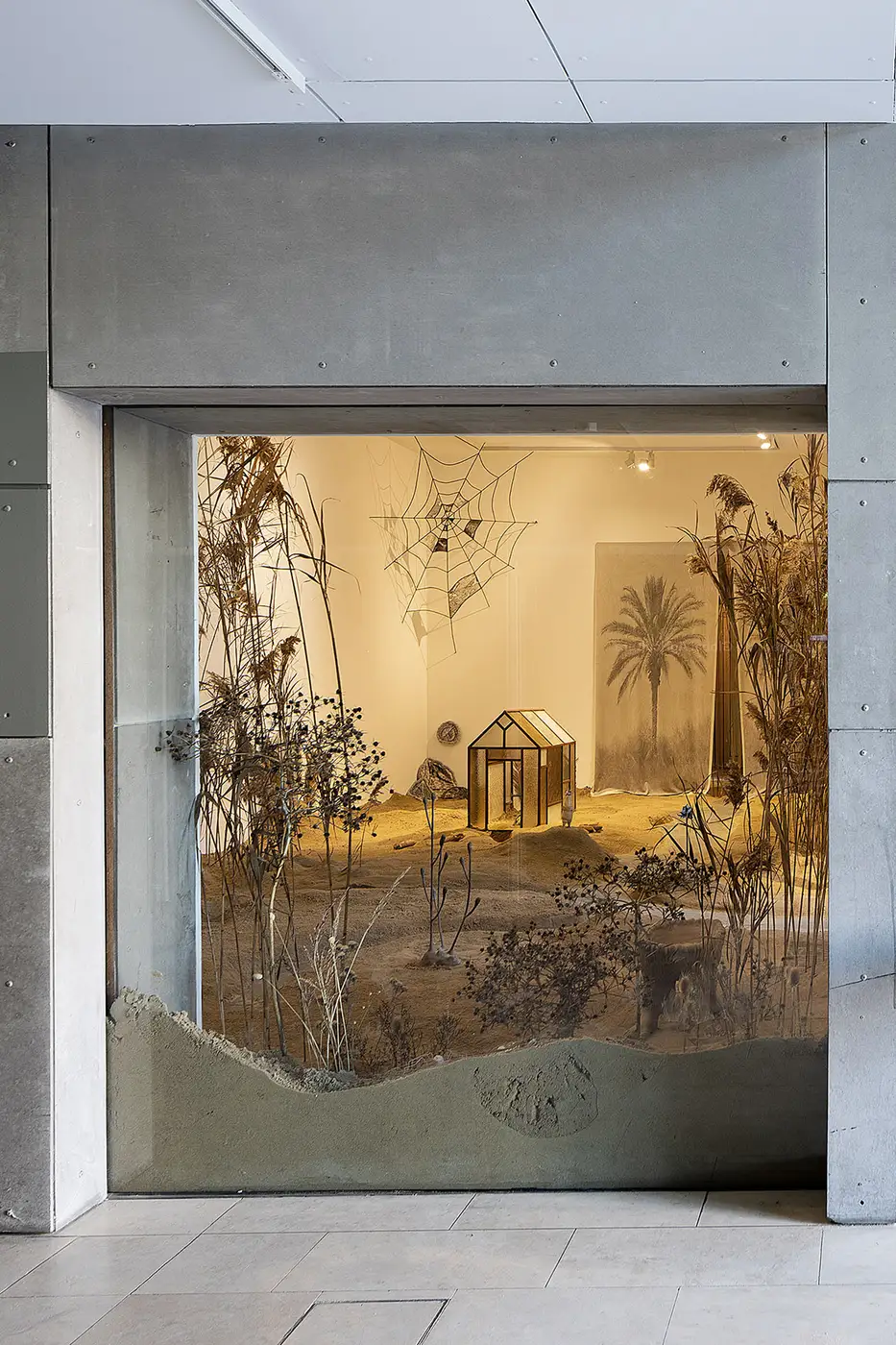
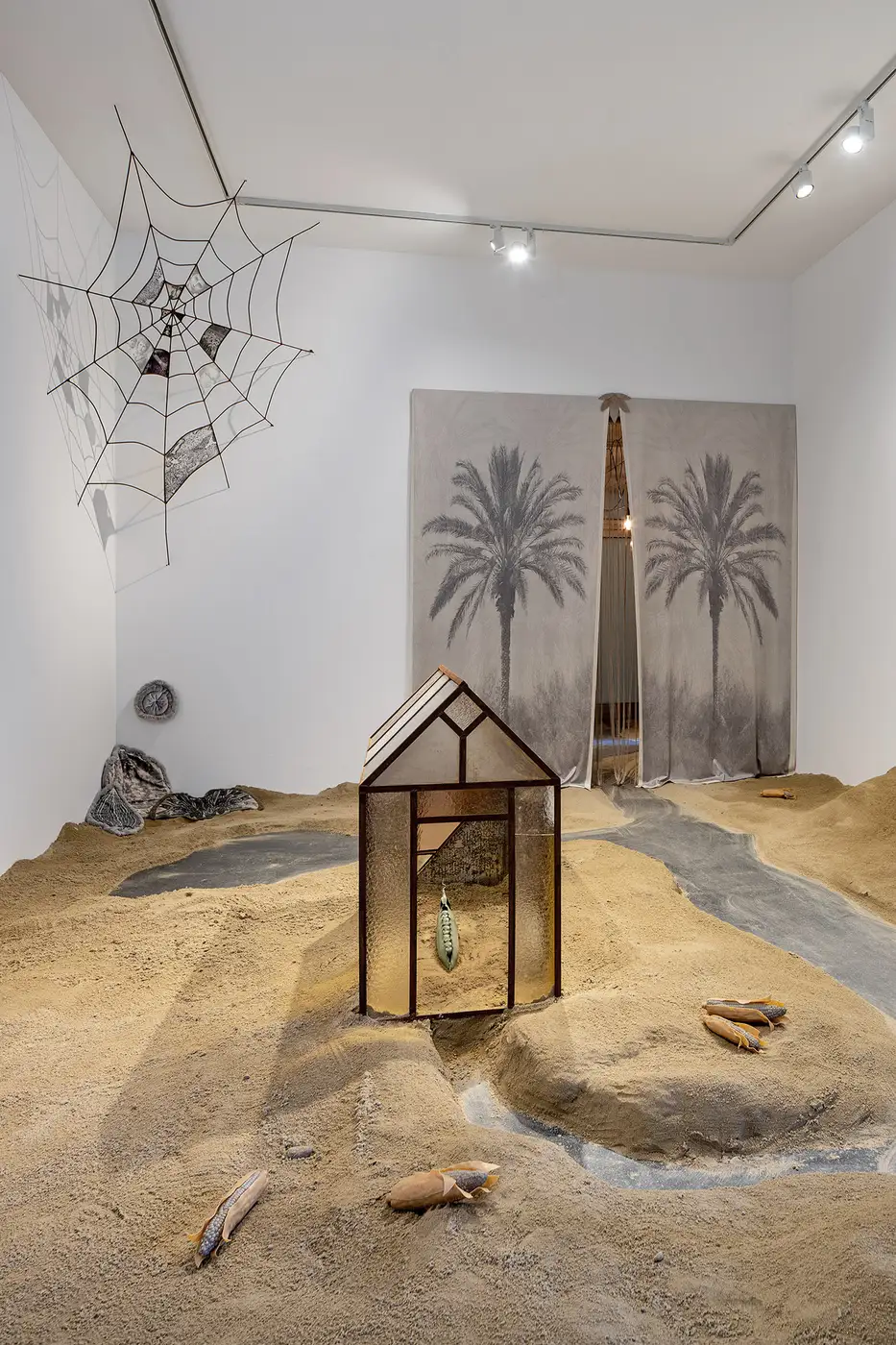
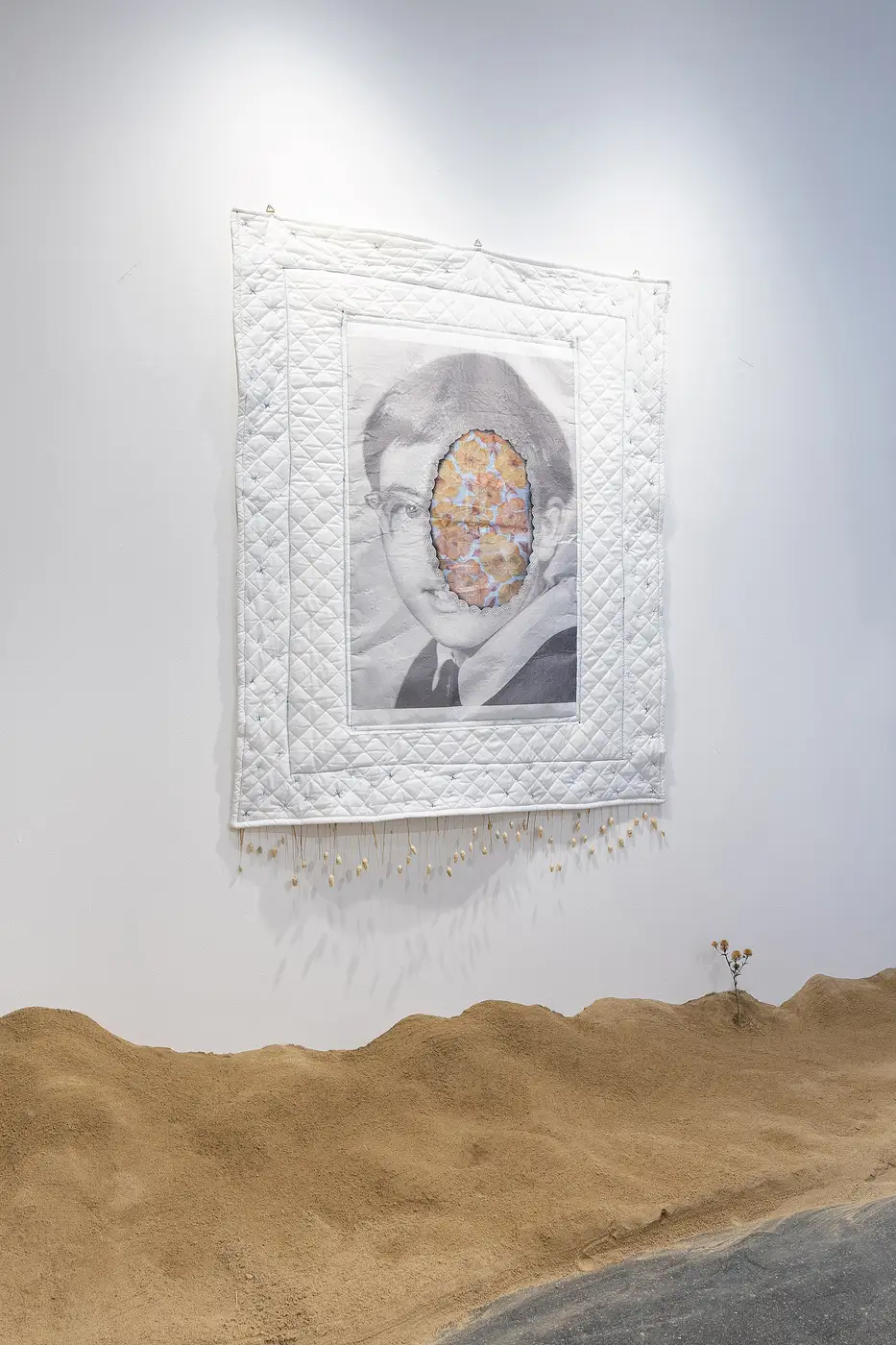
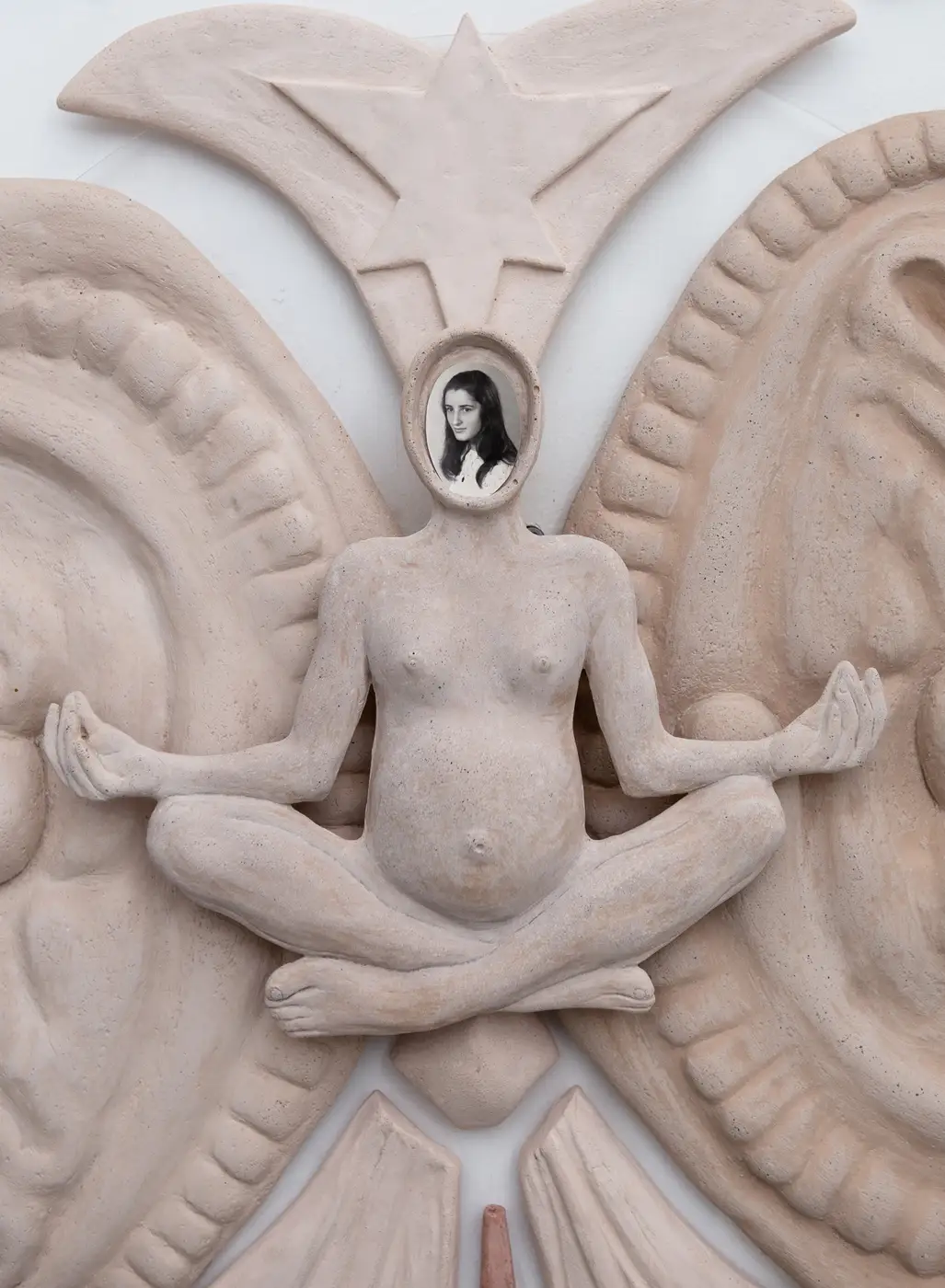
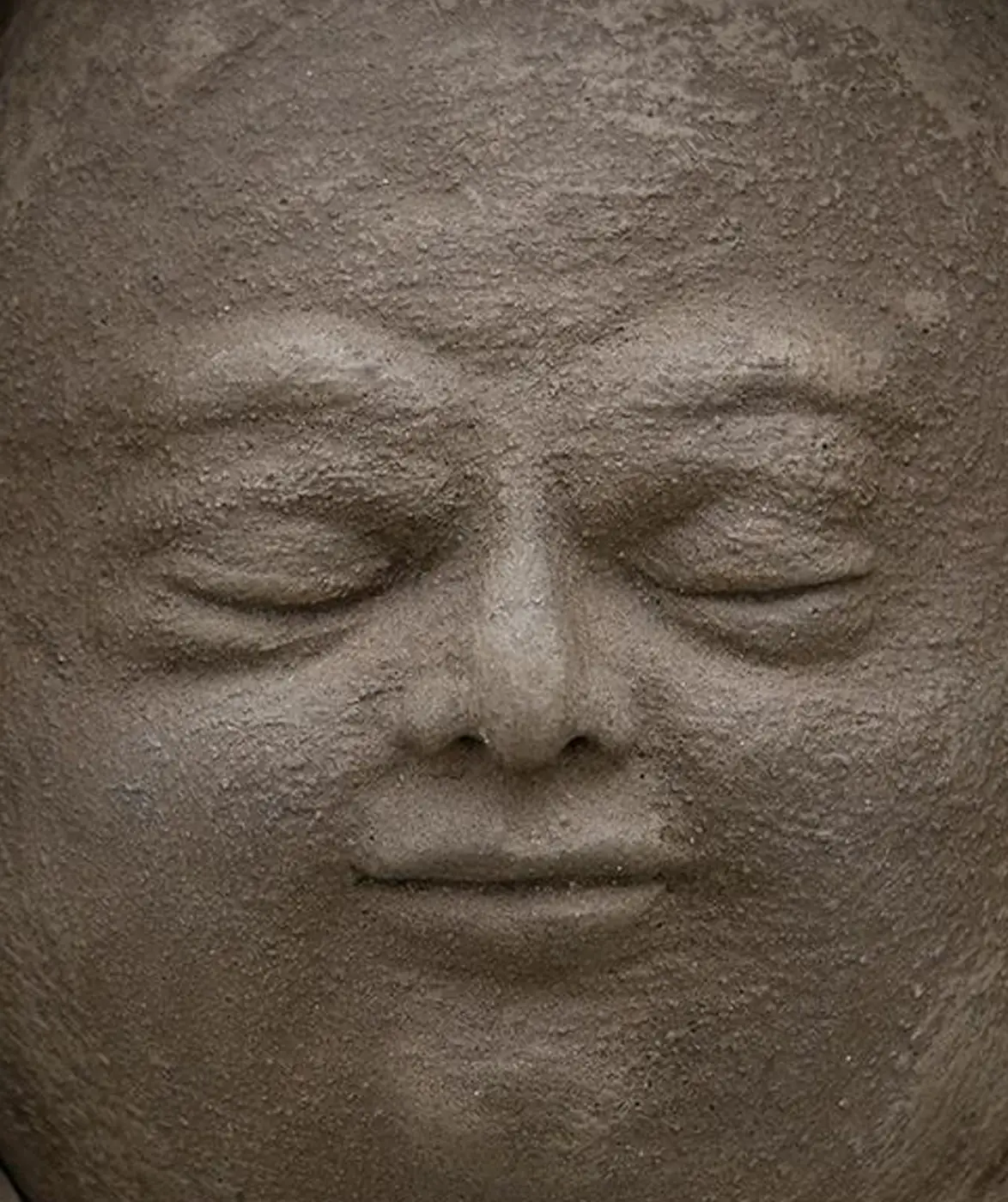
Karina Mendreczky and Katalin Kortmann Járay: "Oasis" Exhibition, Curated by Verena Kaspar-Eisert Highlight at MQ Salon, MuseumQuartier Vienna | Exhibition Summery: Oasis is an extensive installation by artists Karina Mendreczky and Katalin Kortmann Járay, exploring themes of environmental catastrophe and the climate crisis through animist motifs and spiritual narratives. The installation comprises sculptures, photographs, printed textiles, and drawings, creating a surreal cabinet of curiosities that blurs the boundaries between nature, humans, and objects. Inspired by both personal family histories and old fairy tales, the work features hybrid creatures and spiritual symbols that evoke the interconnectedness of all beings. This mystical, fairytale-like arrangement challenges our relationship with the world and questions the destructive lifestyles of the present. Curated by Verena Kaspar-Eisert, Oasis reflects on the oscillation between power and powerlessness in the face of environmental destruction, offering a poignant commentary on our emotional relationship with nature.
The installation created a symbolic garden, a space of refuge and new beginnings, where human presence was subtly woven into the natural landscape through hybrid forms of plants and objects.
Final Words:
Mendreczky and Kortmann Járay’s work is a profound exploration of the connections between nature, memory, and femininity.
Their art transcends the boundaries of traditional media, creating immersive environments that resonate with broader philosophical and ecological concerns.
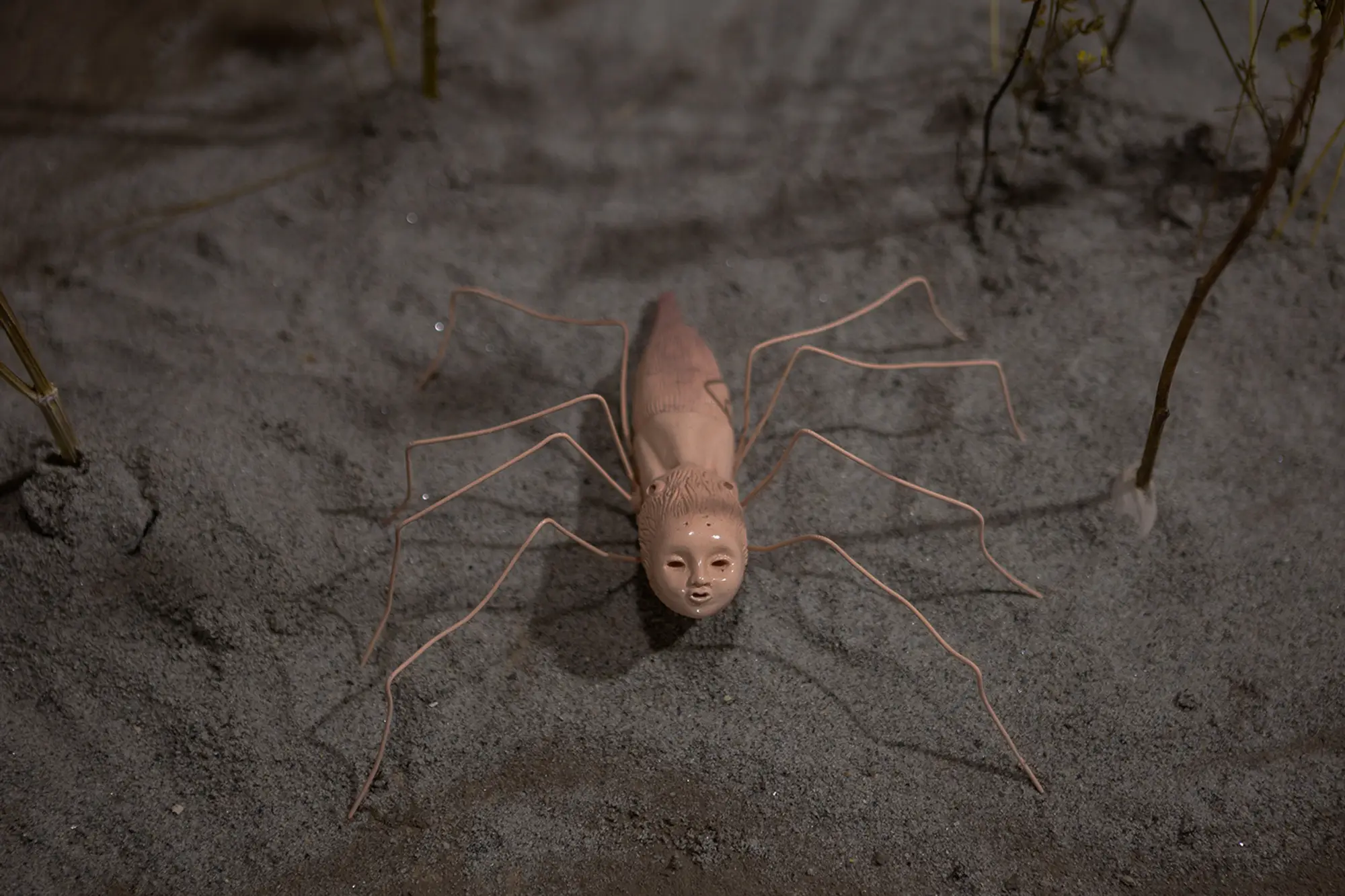
Whether drawing on the life and work of Emily Dickinson, reinterpreting ancient animistic beliefs, or creating new narratives from collective memories, their installations invite viewers to engage deeply with the themes of solitude, transformation, and the natural world.
Through their meticulously crafted spaces, they offer not just visual art but a sensory experience that challenges viewers to rethink their relationship with the world around them.
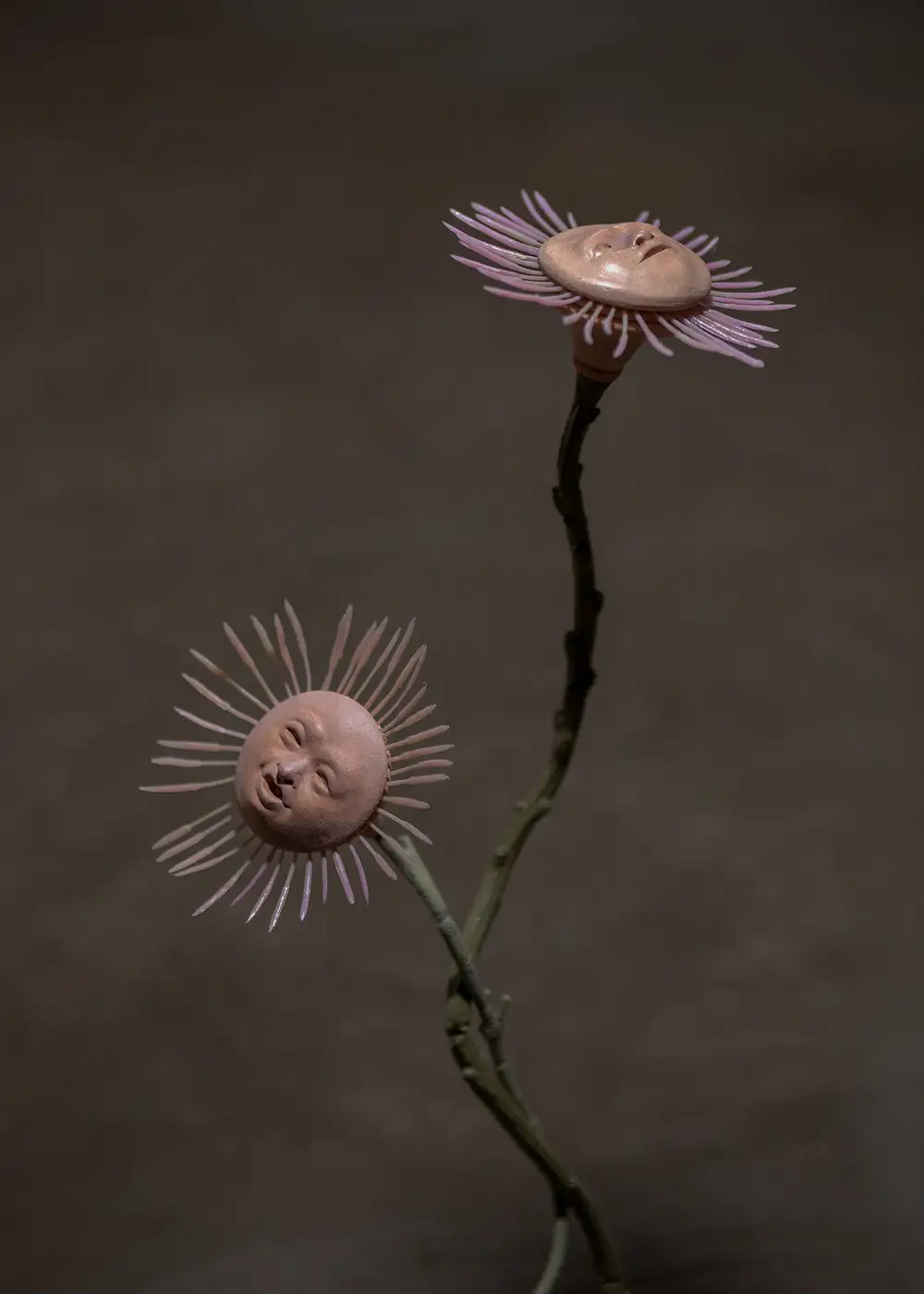
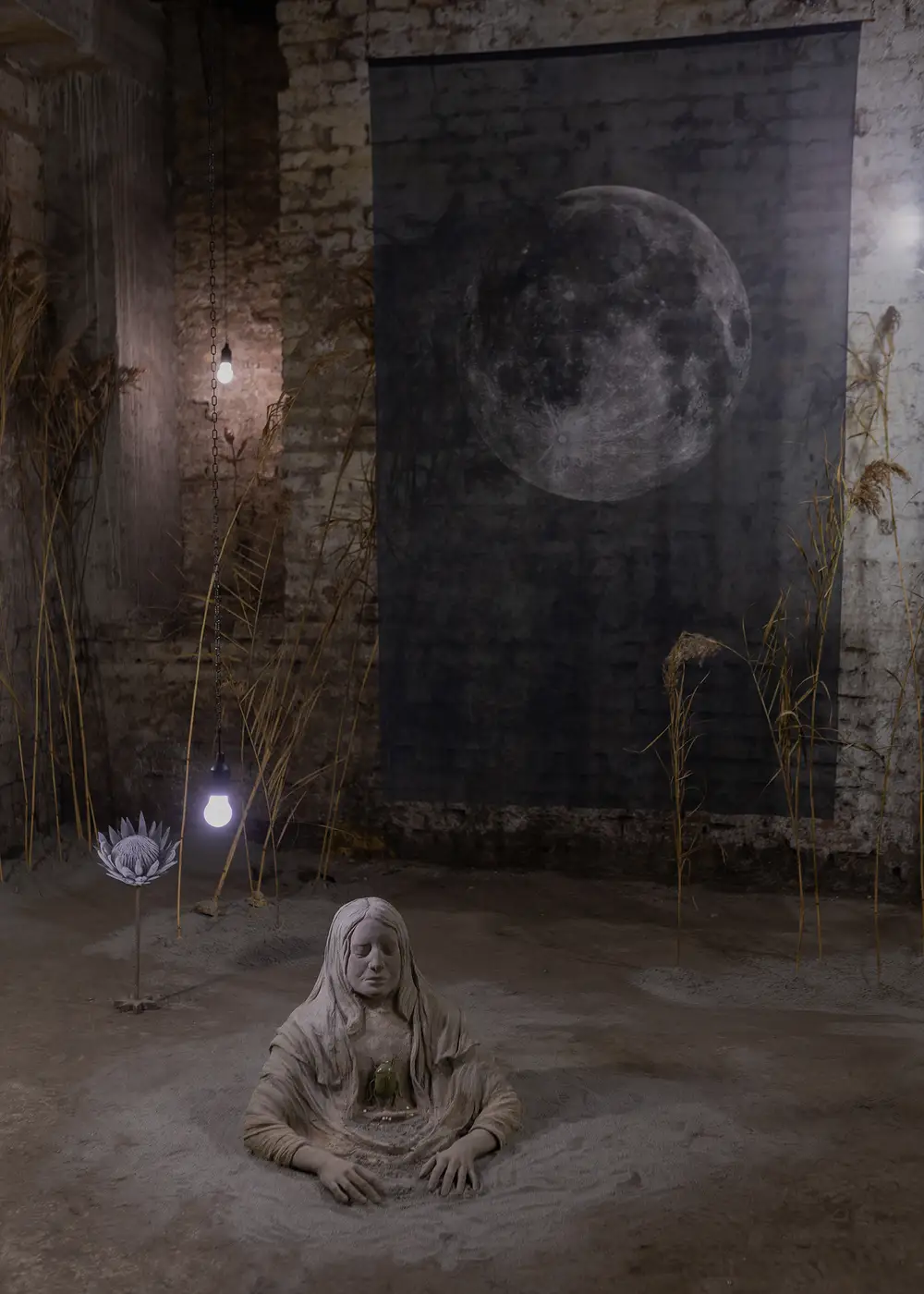
Karina Mendreczky and Katalin Kortmann Járay Title: Buzz at FKSE Studio of Young Artists’ Association, Budapest, Hungary
In a time when the boundaries between humanity and nature are increasingly strained, Mendreczky and Kortmann Járay’s work serves as a powerful reminder of the interconnectedness of all life and the potential for a more harmonious future.
Karina Mendreczky and Katalin Kortmann Járay will be featured in the artist selection for Vienna Contemporary 2024, represented by Tomas Umrian Contemporary, Bratislava.
For more information and updates on their upcoming projects, be sure to follow them on Instagram
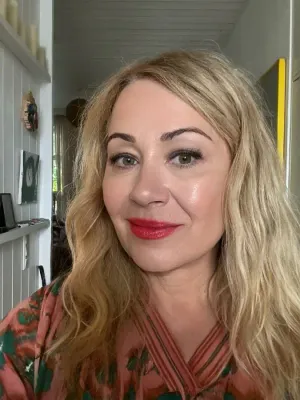
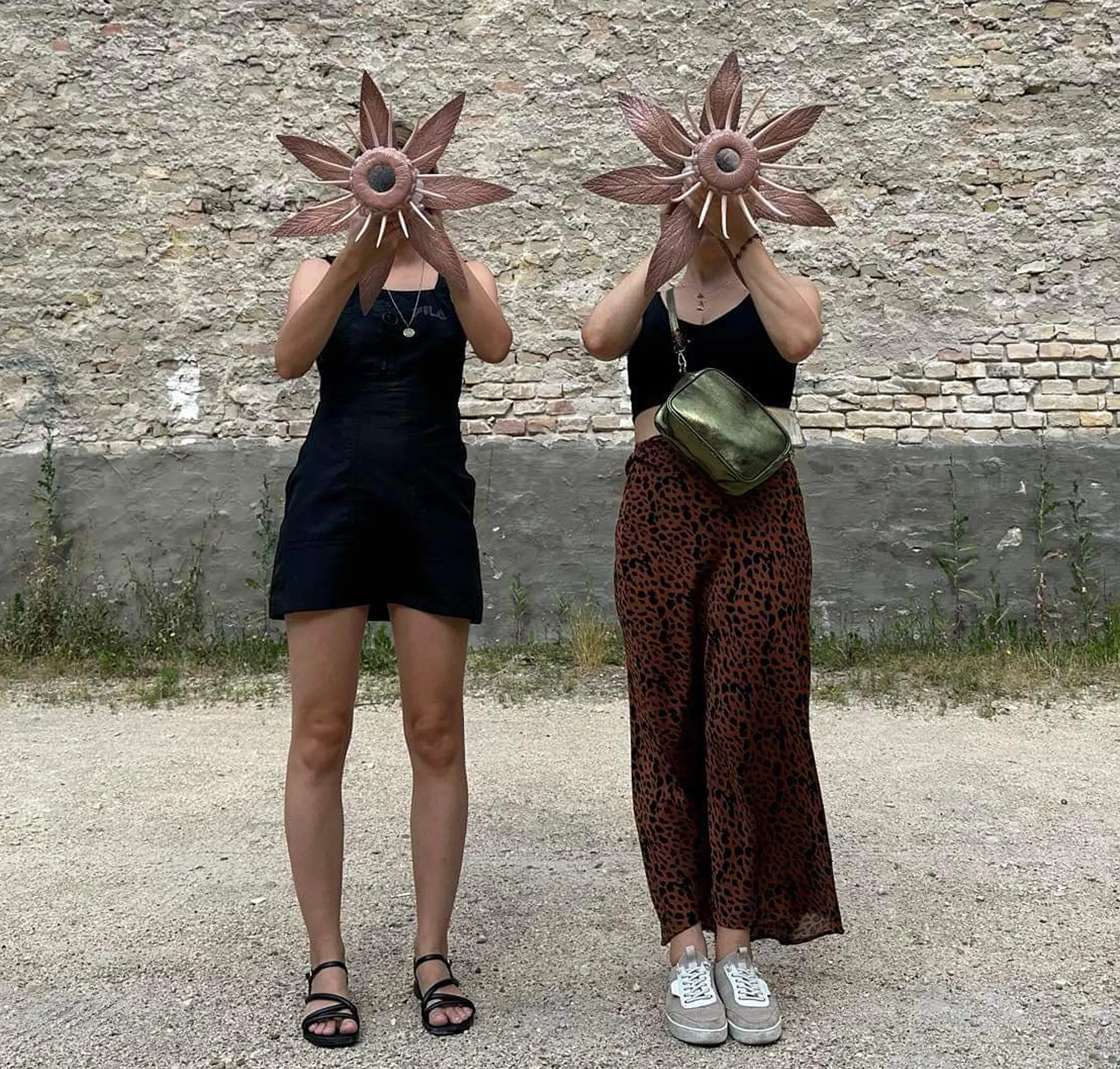


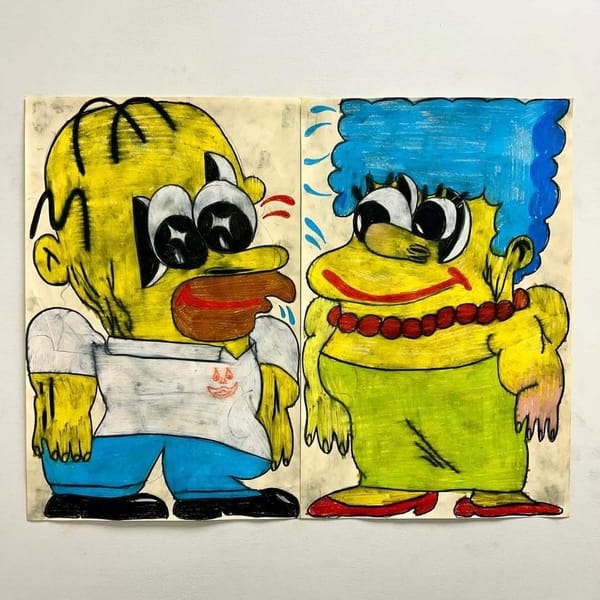
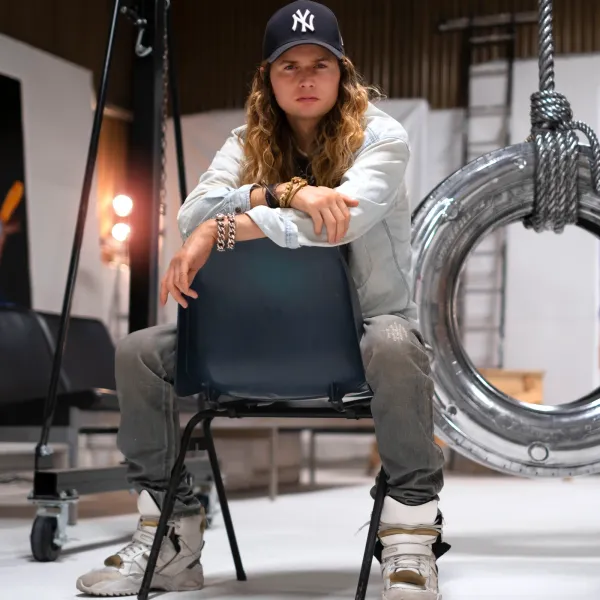
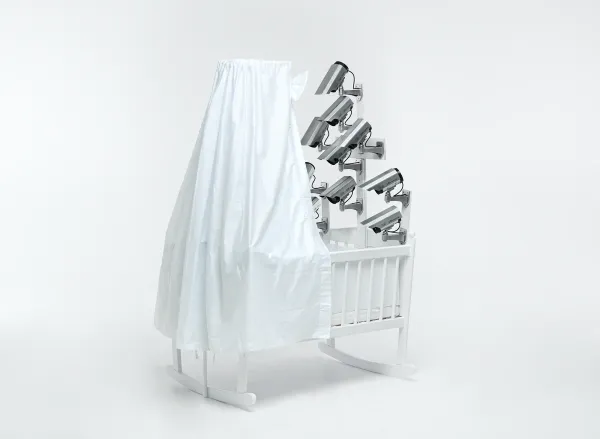

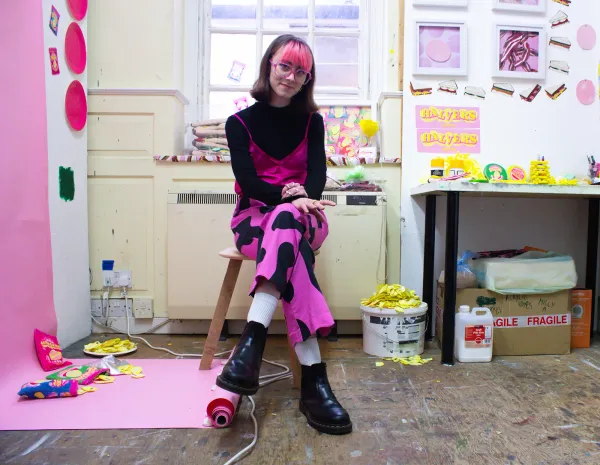
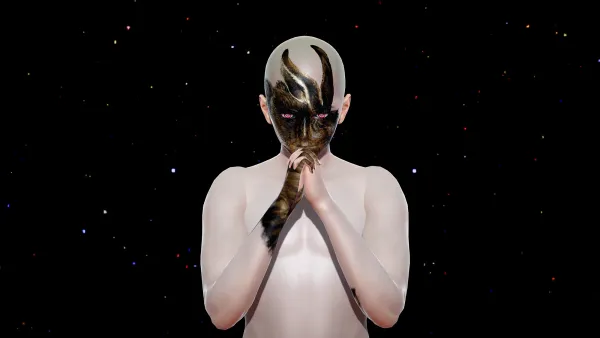
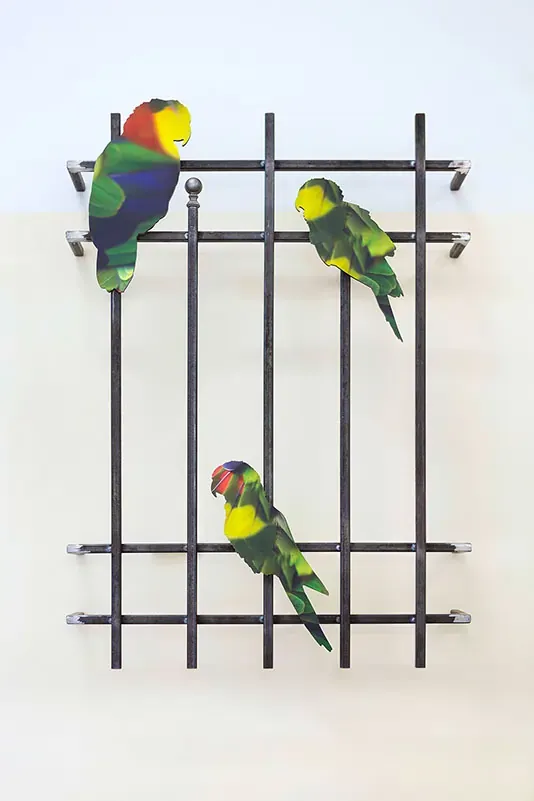
Member discussion